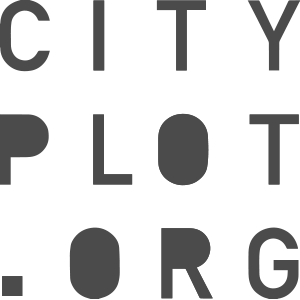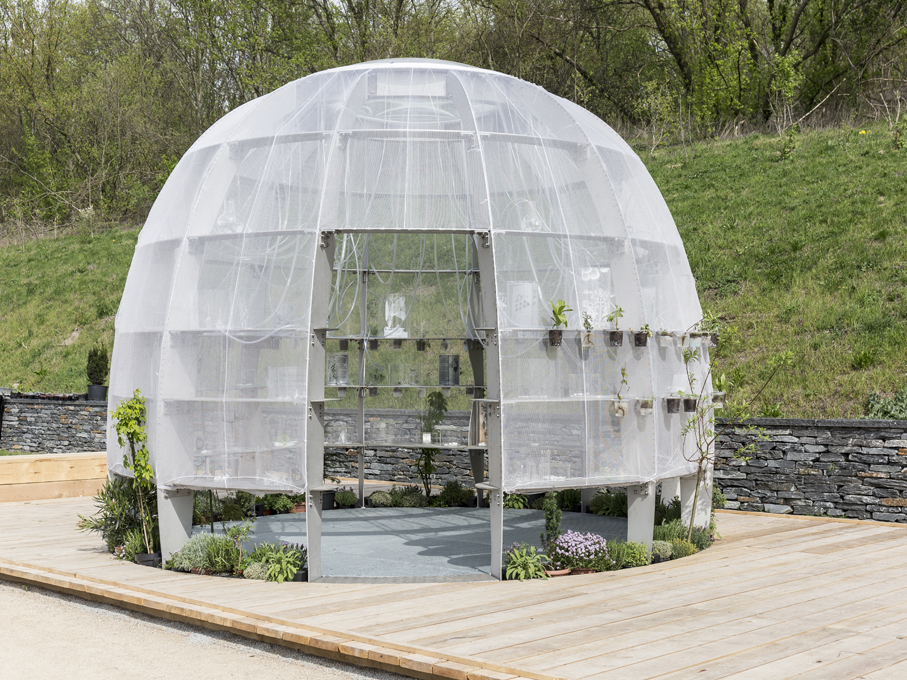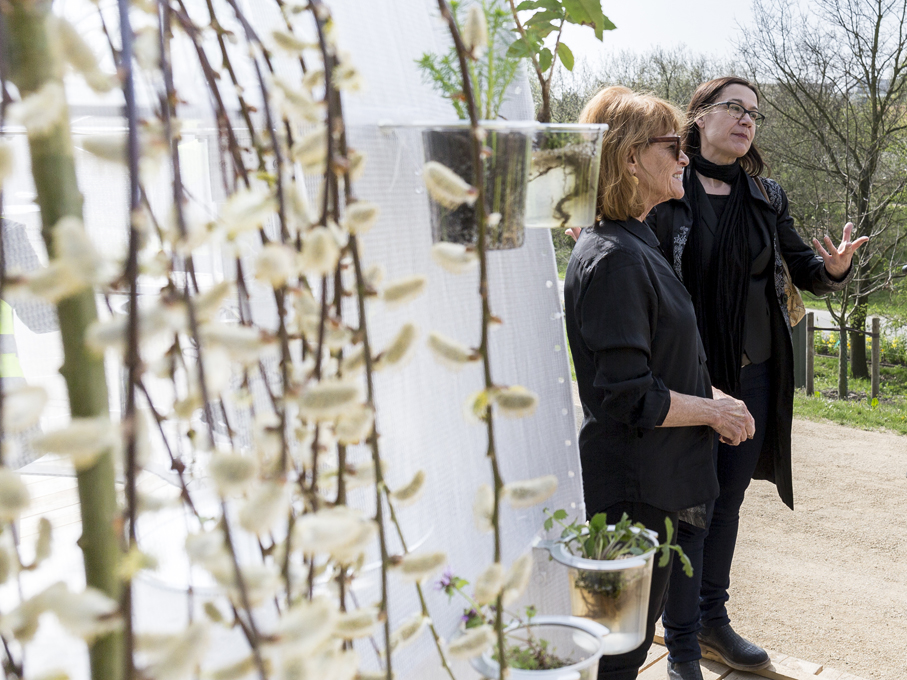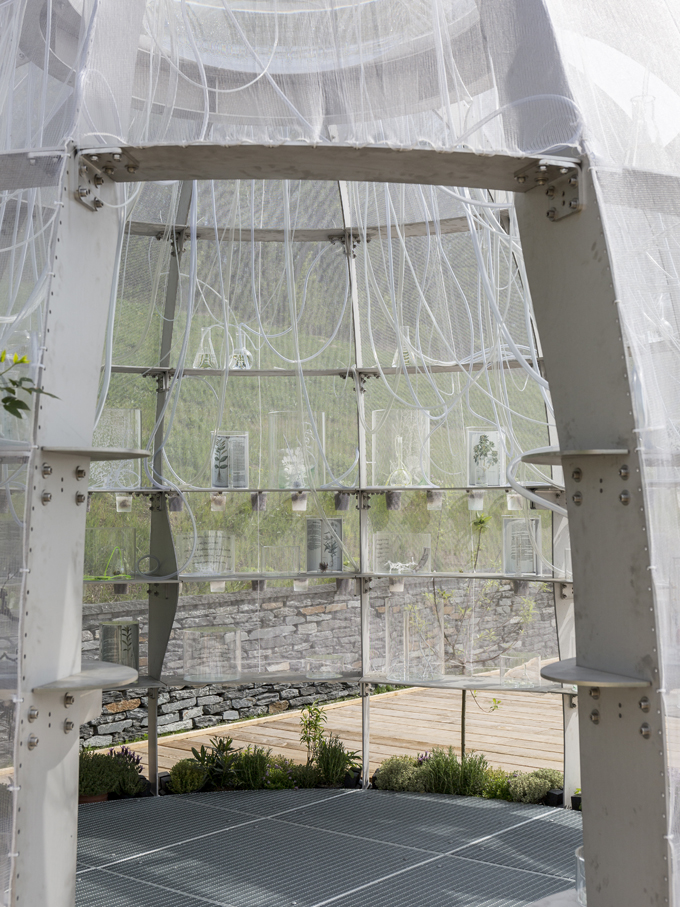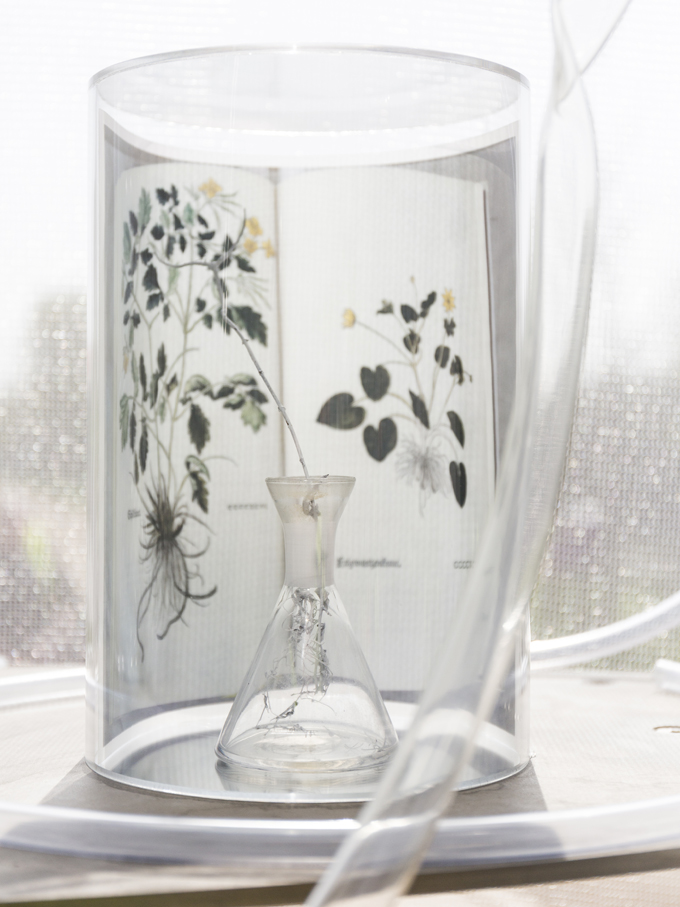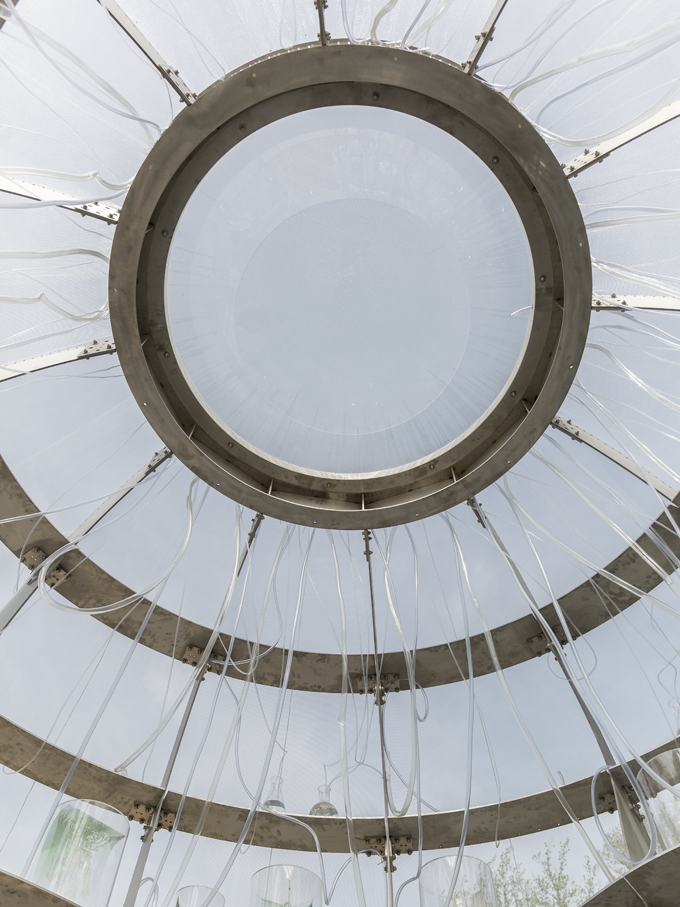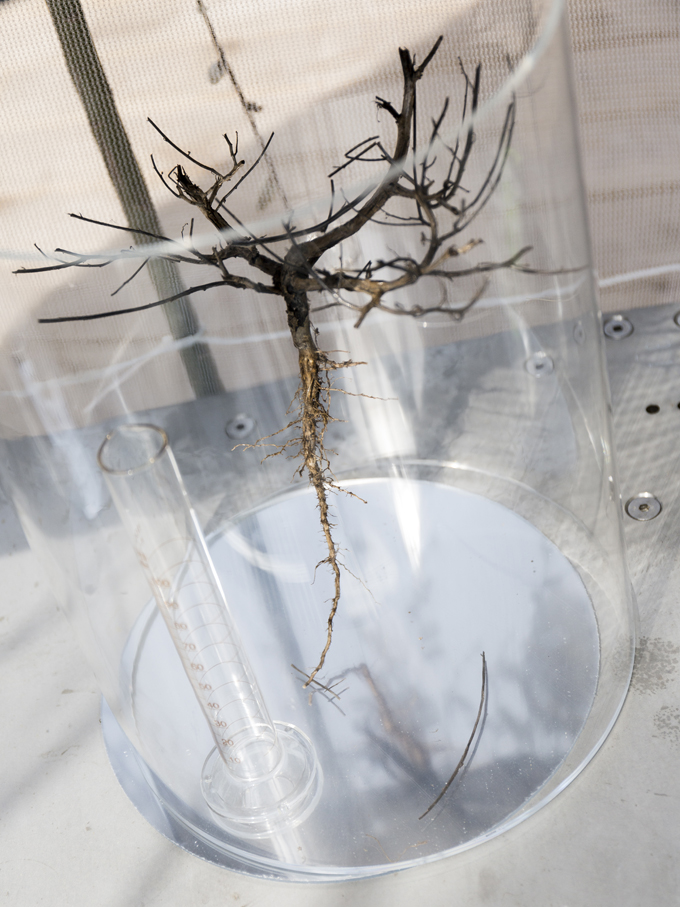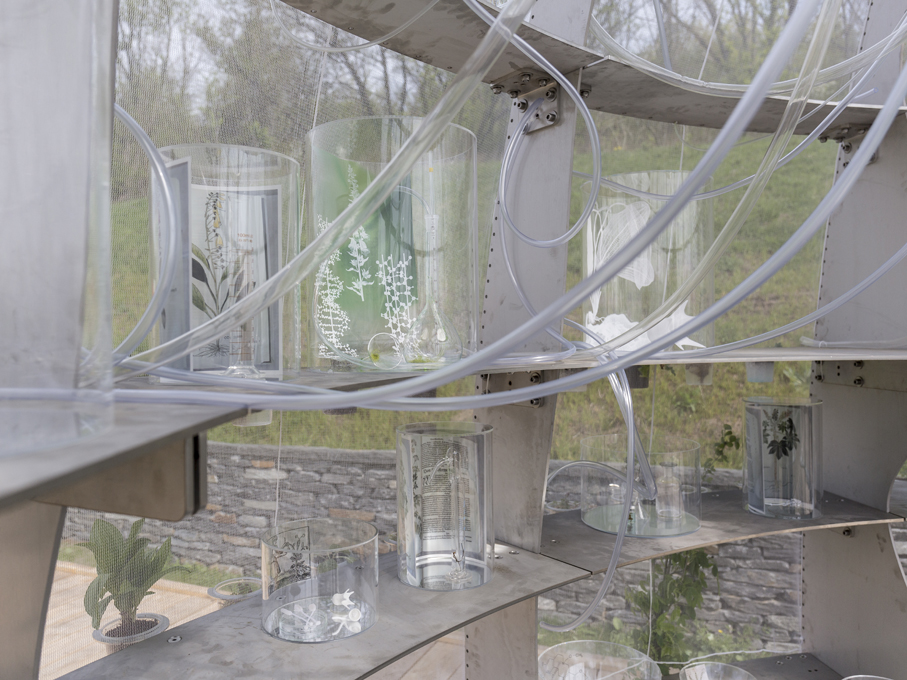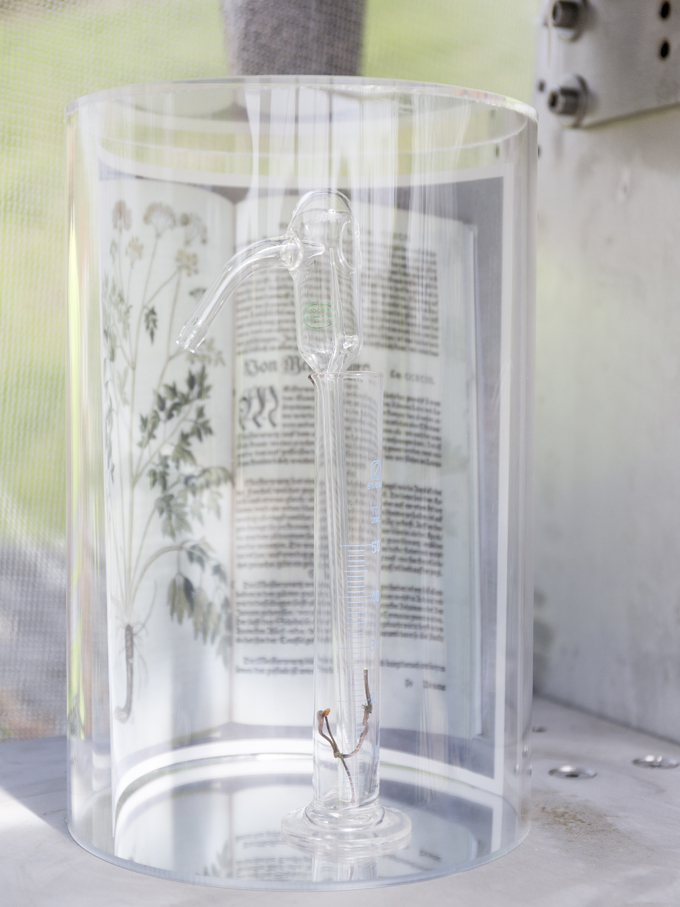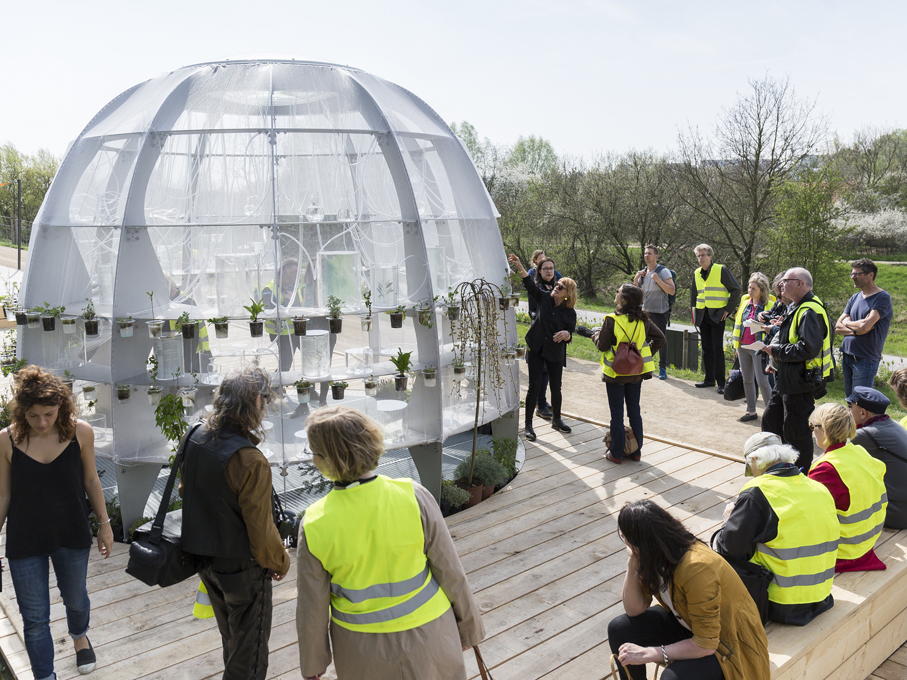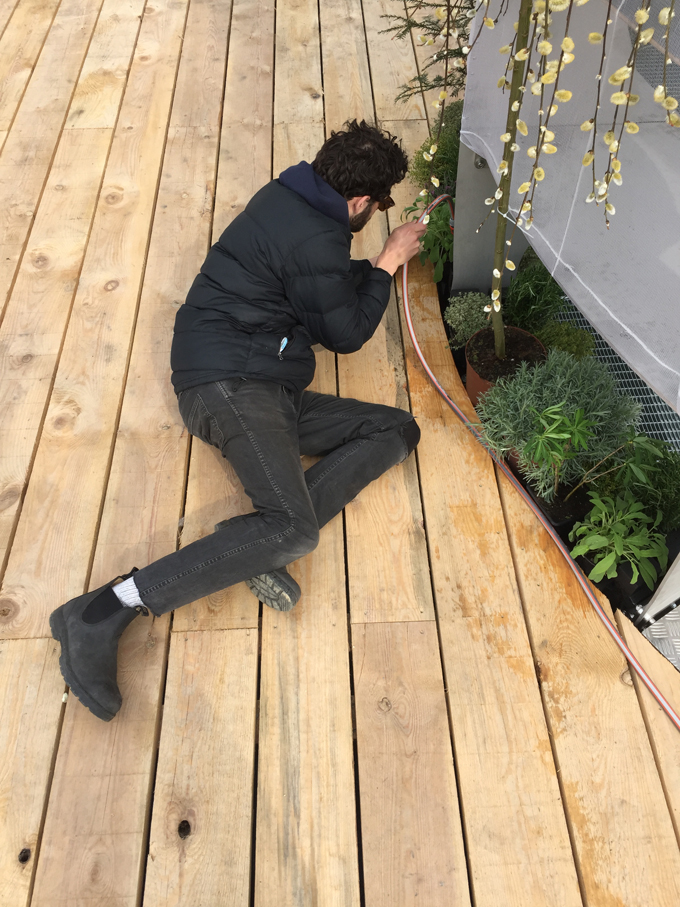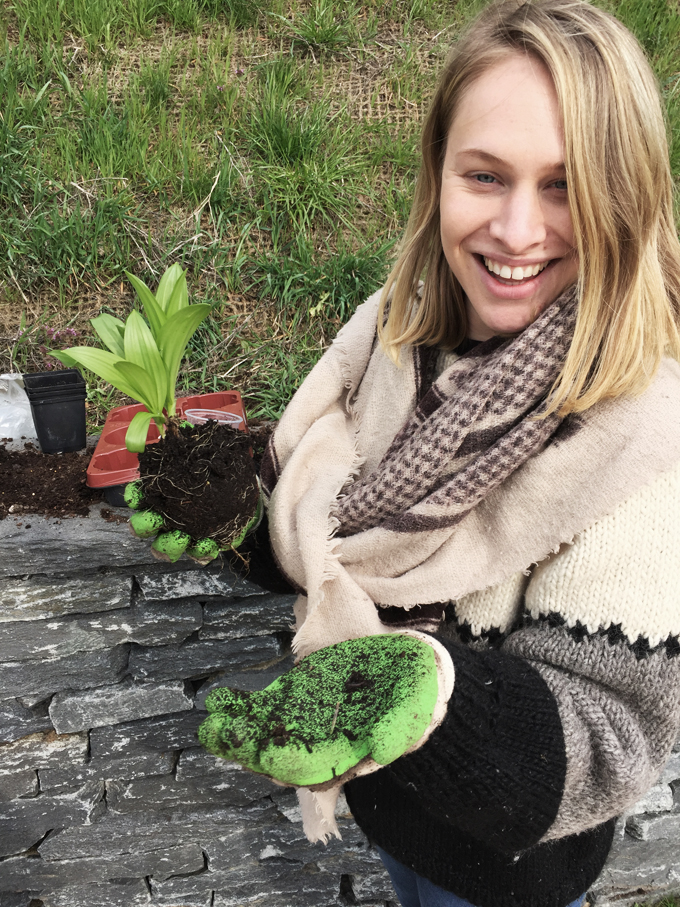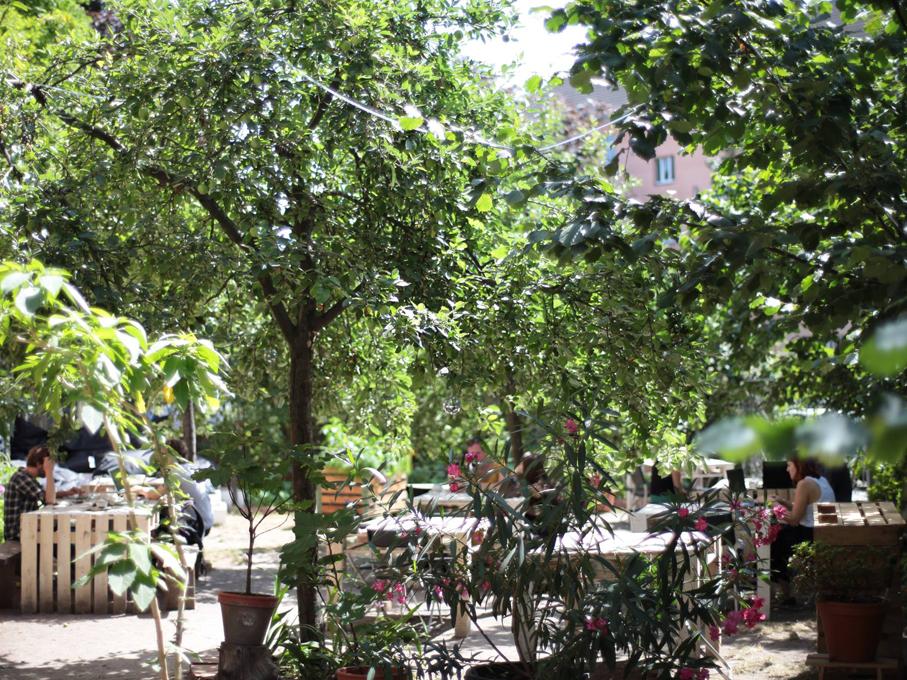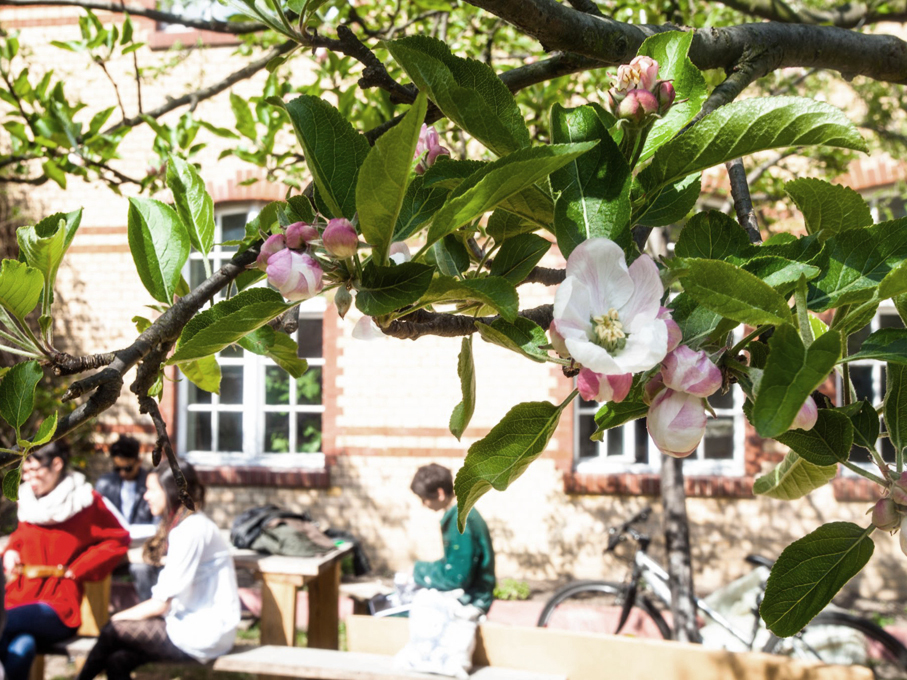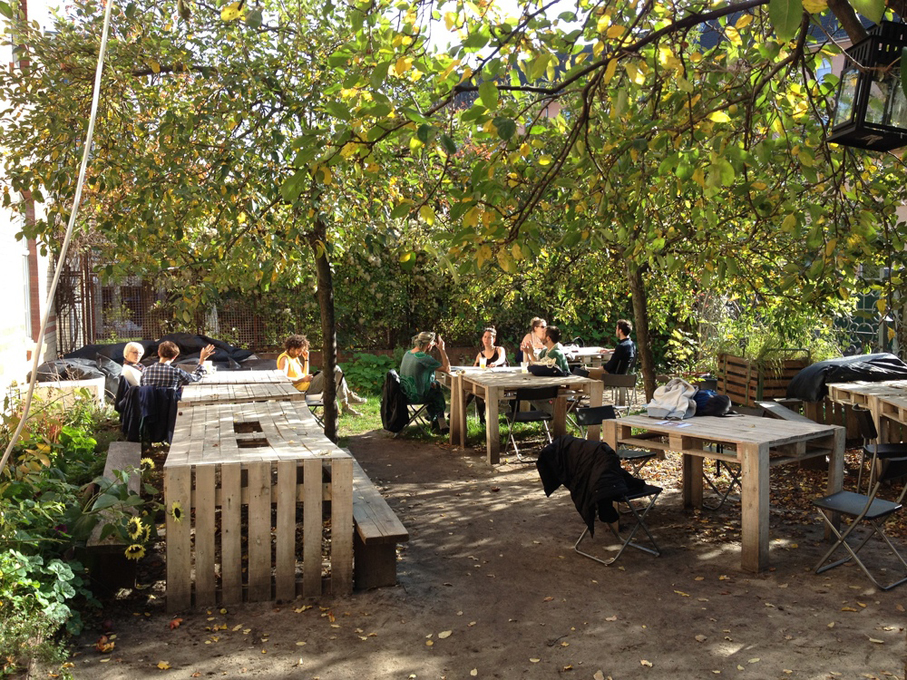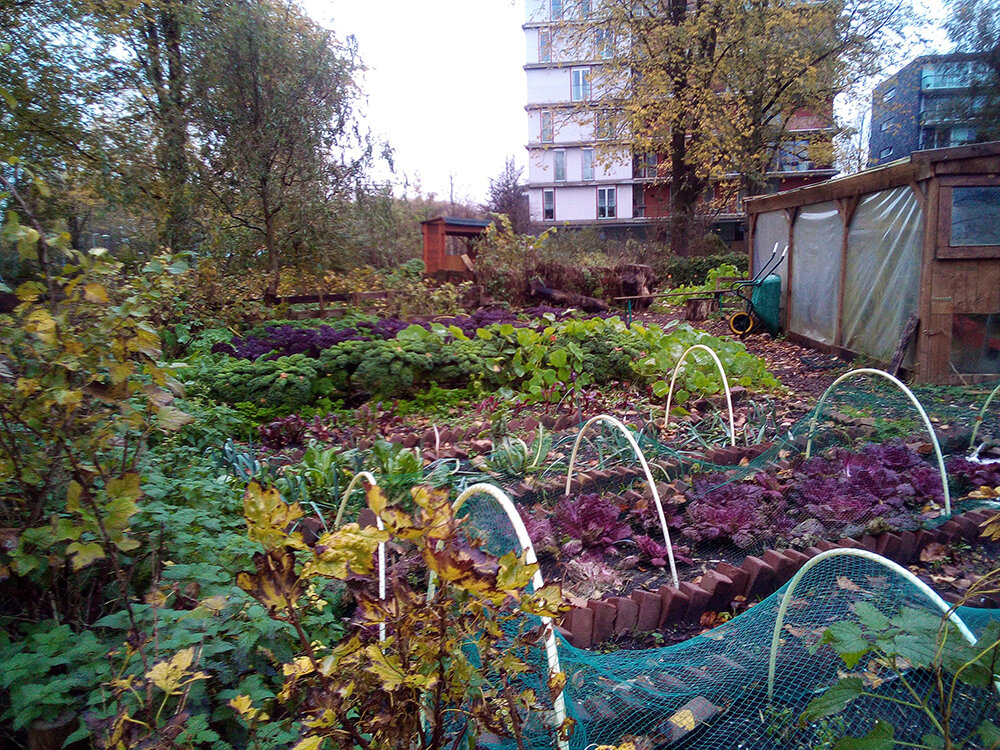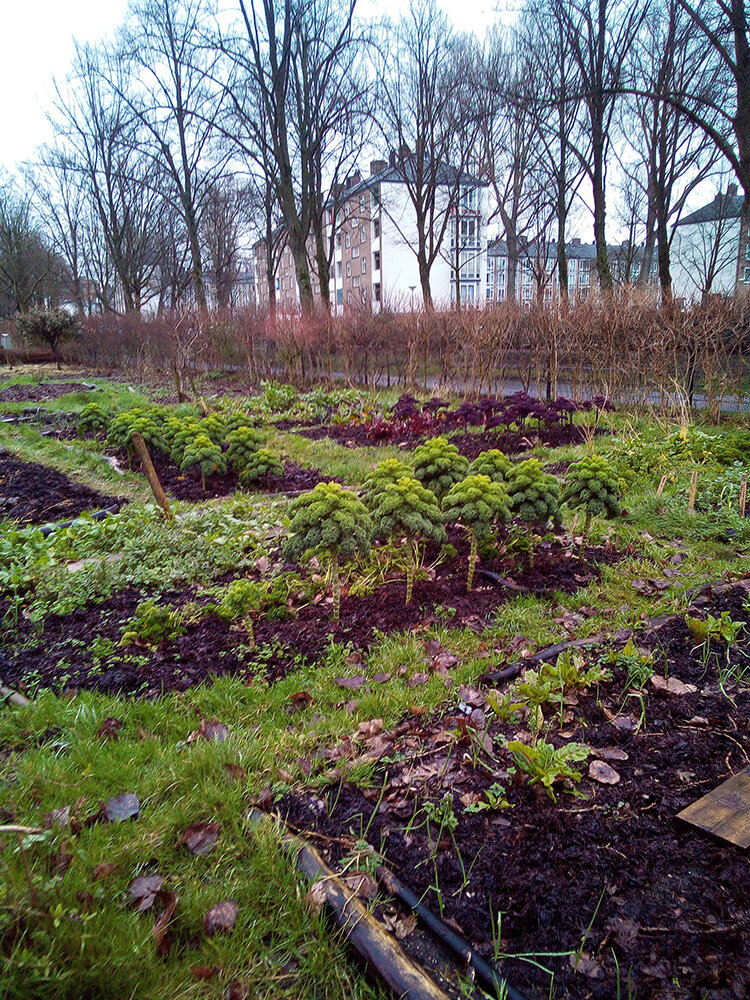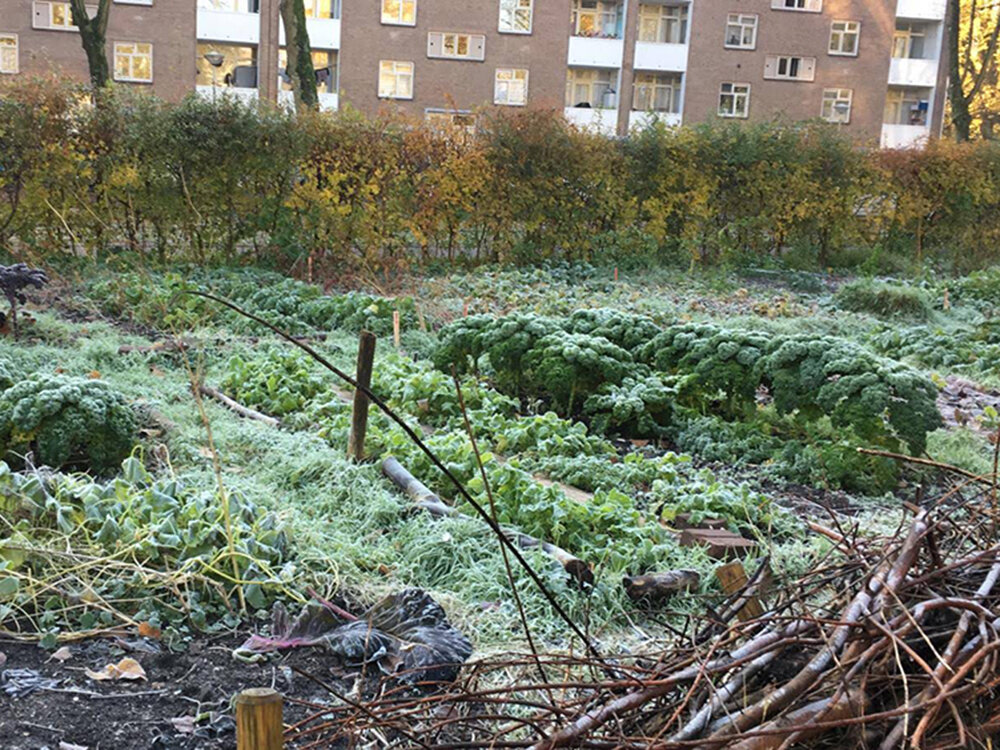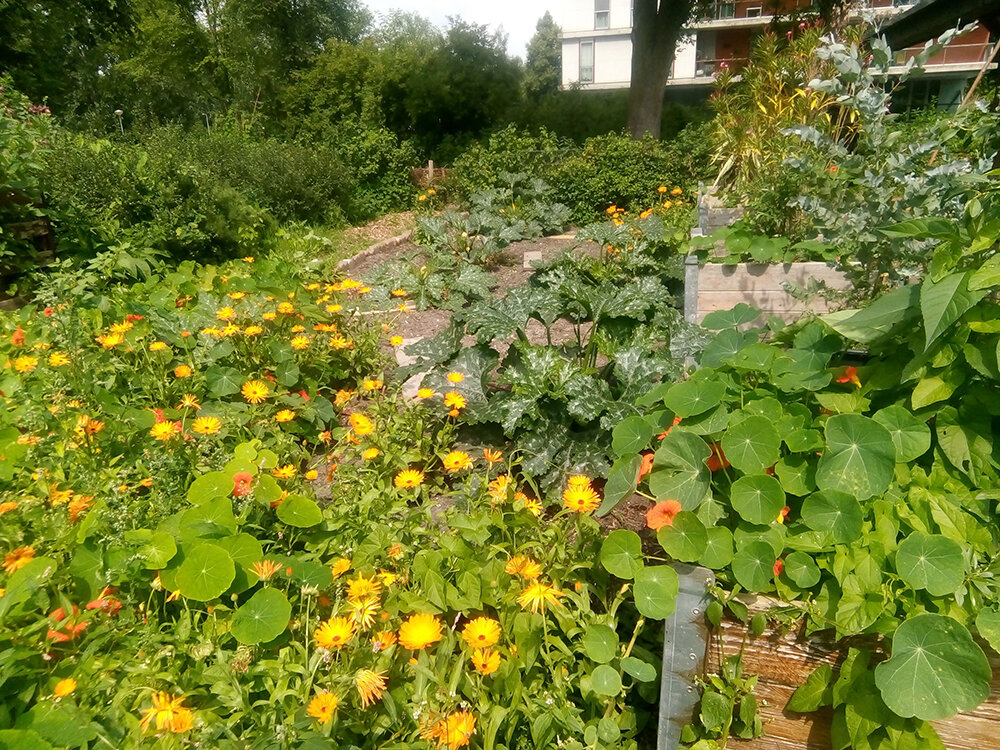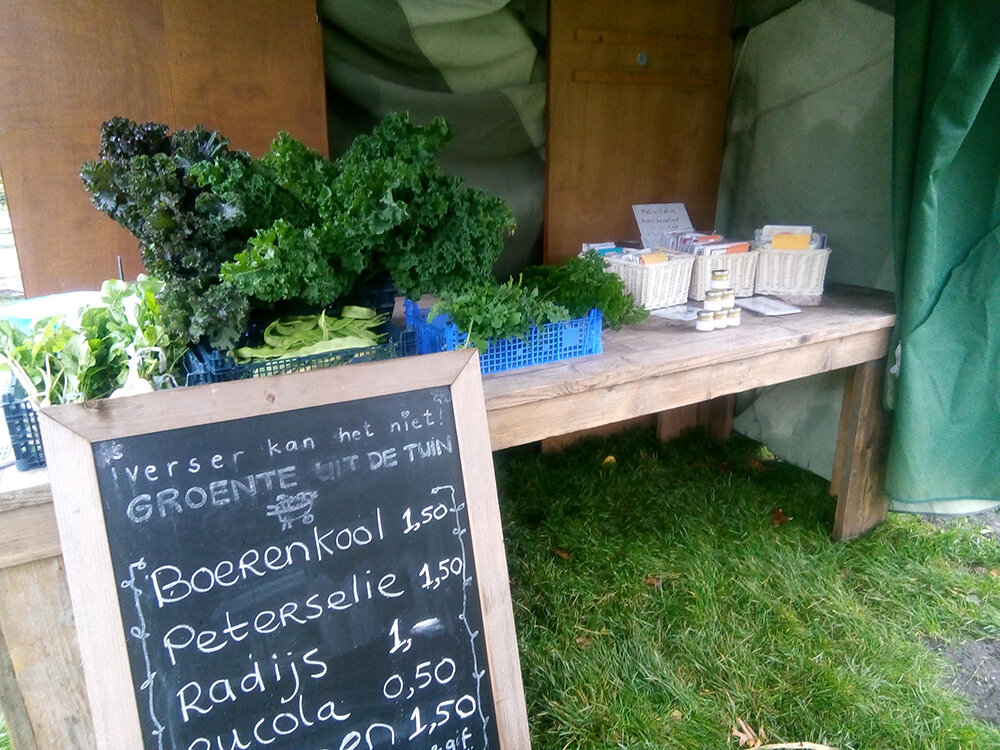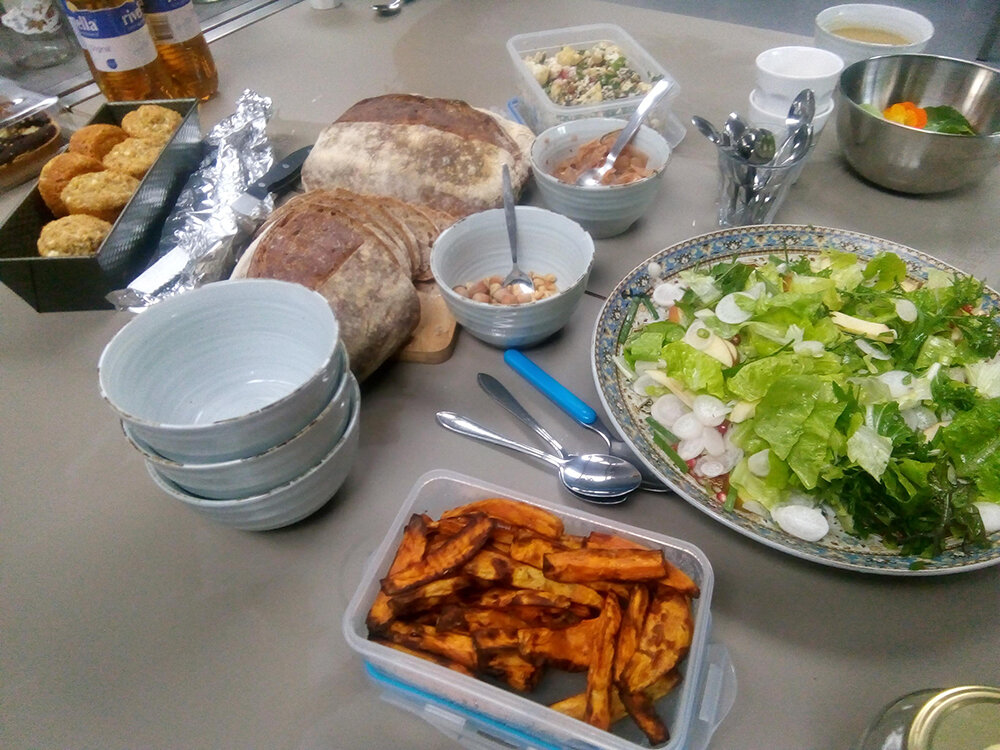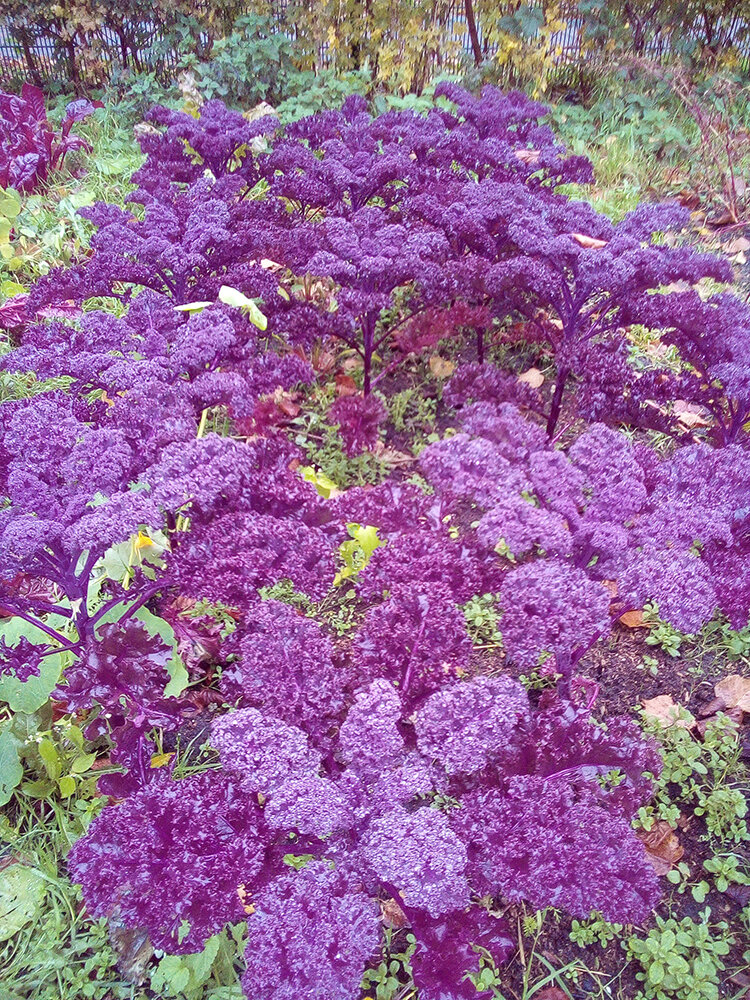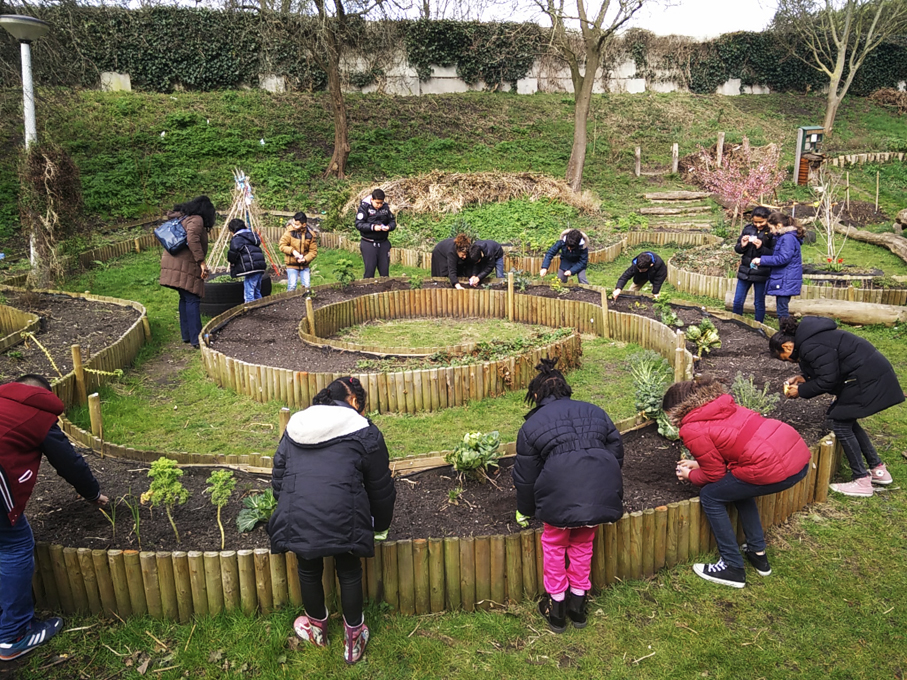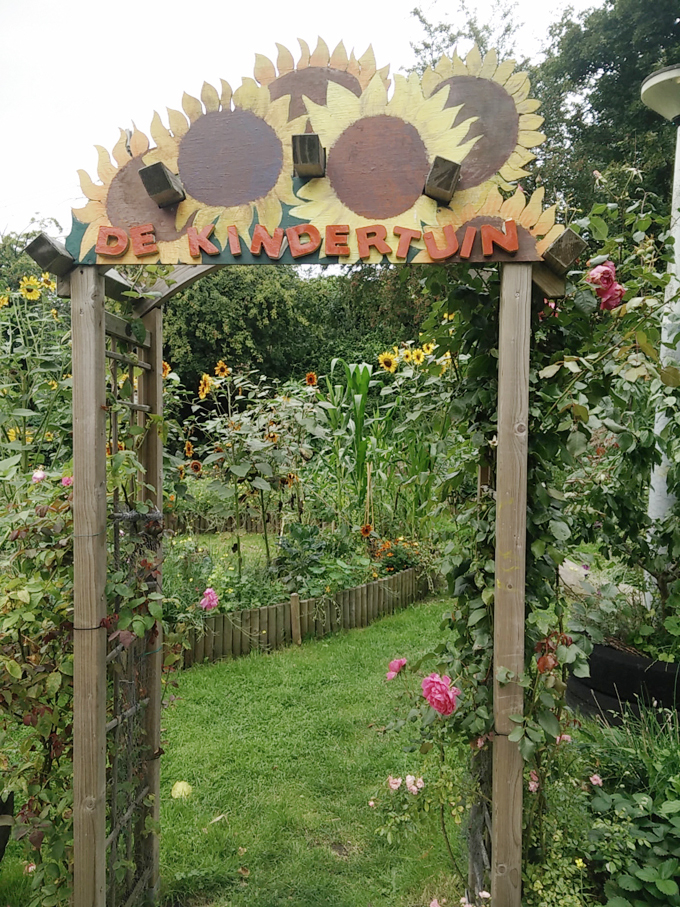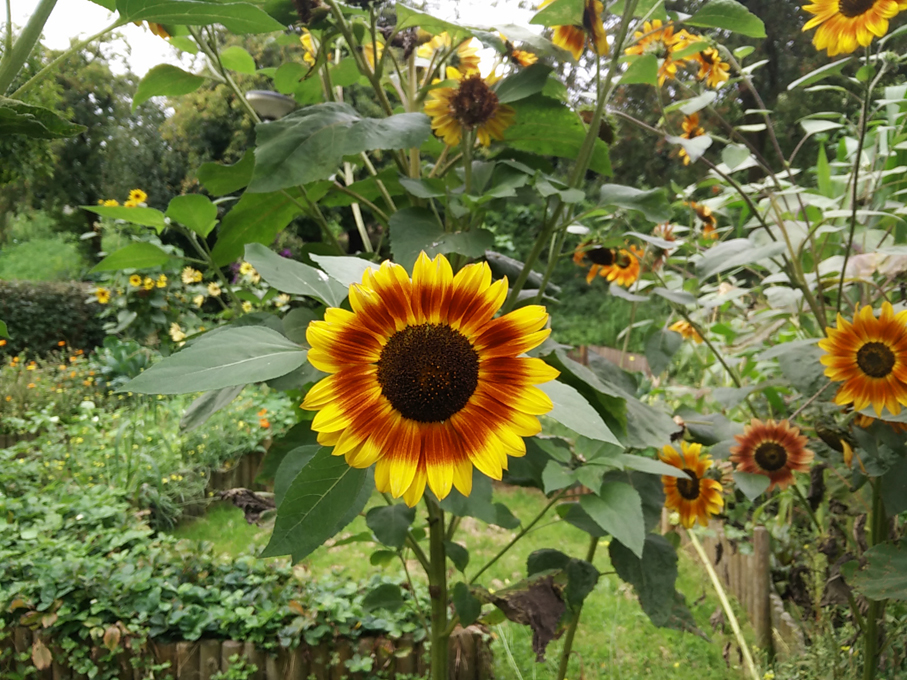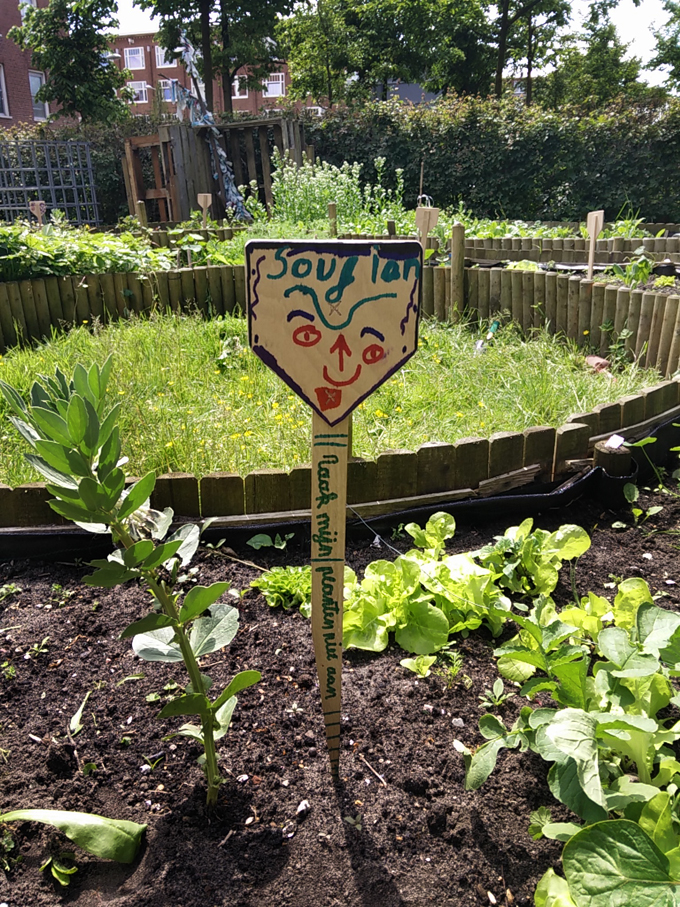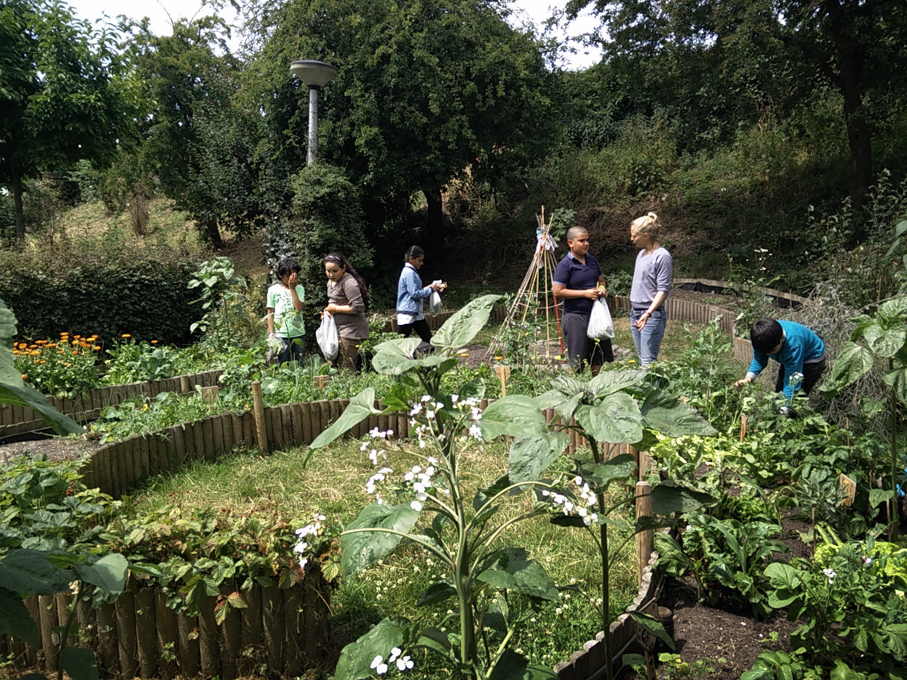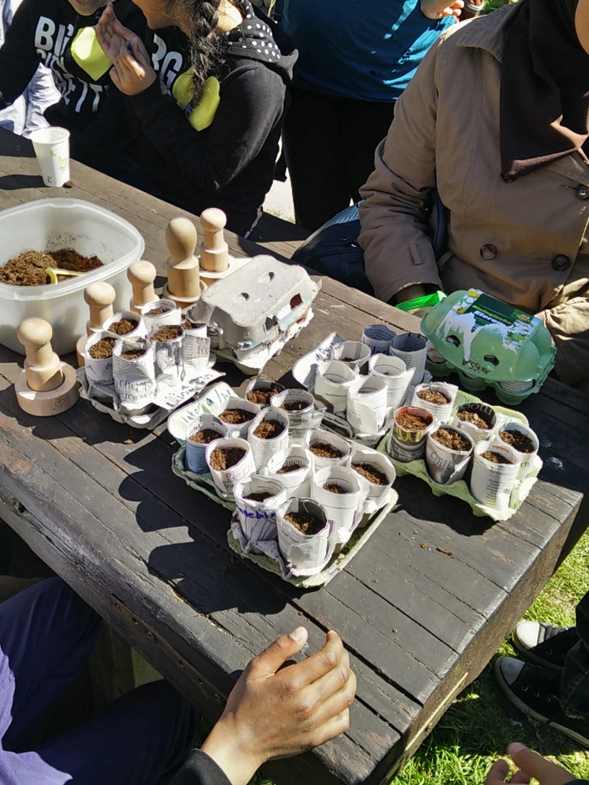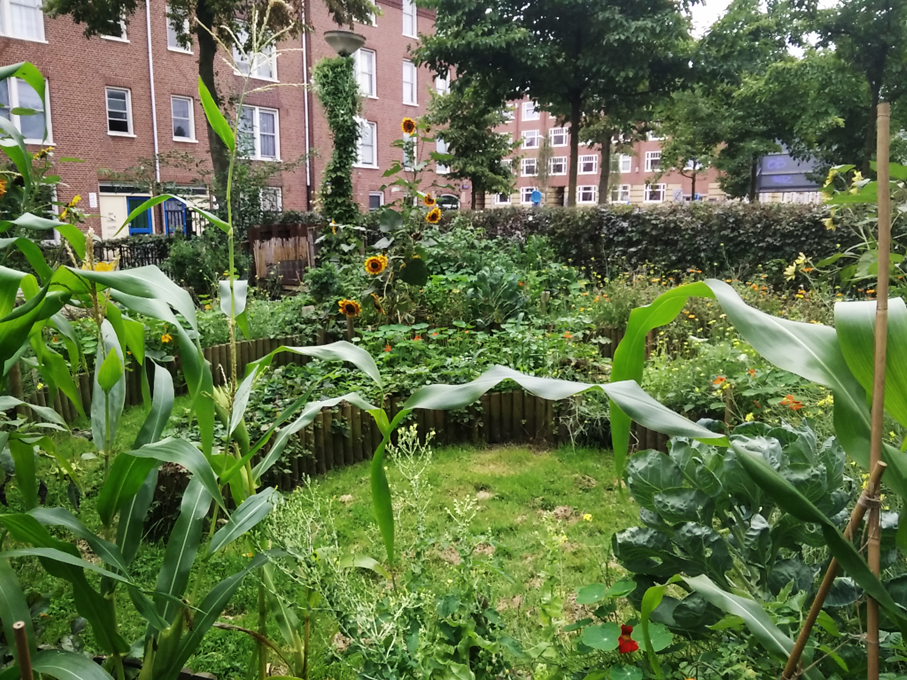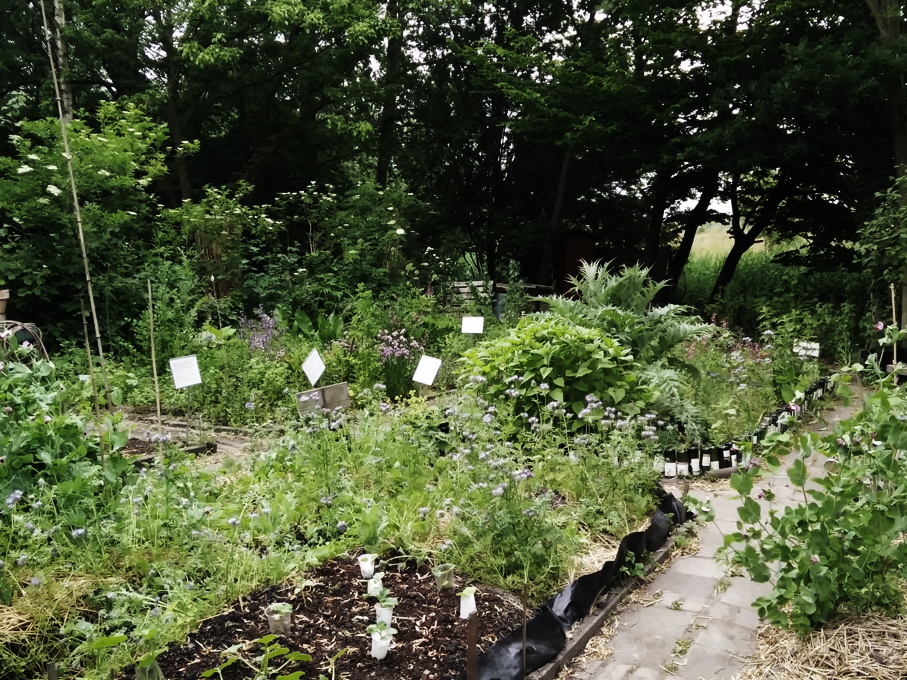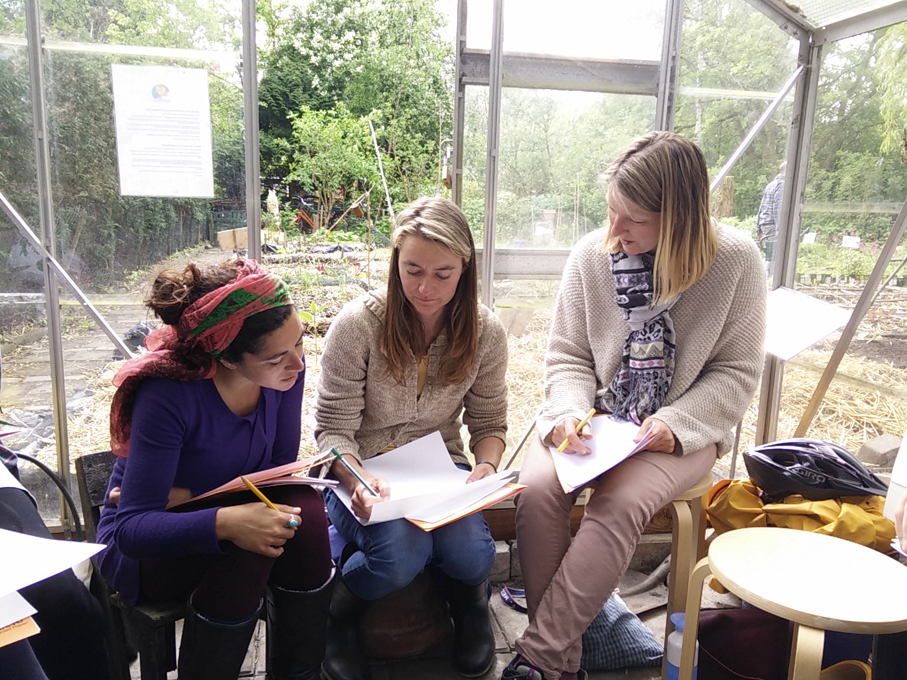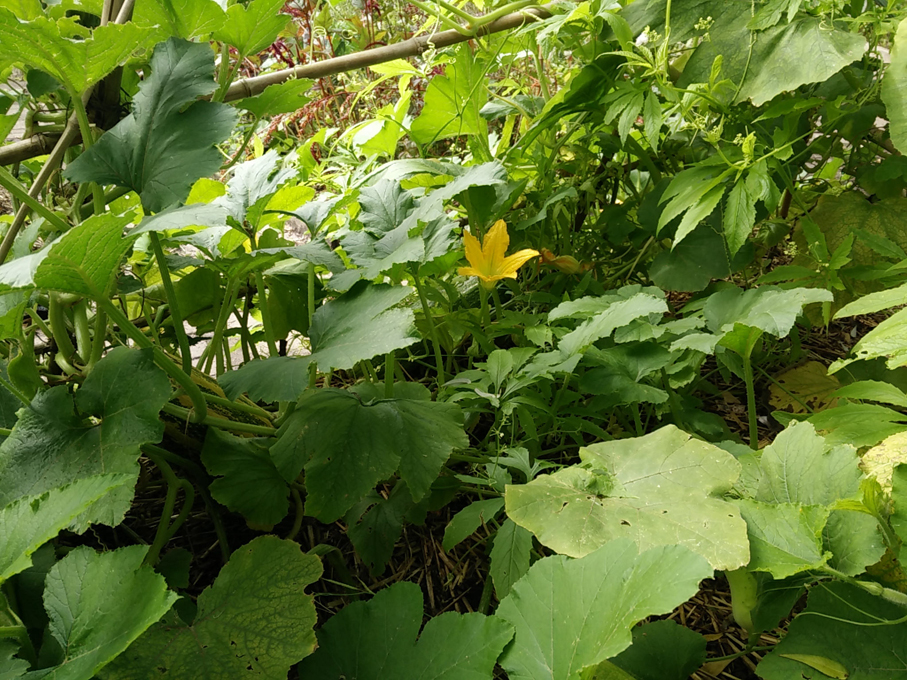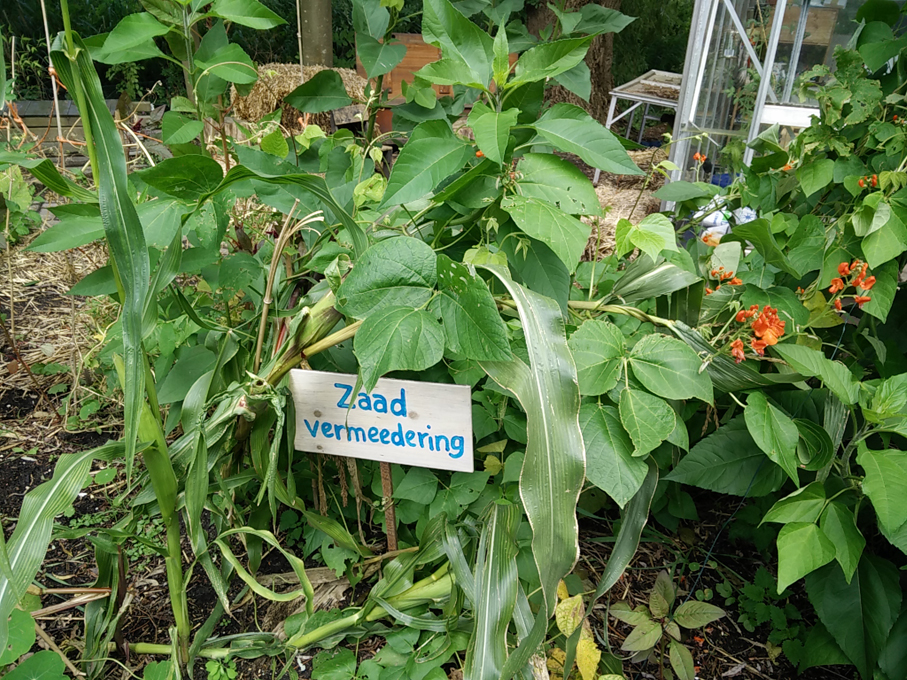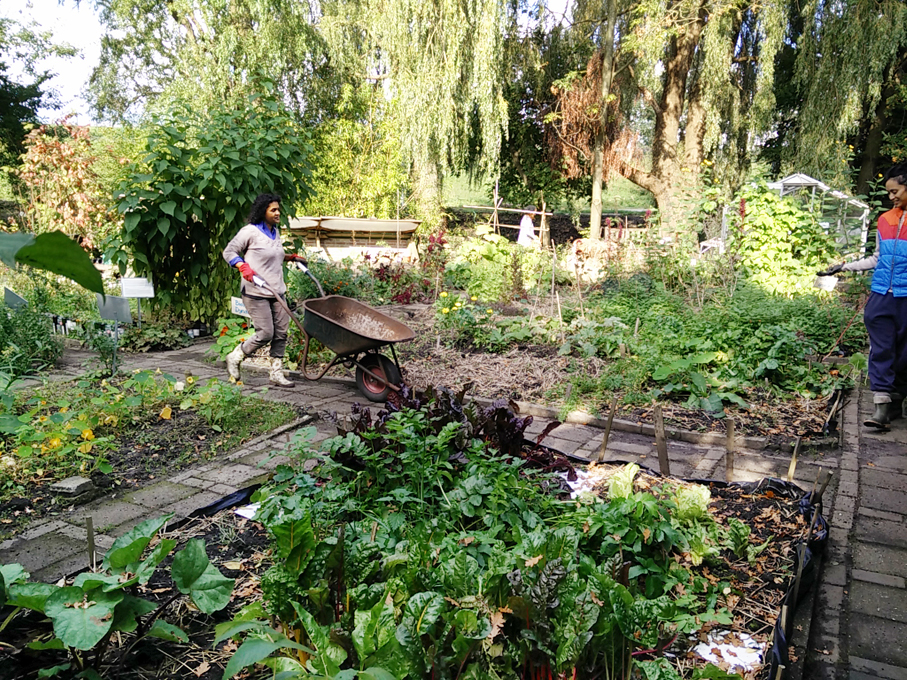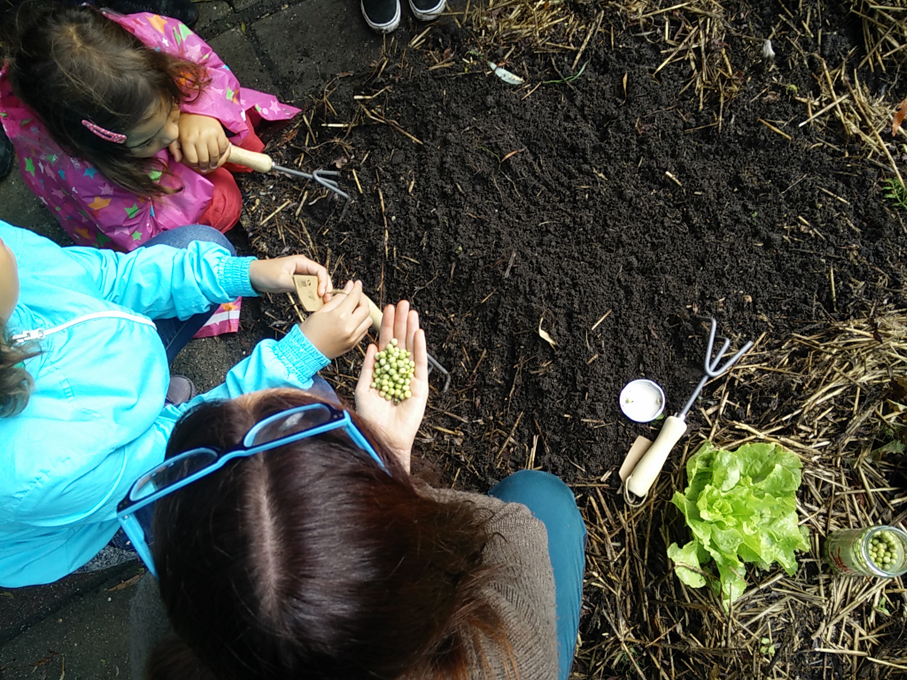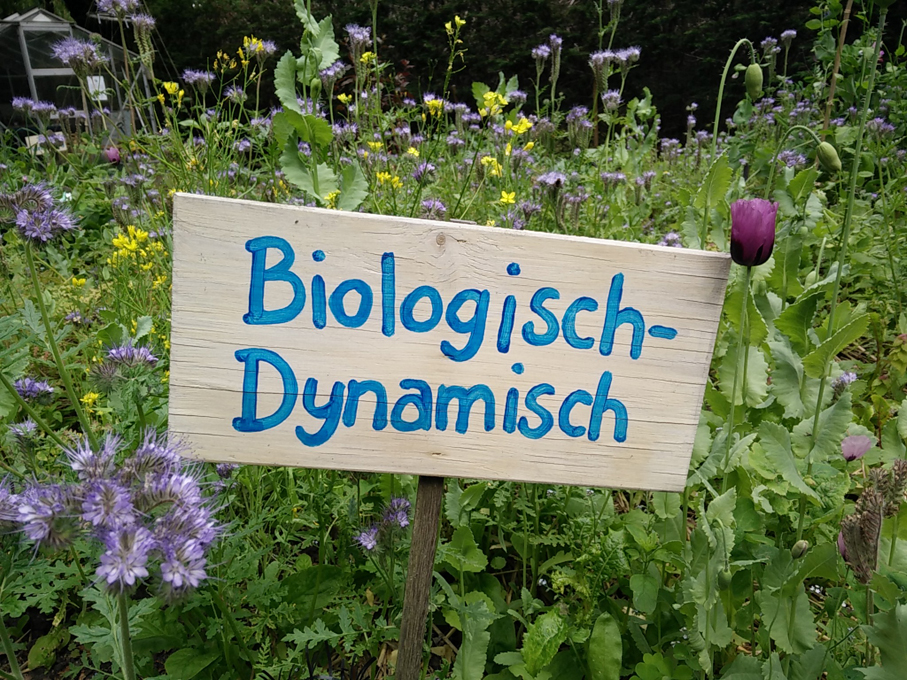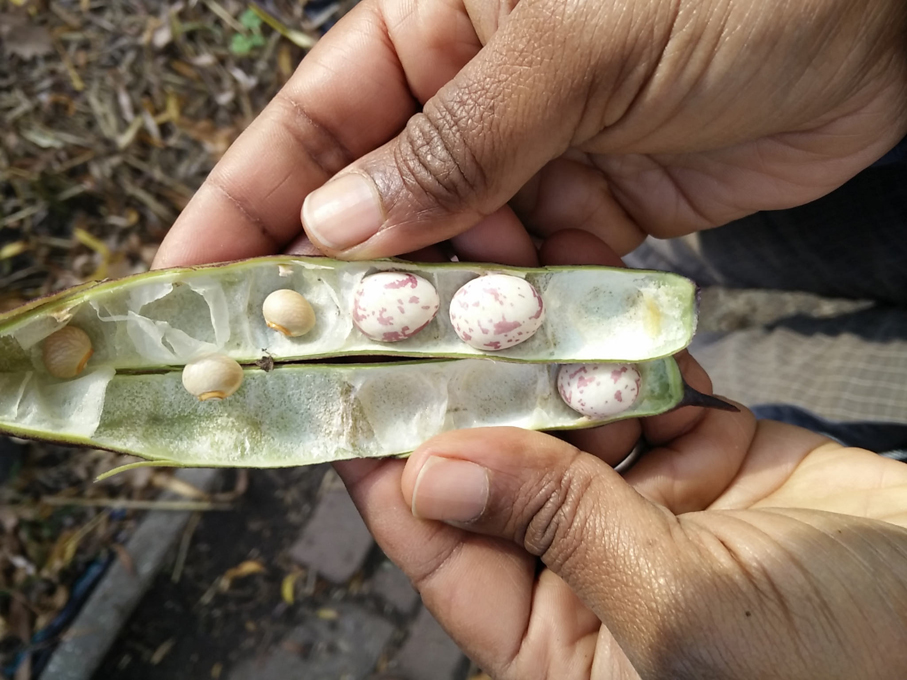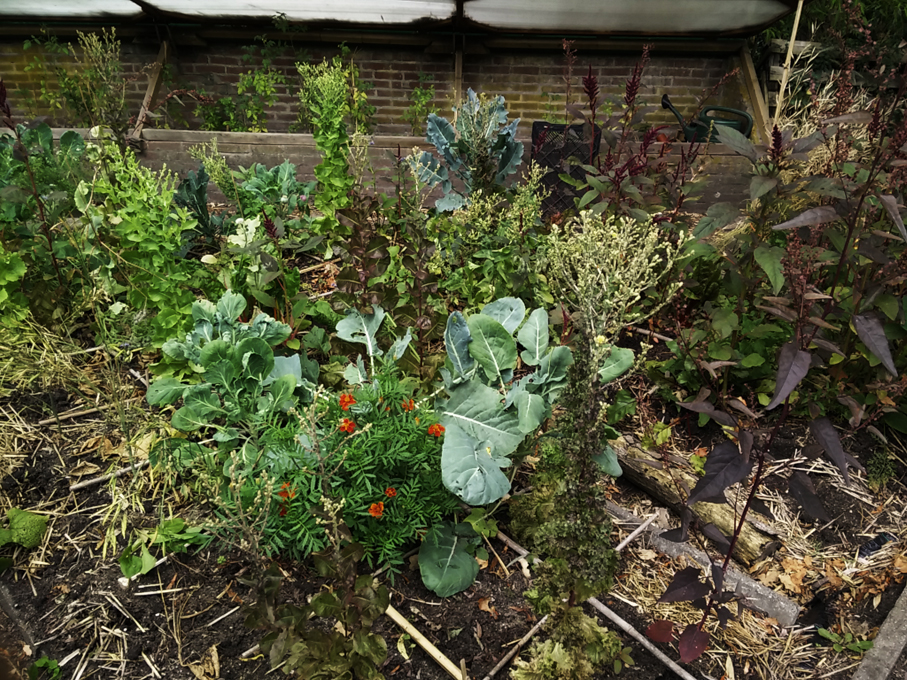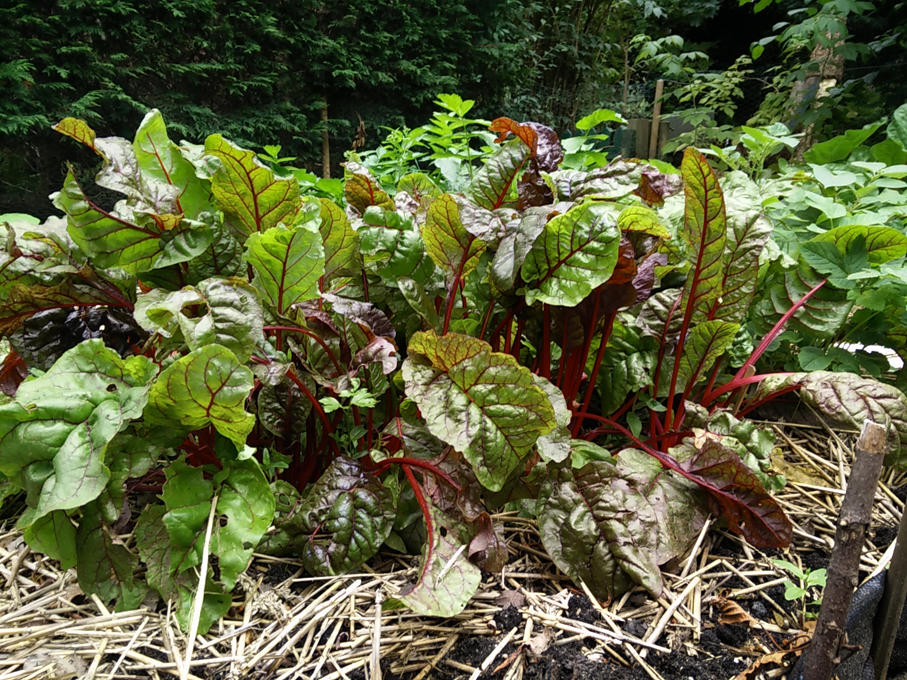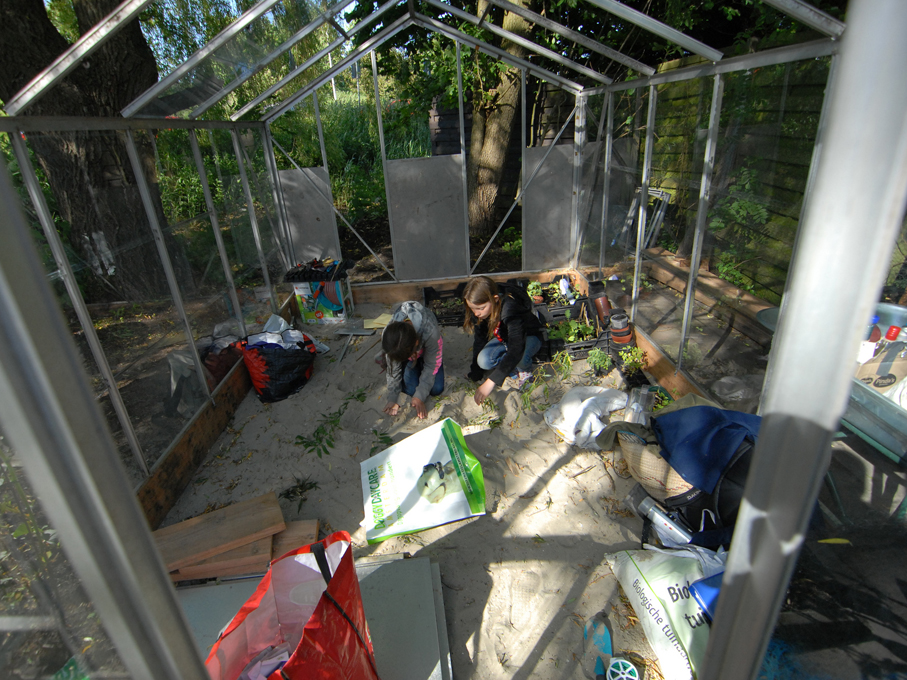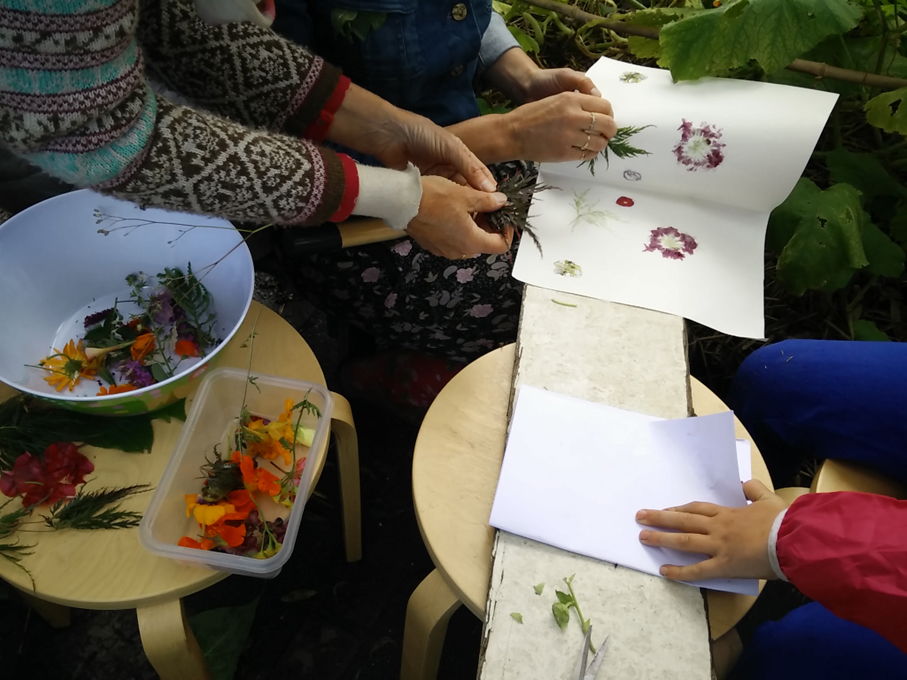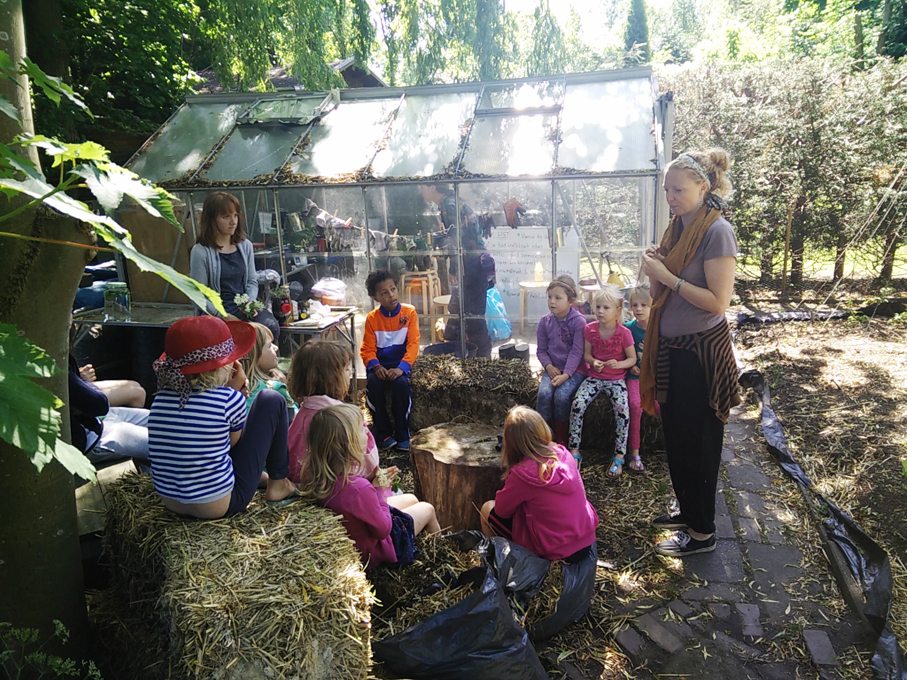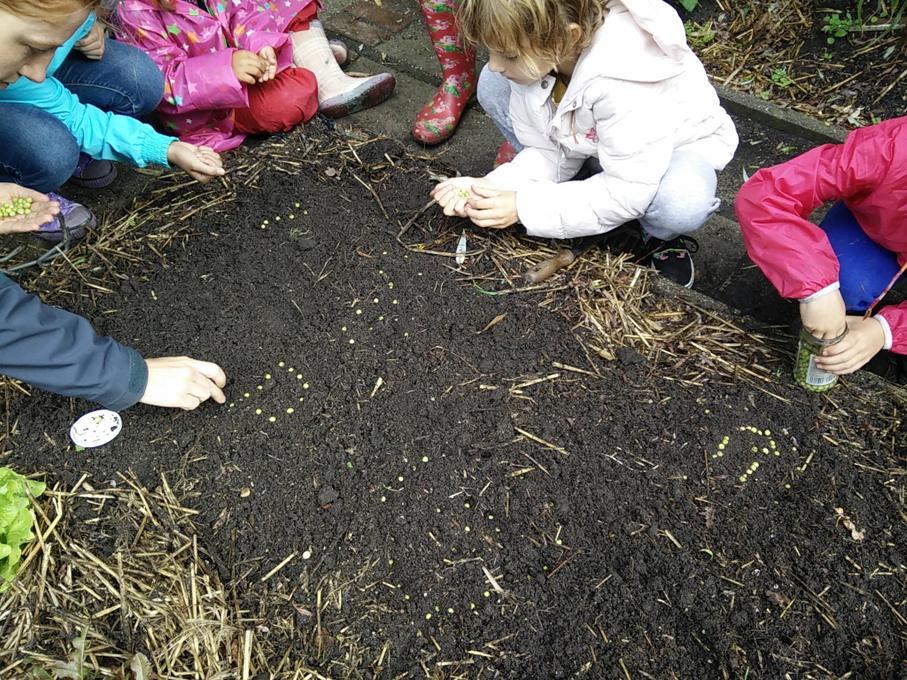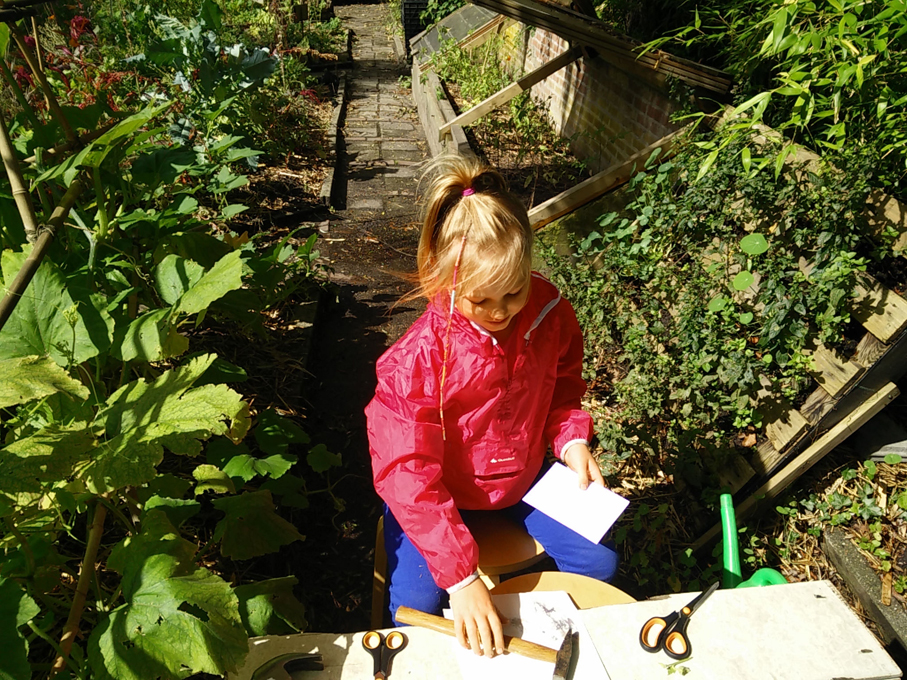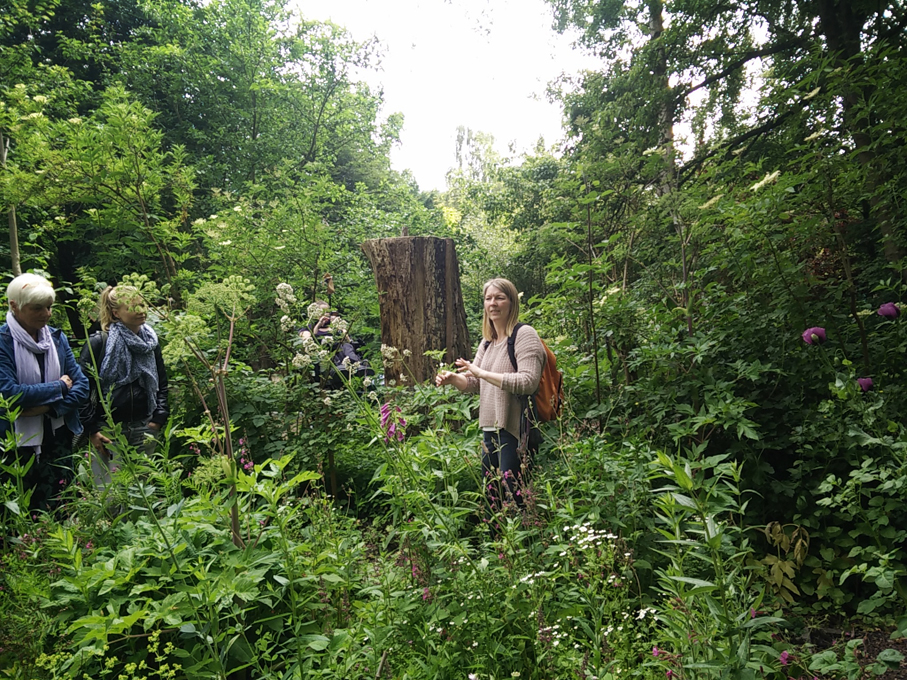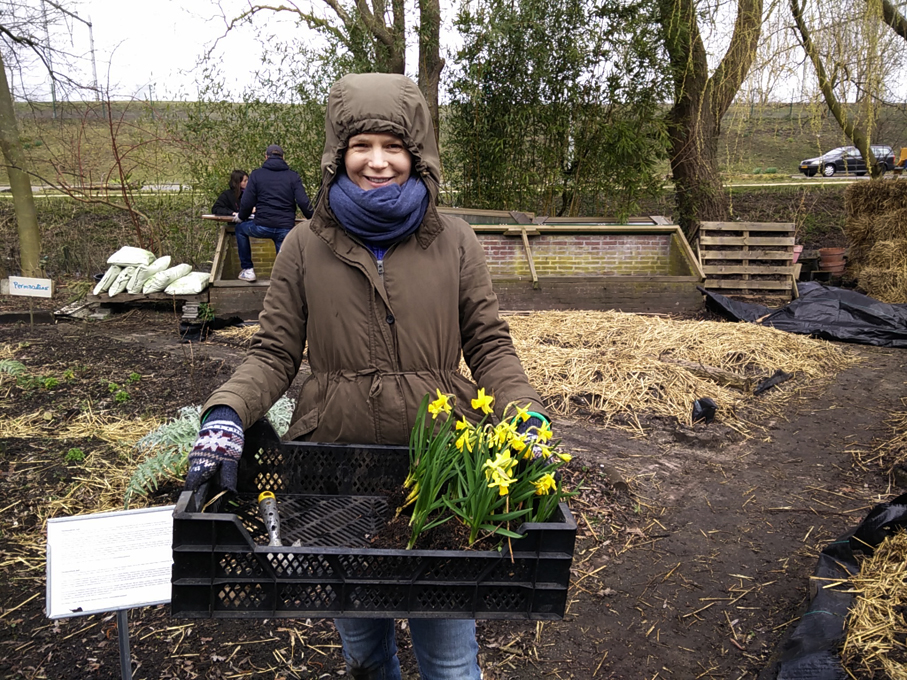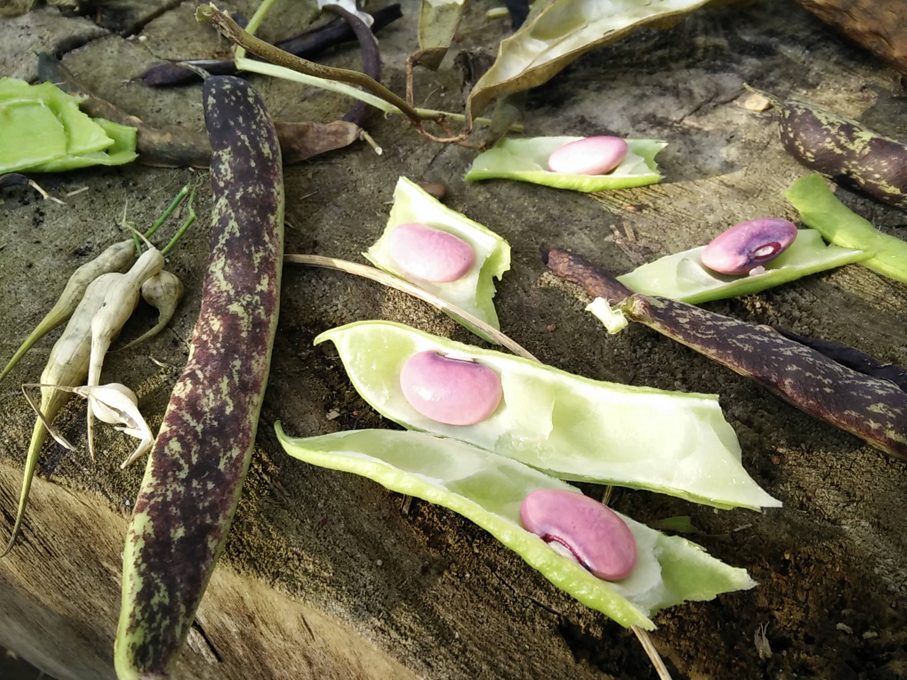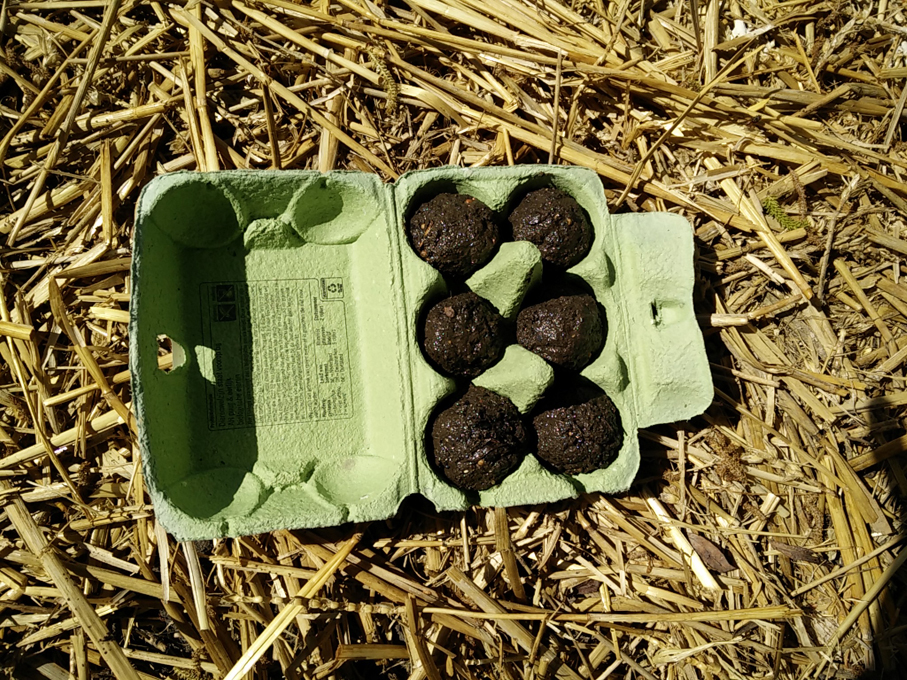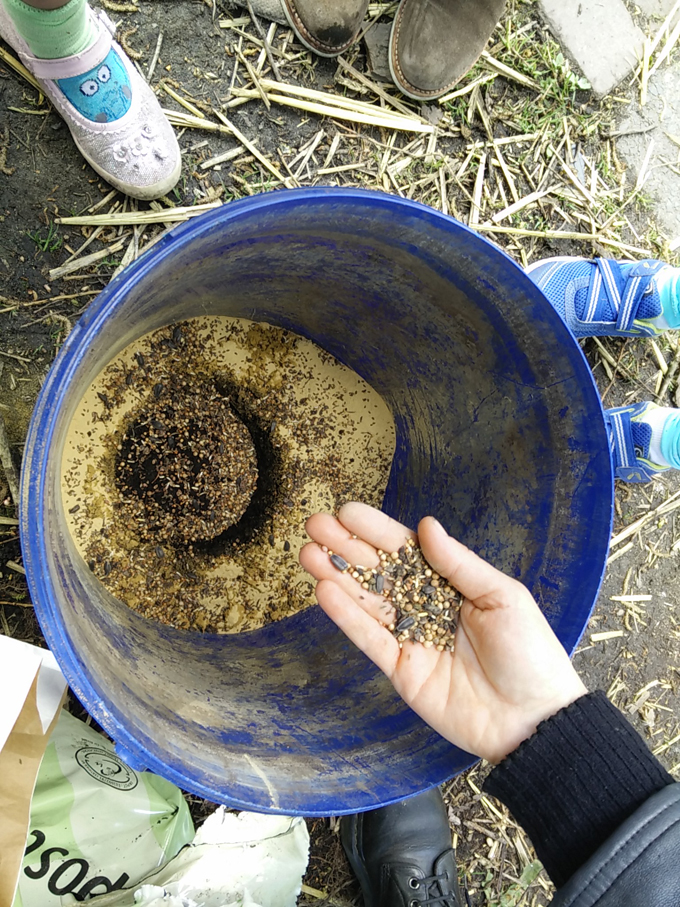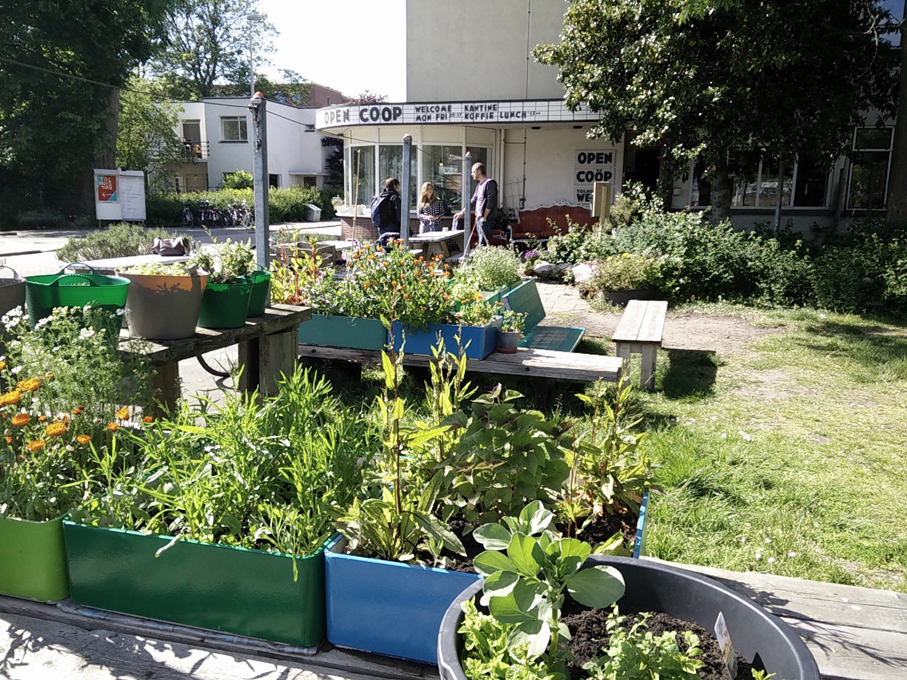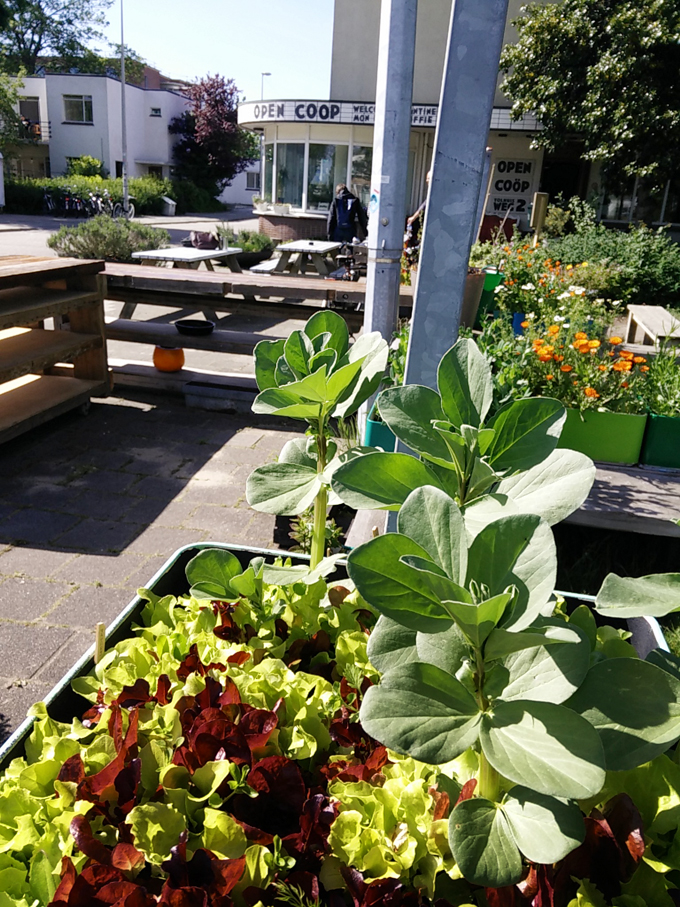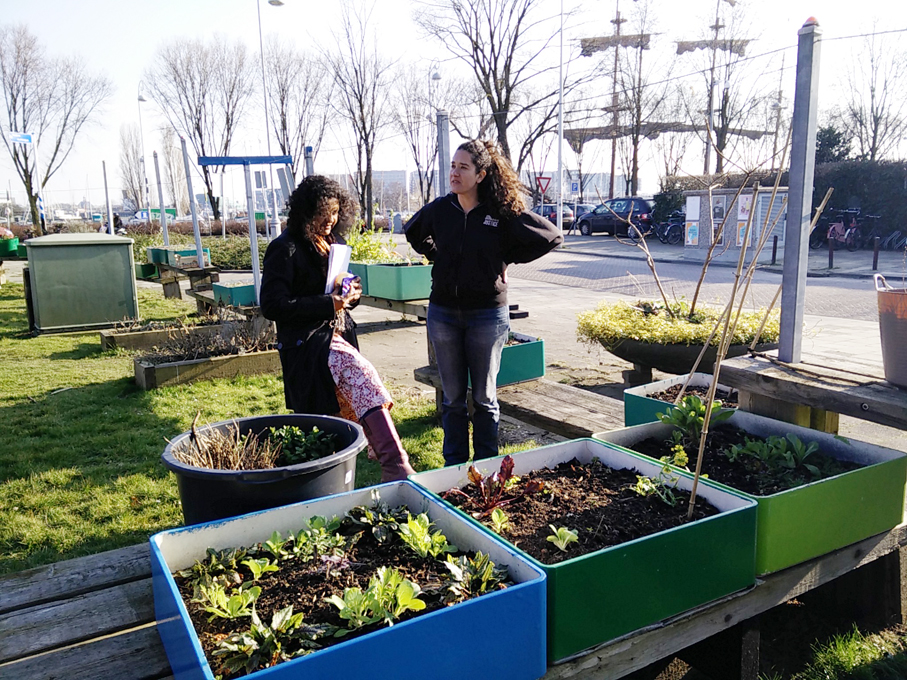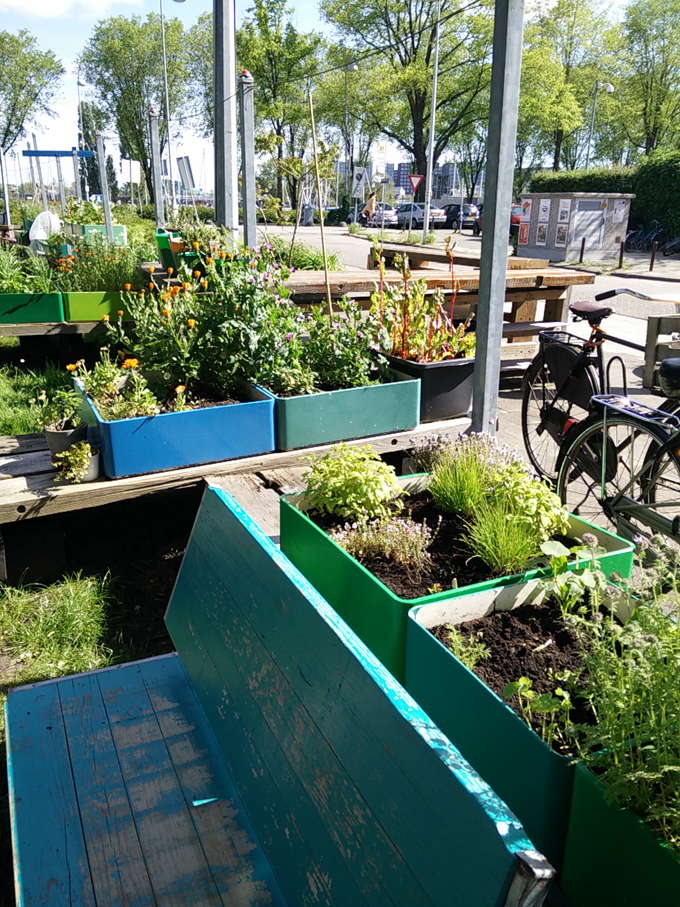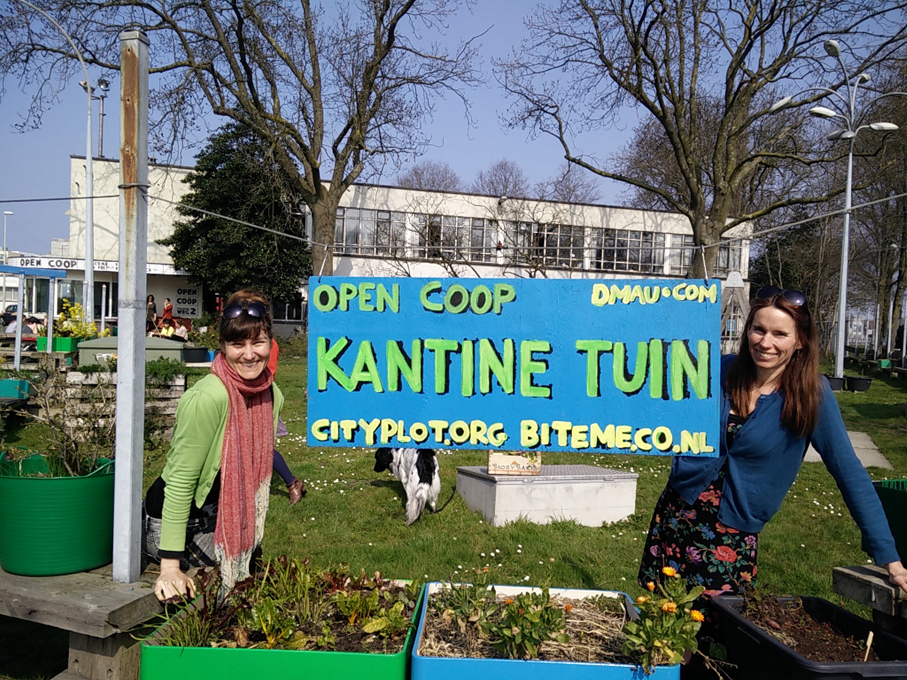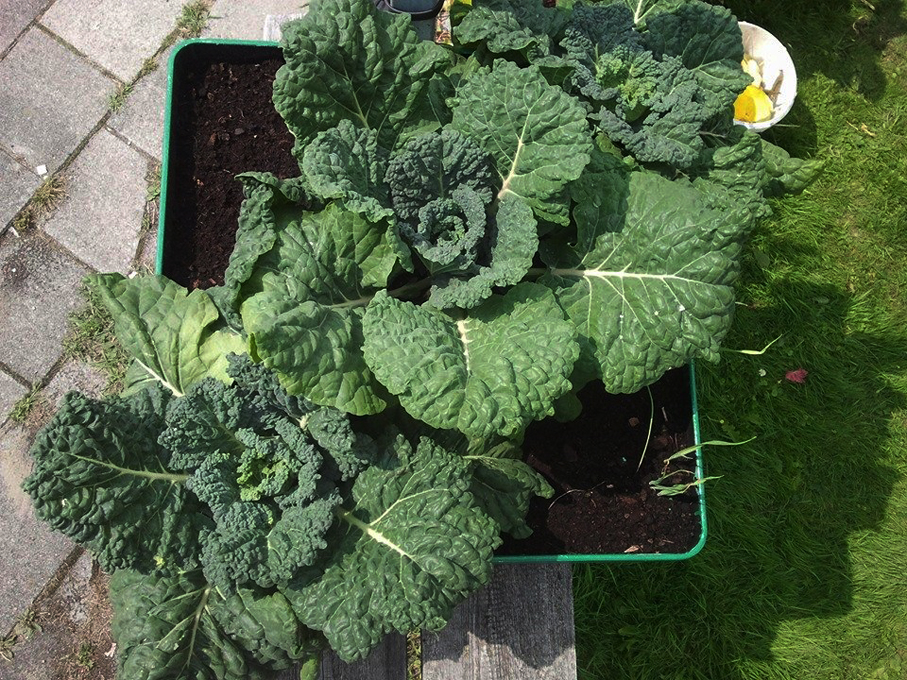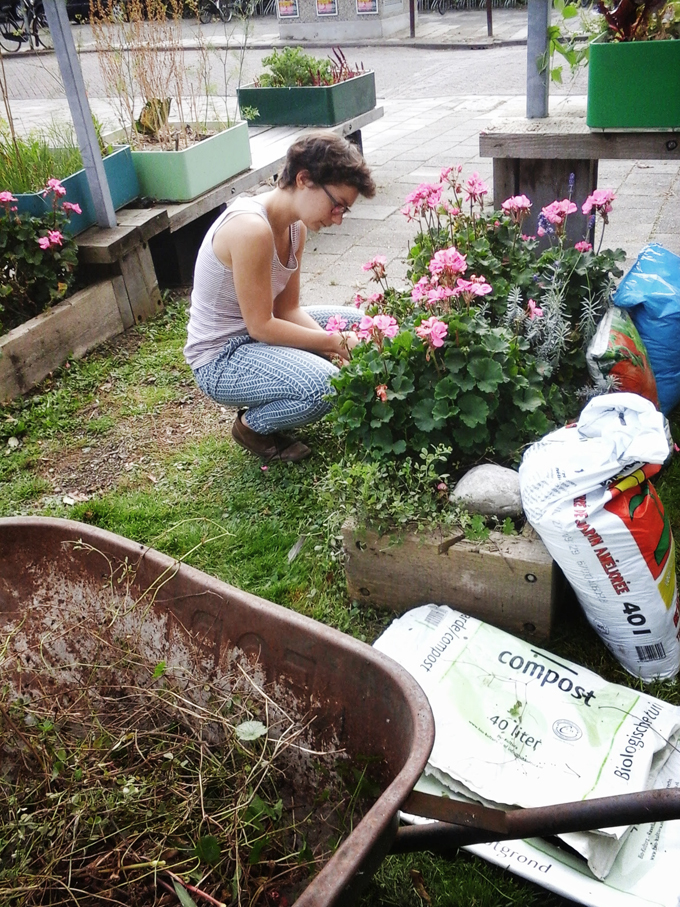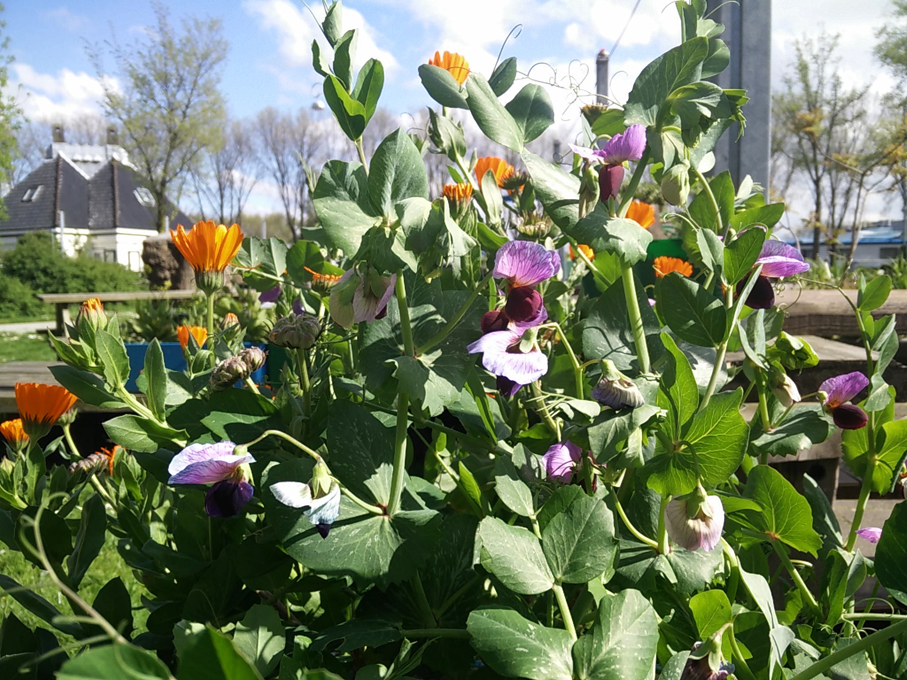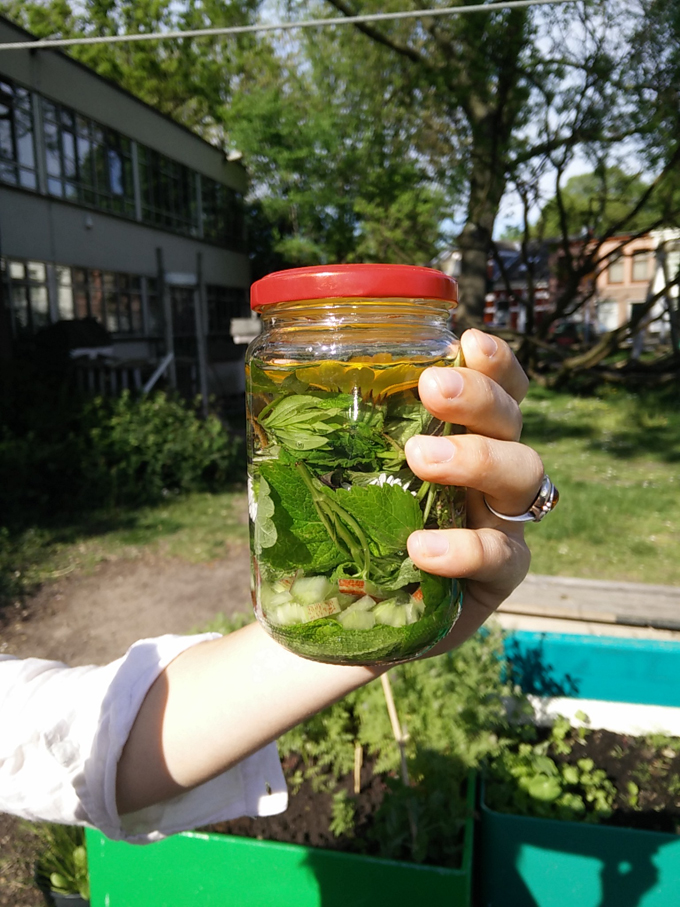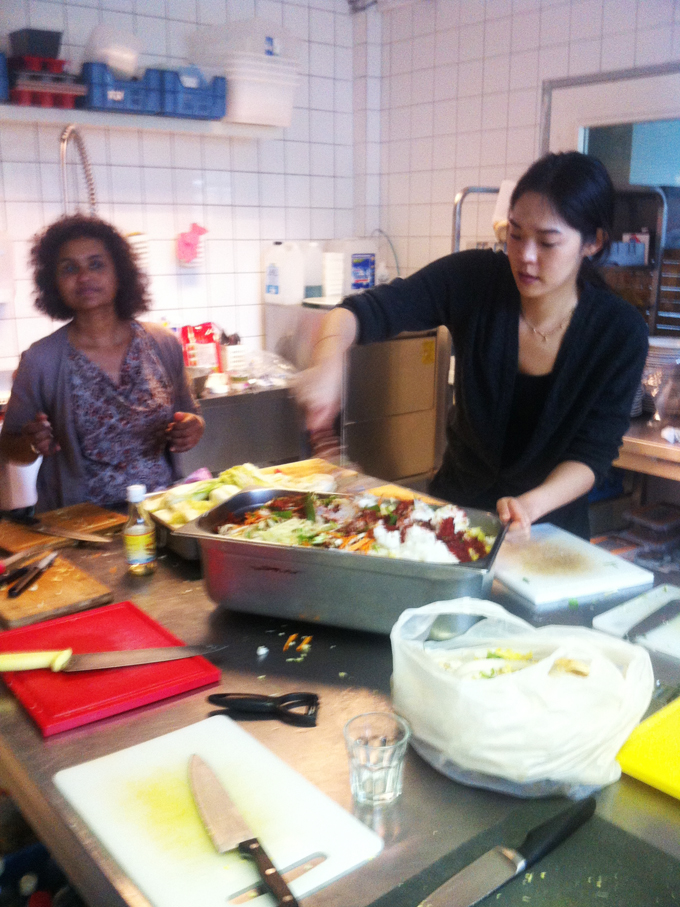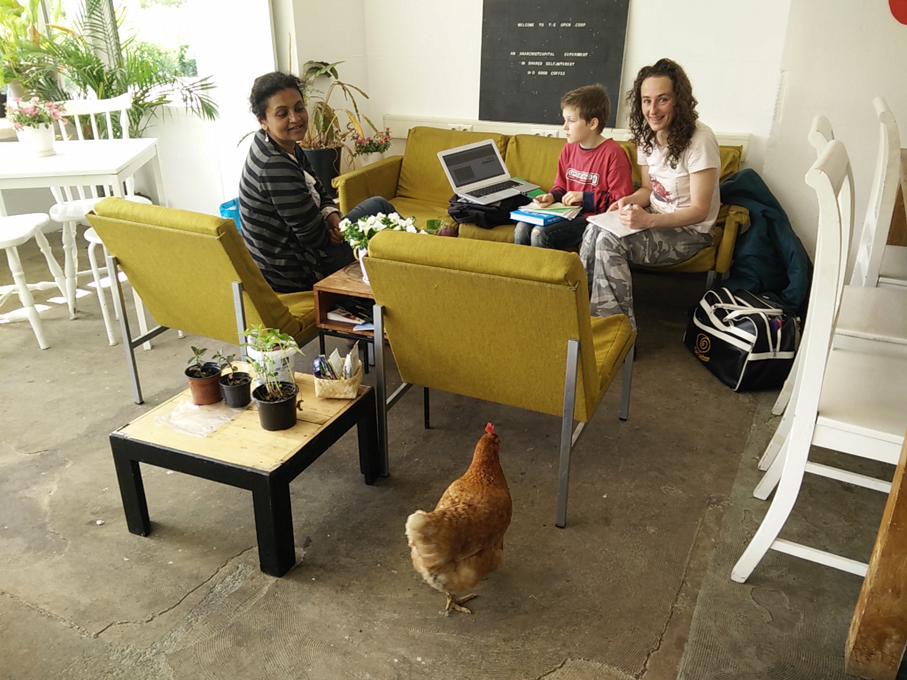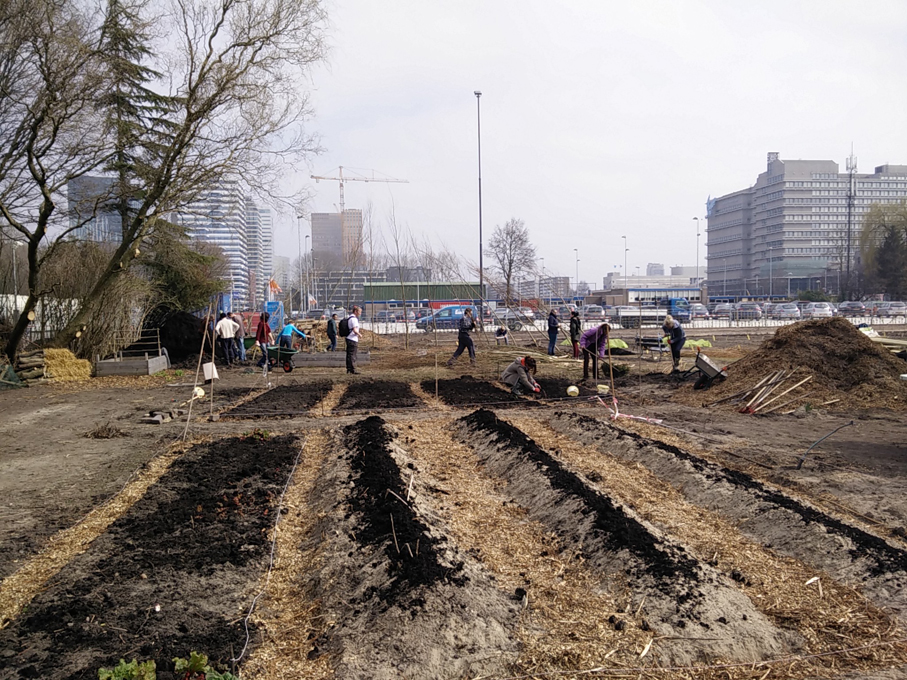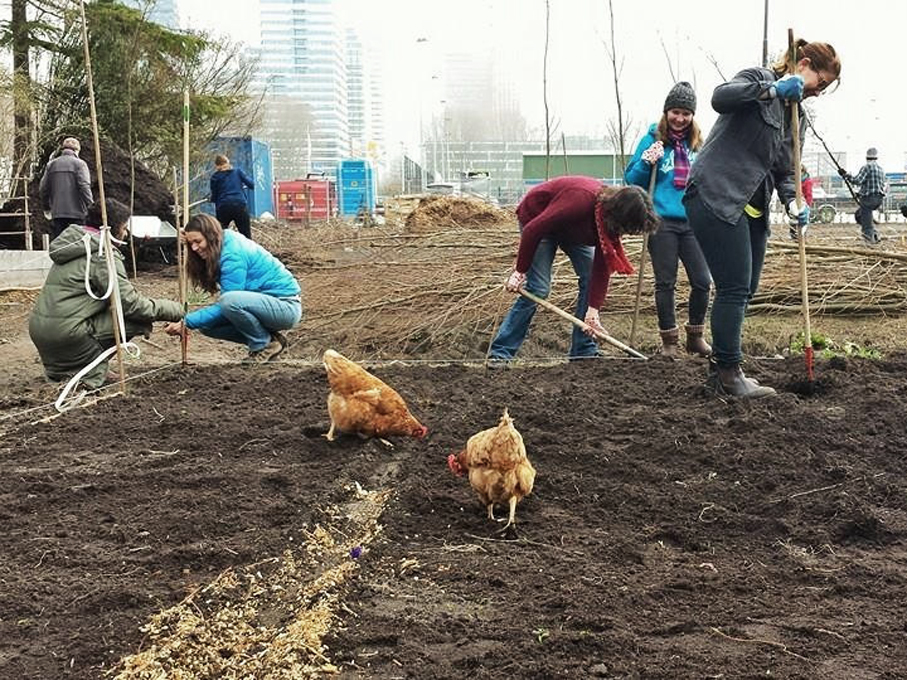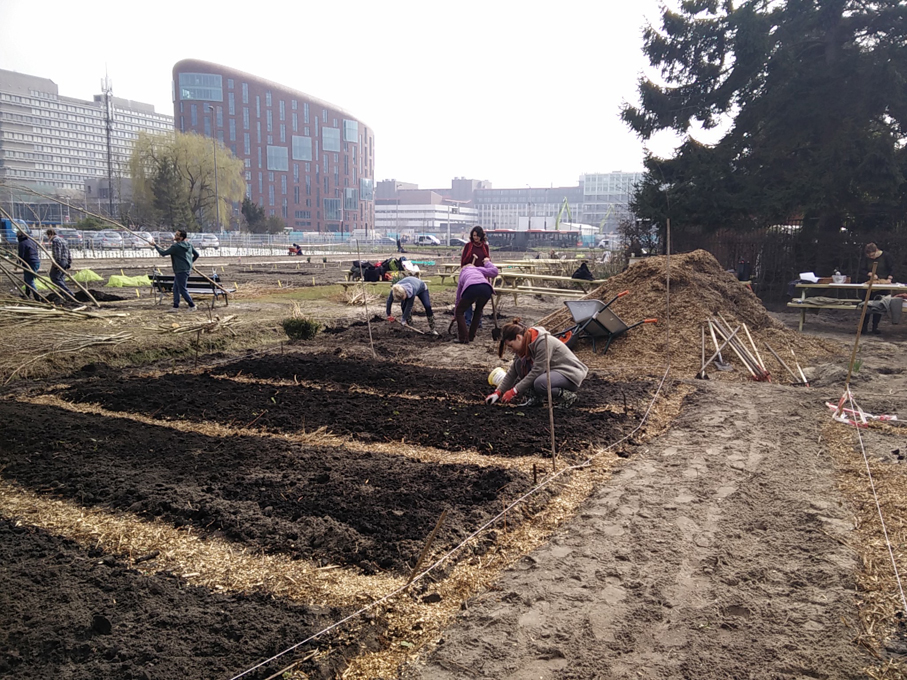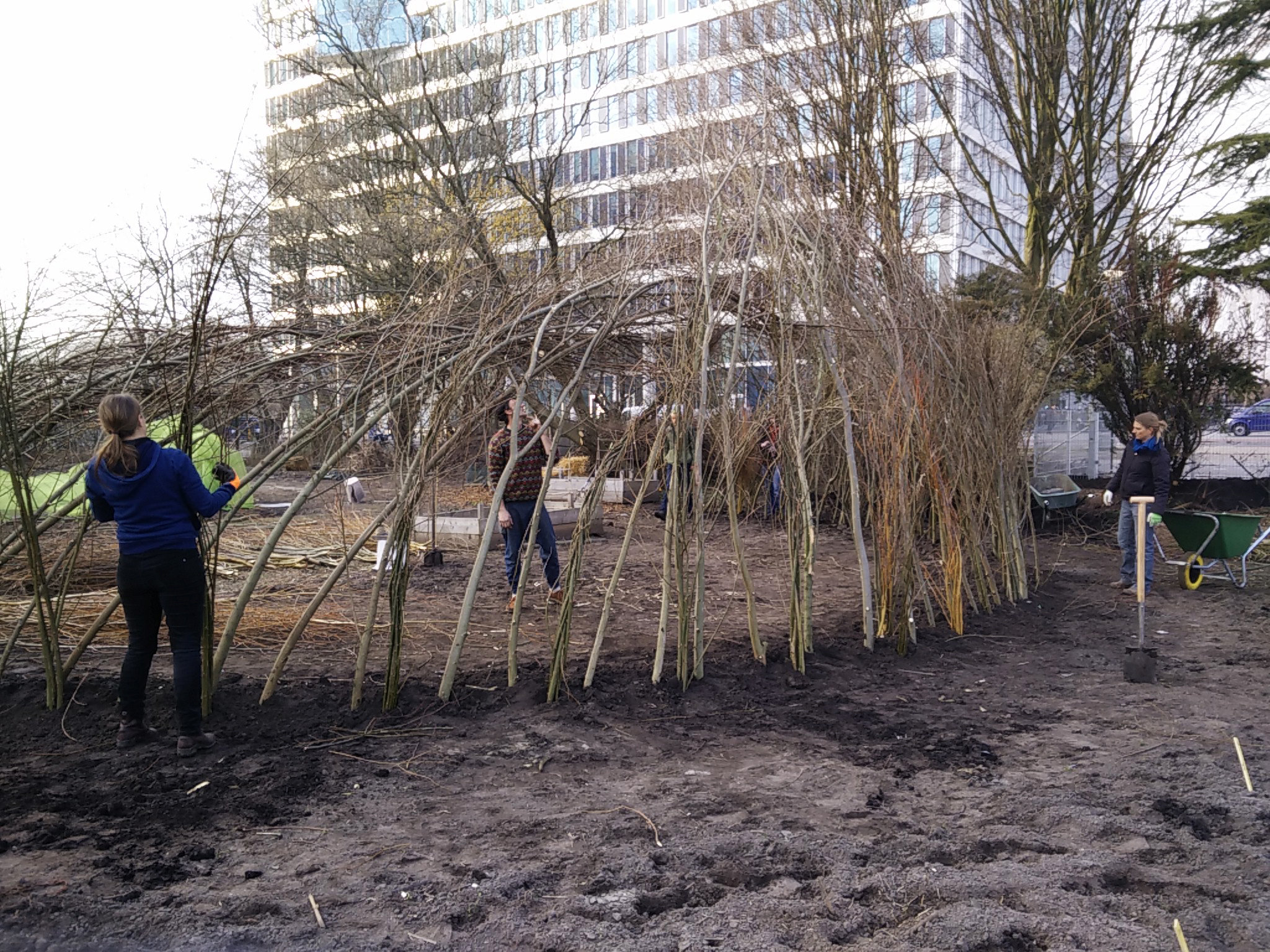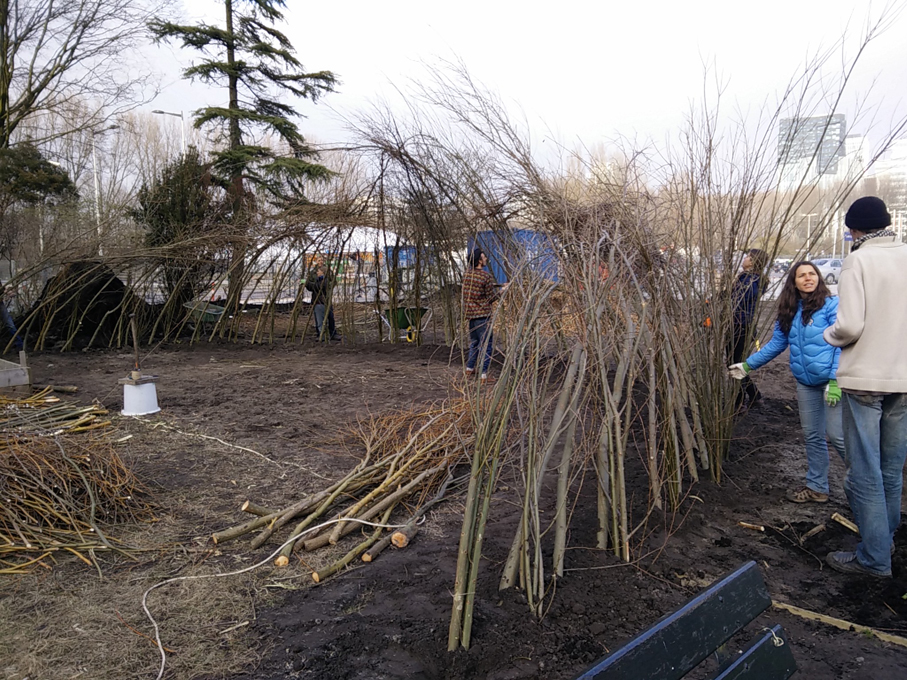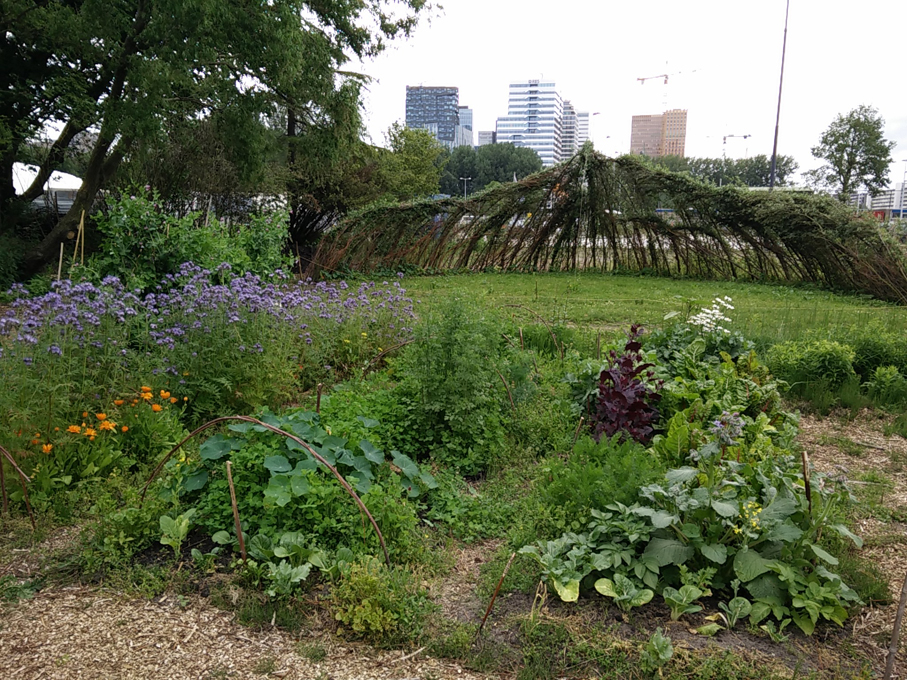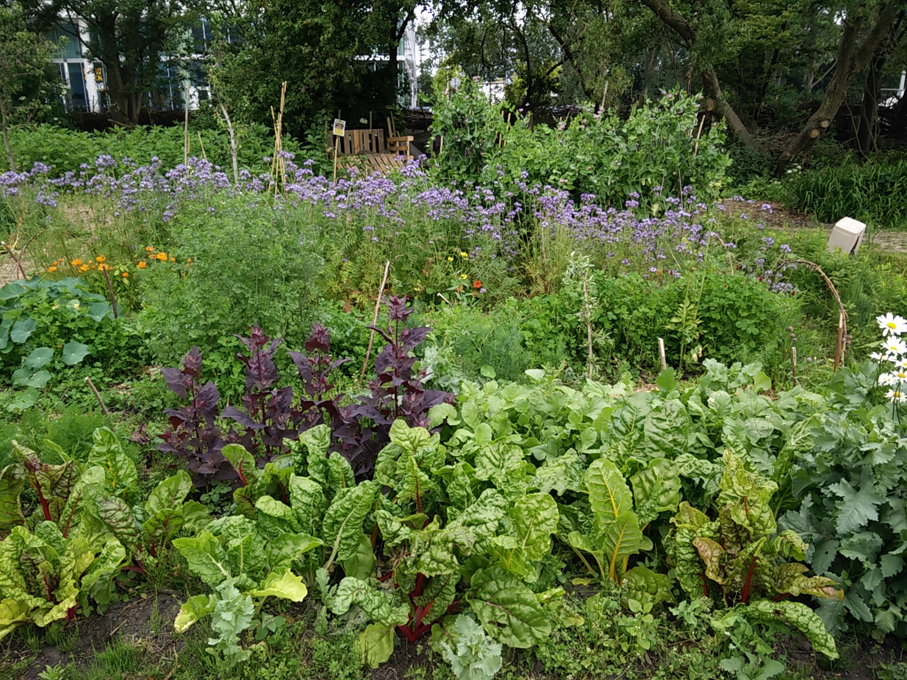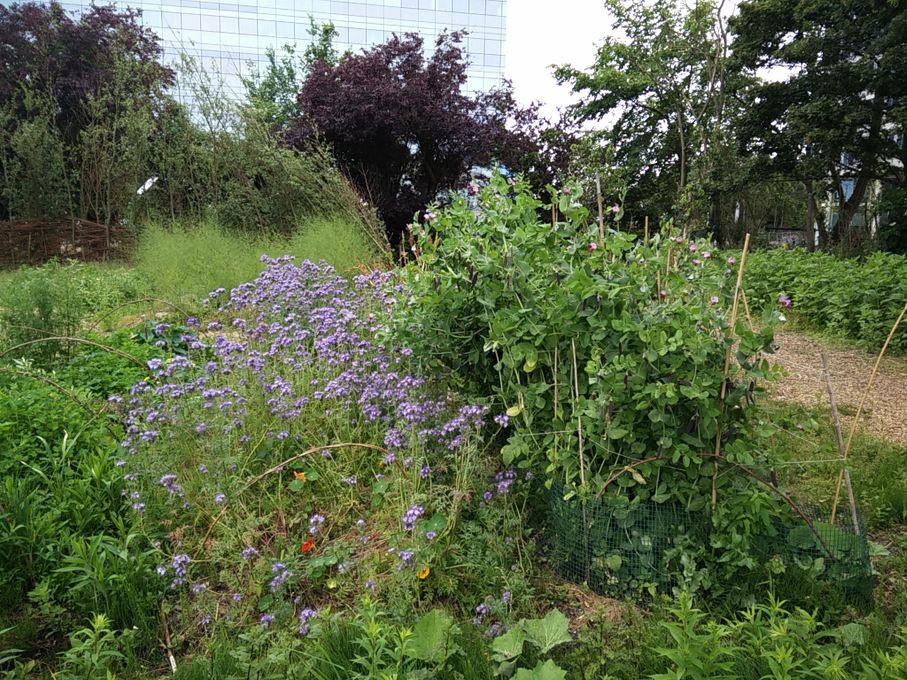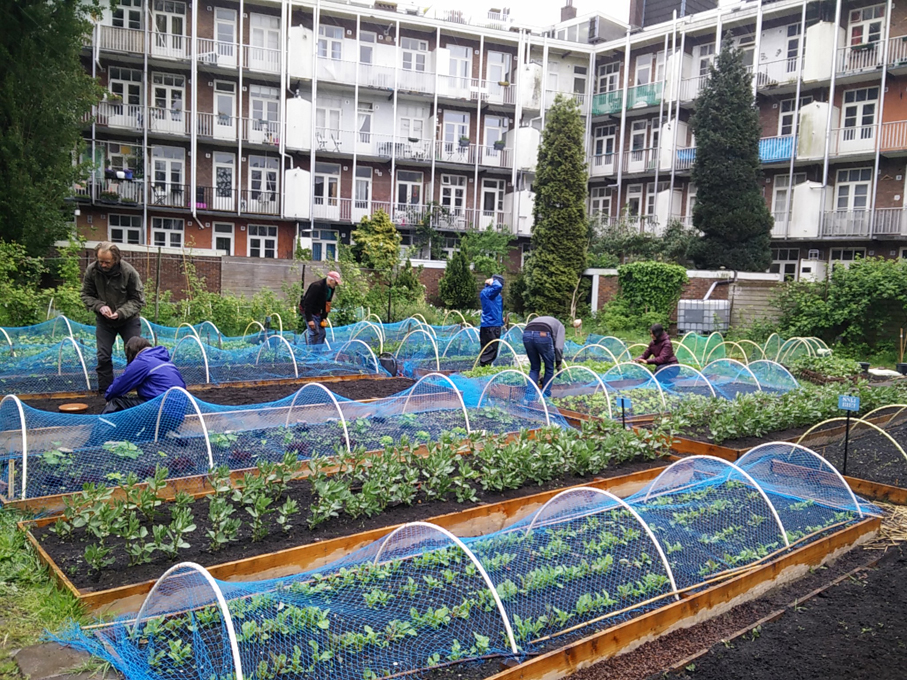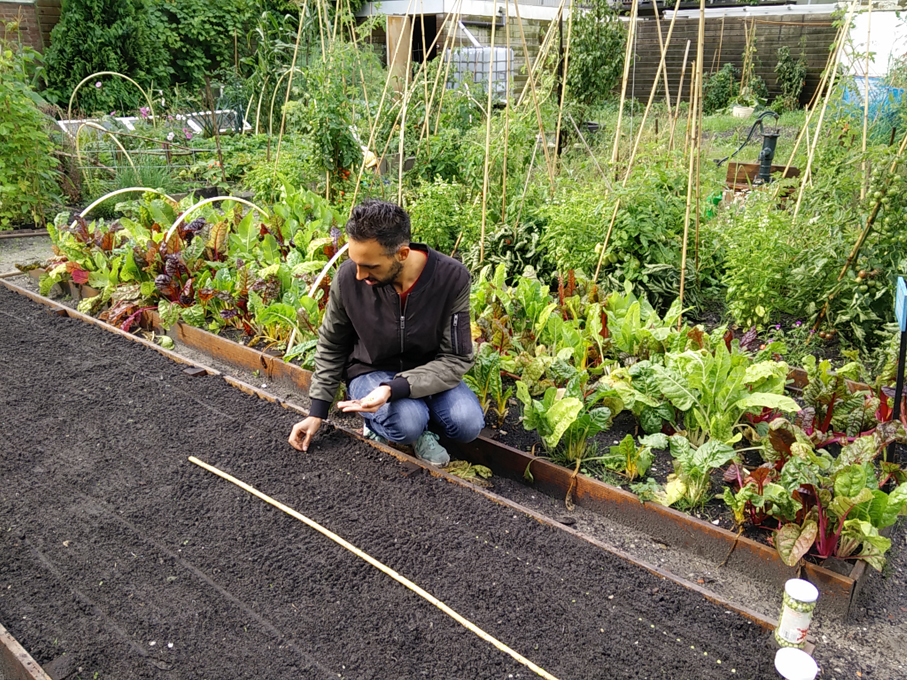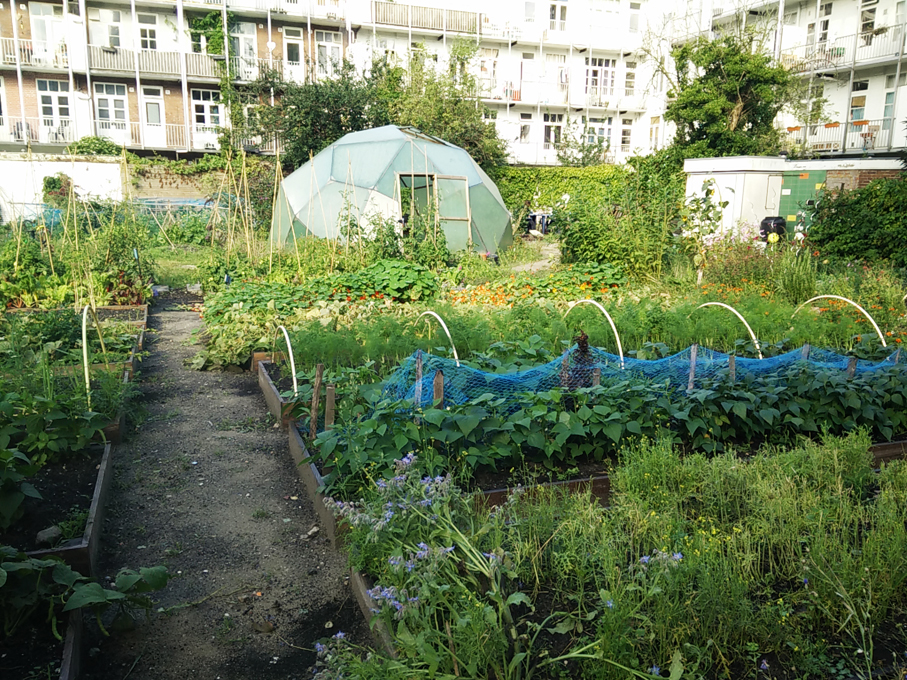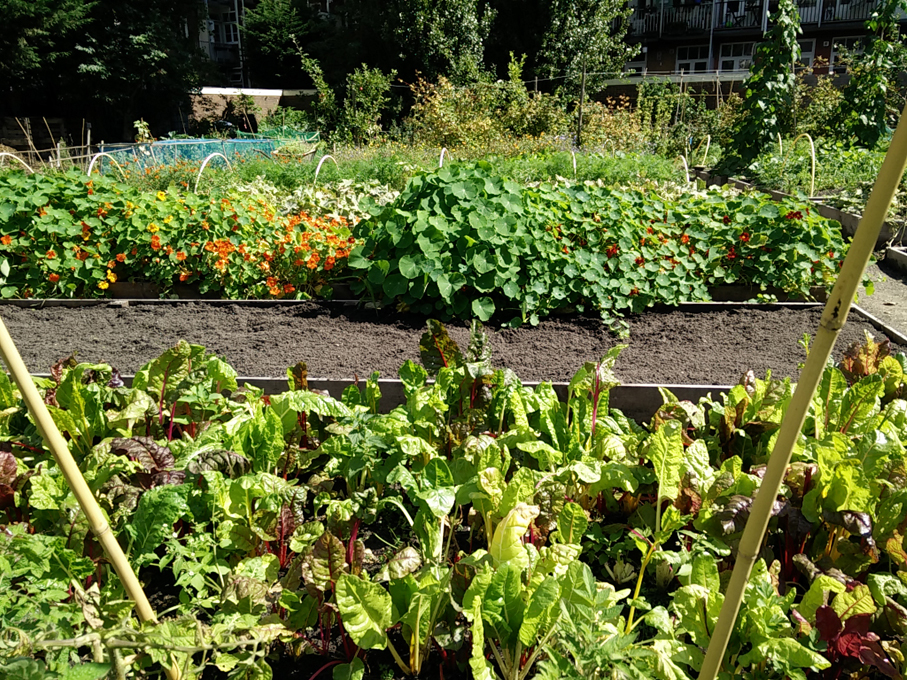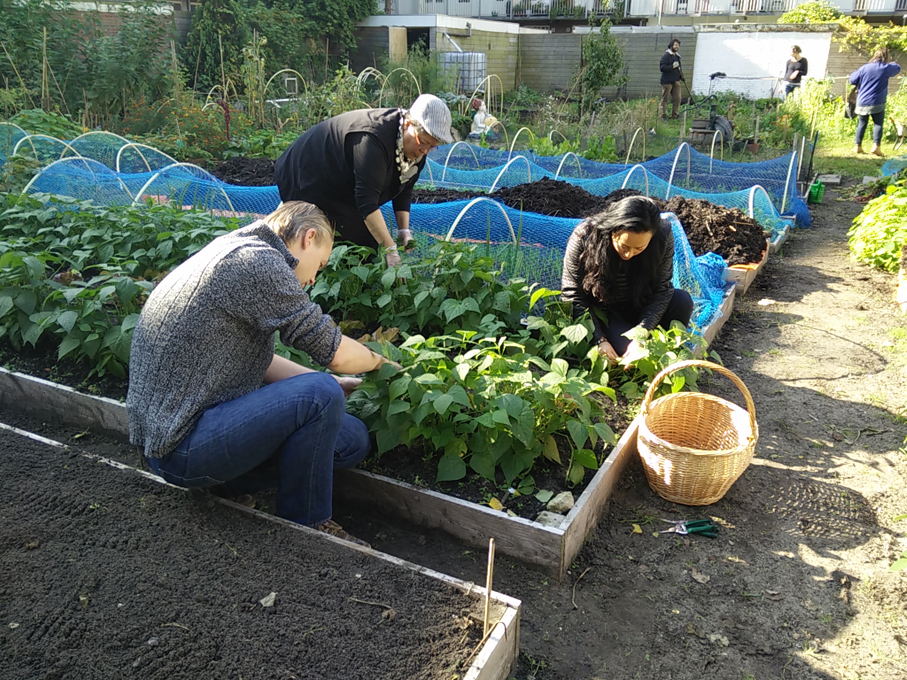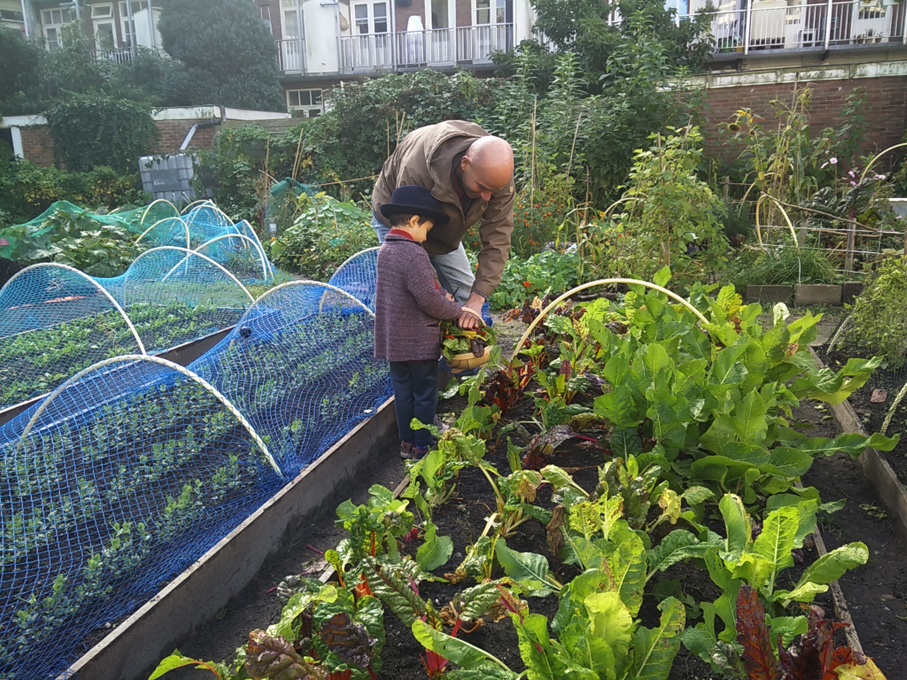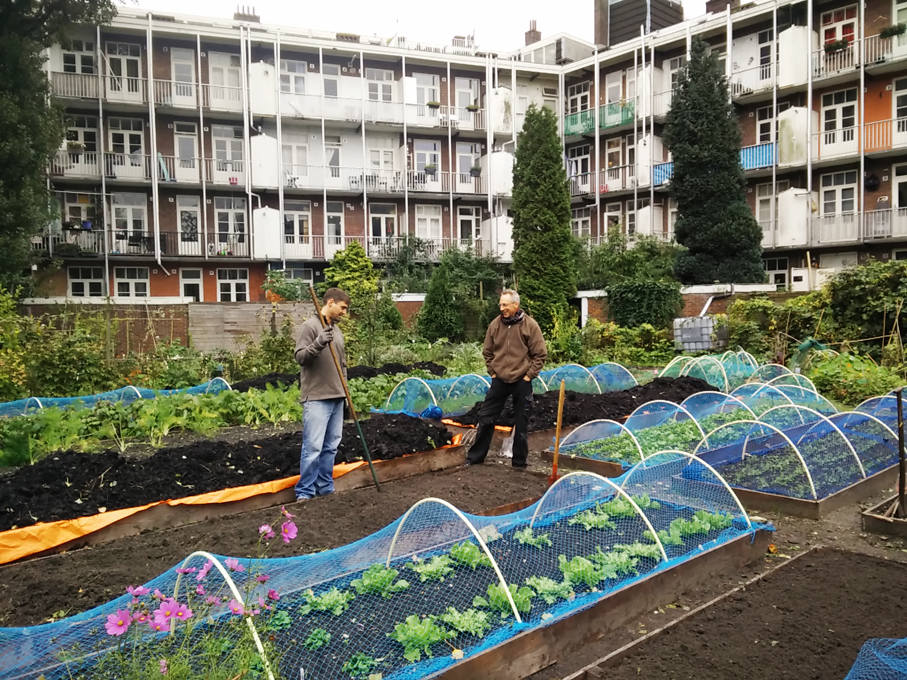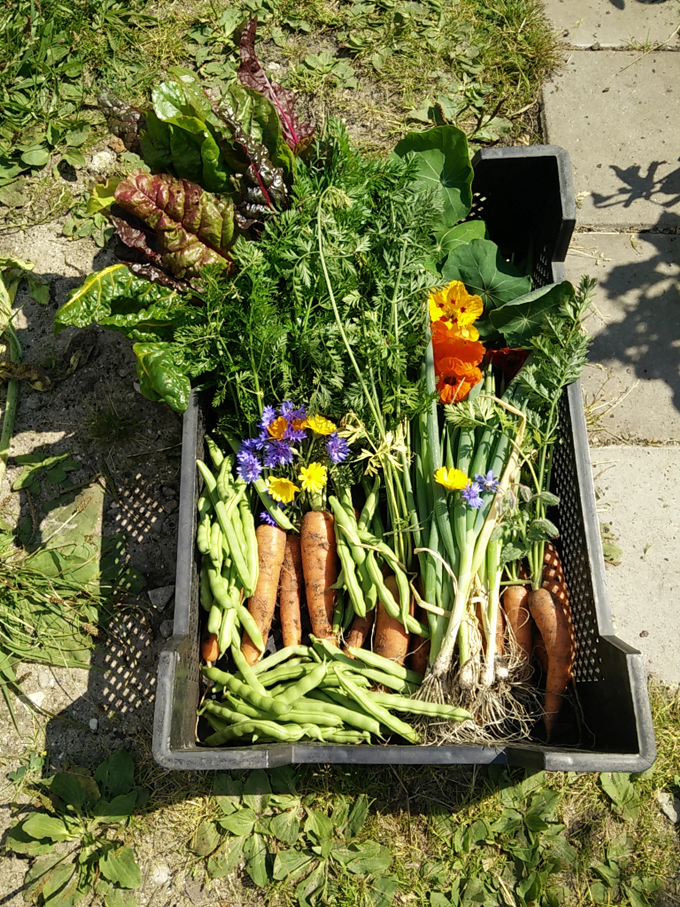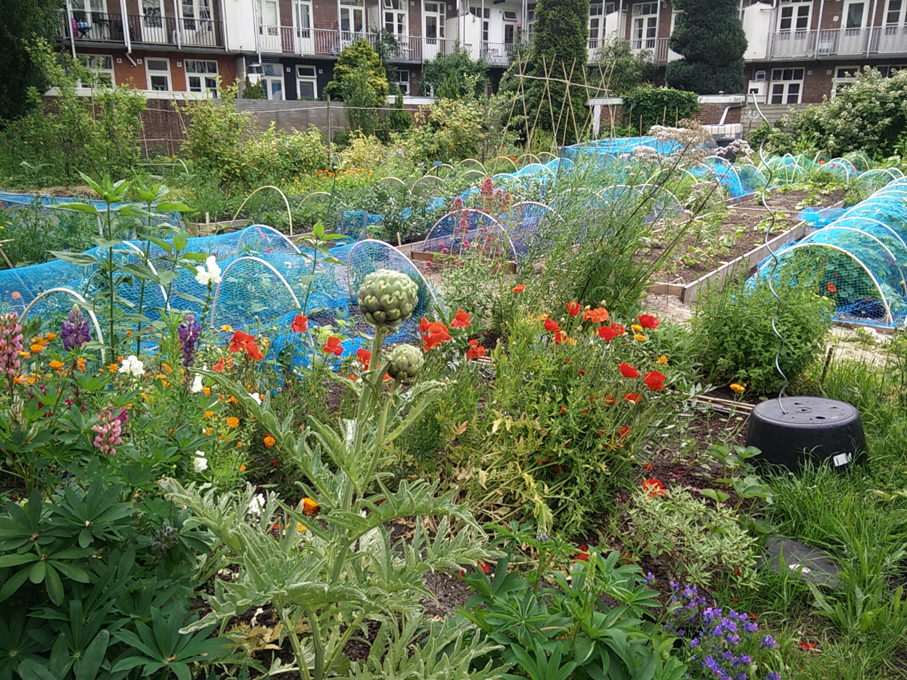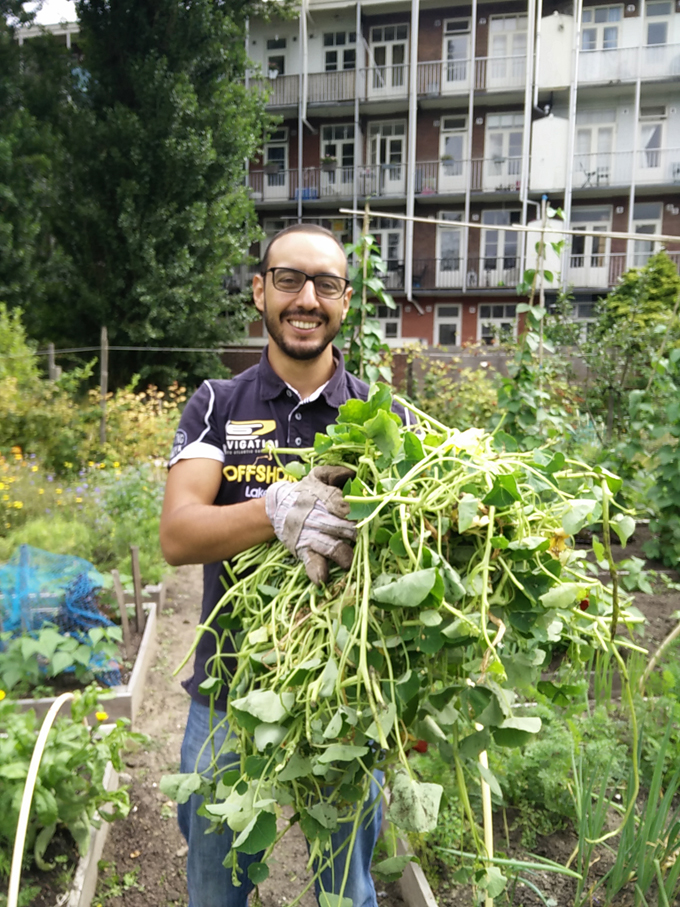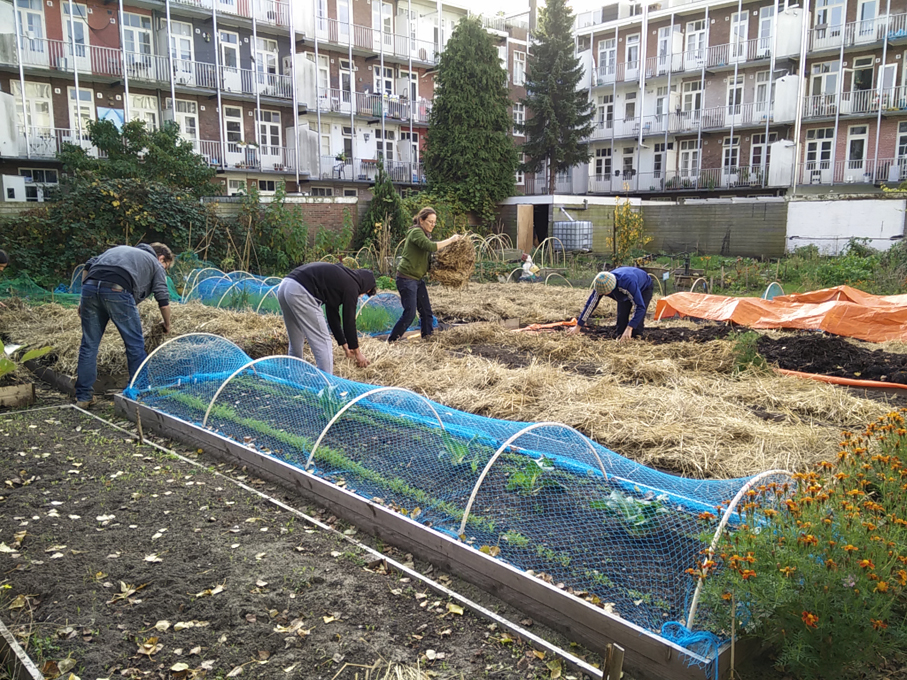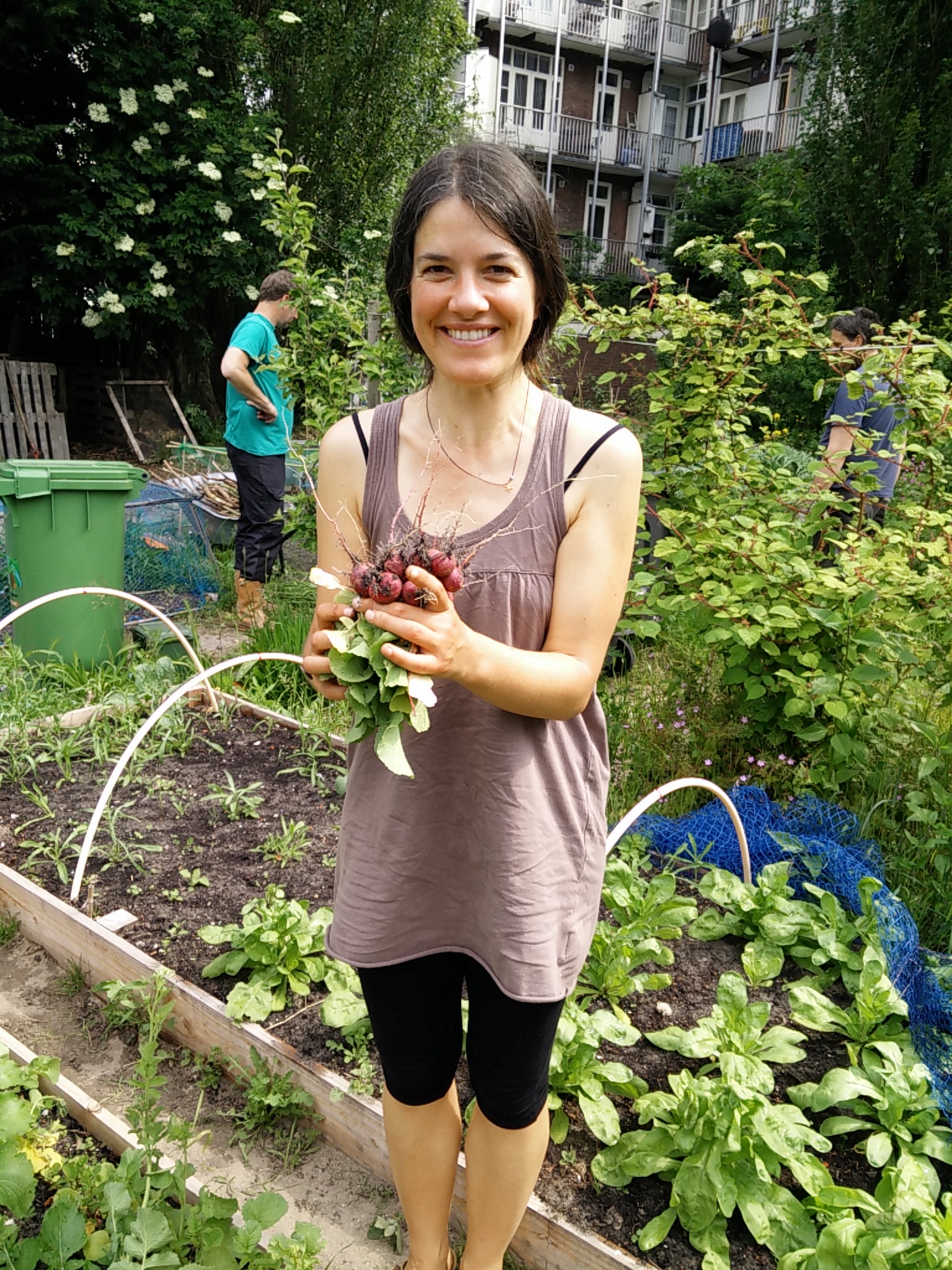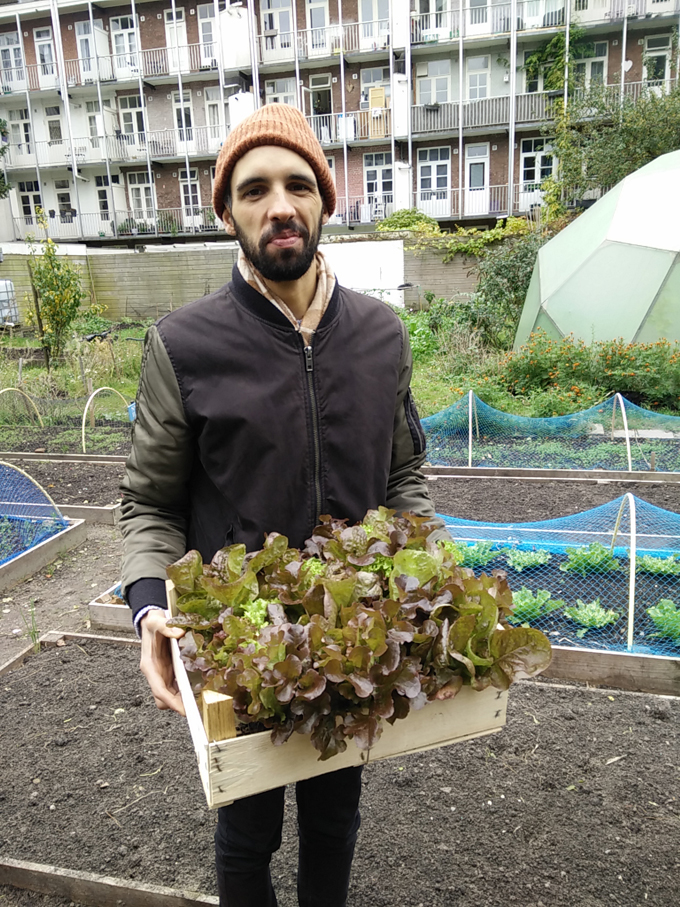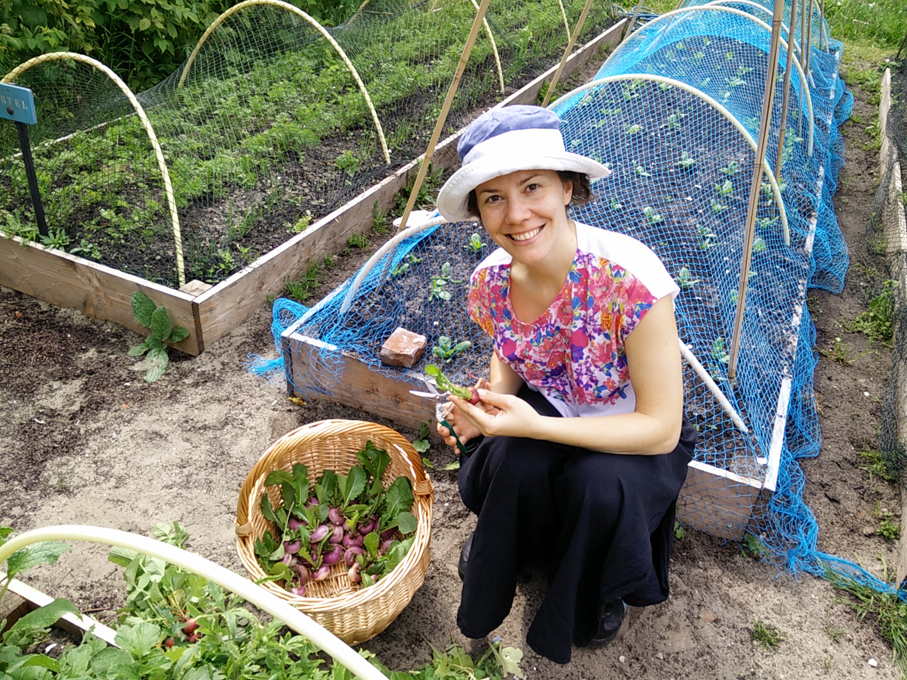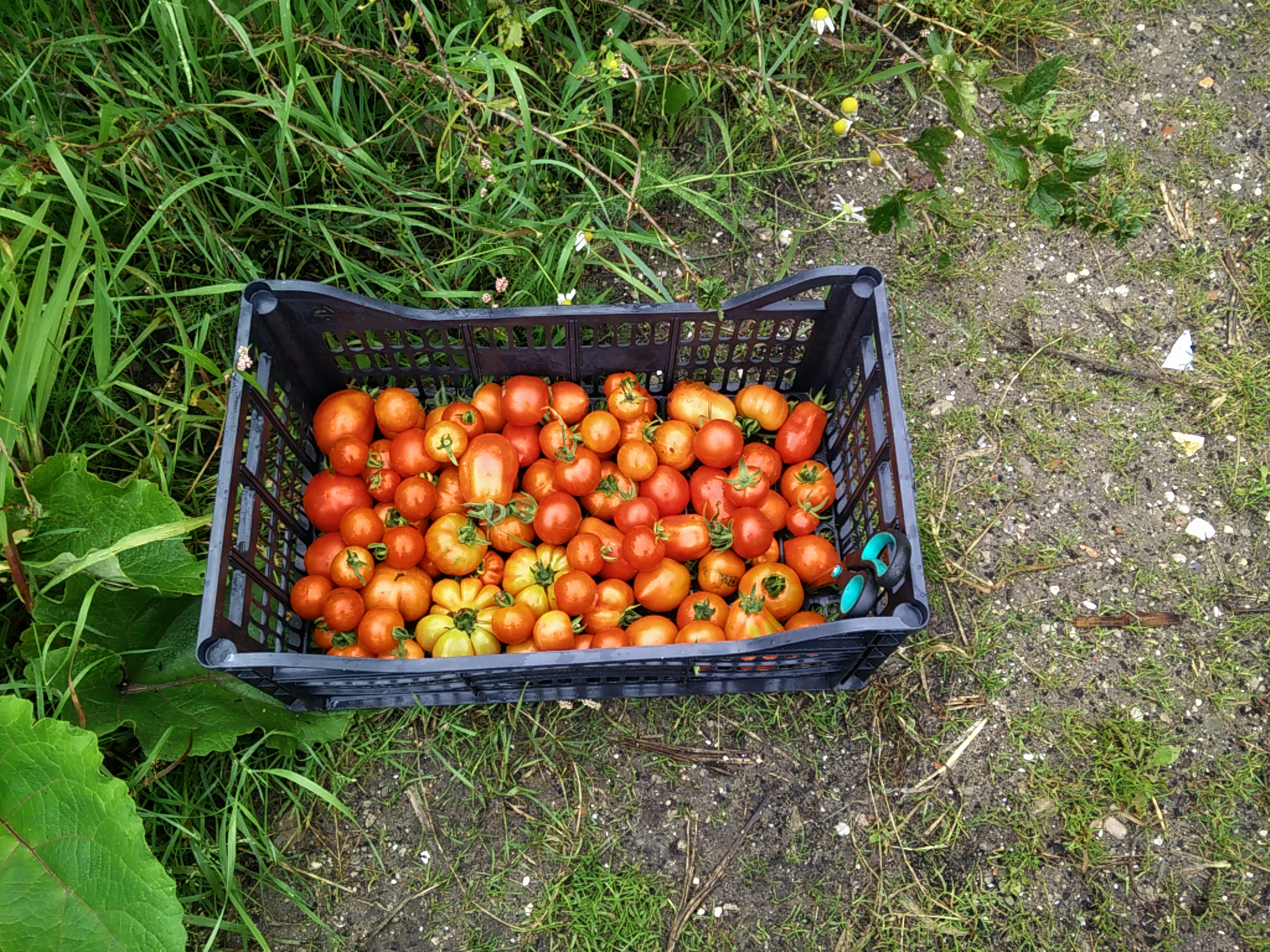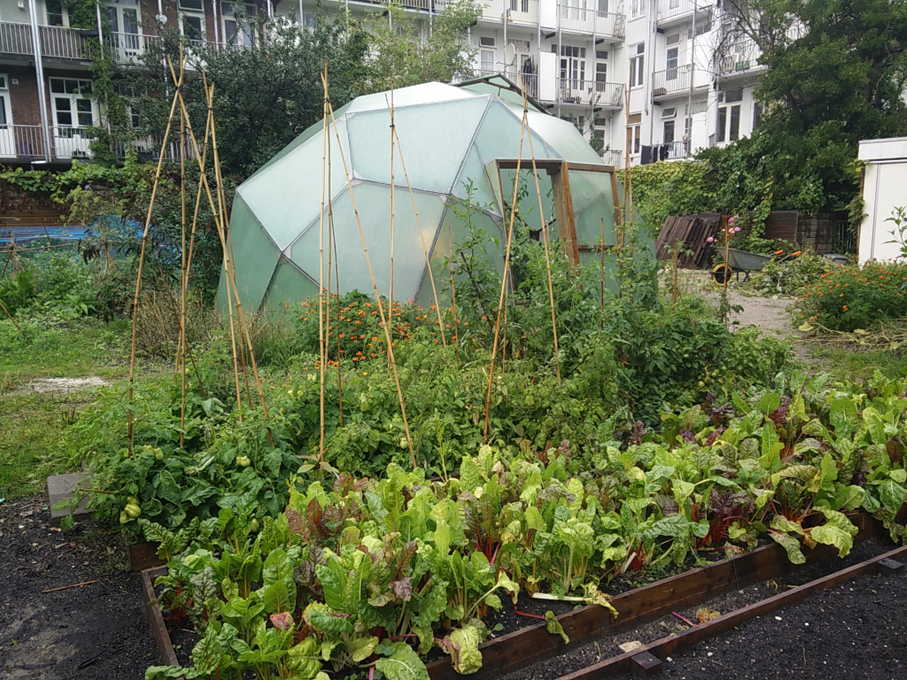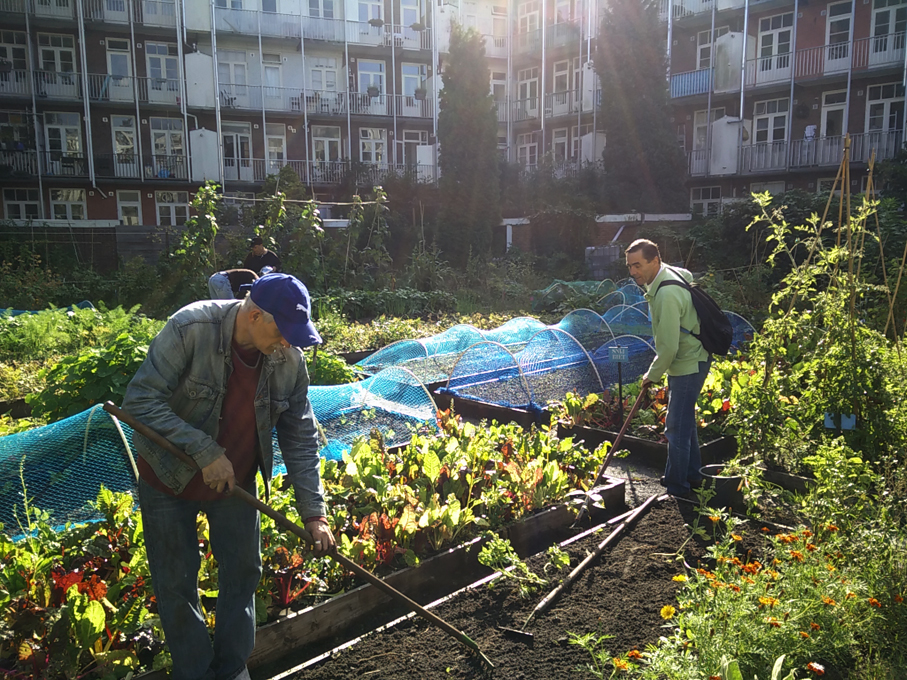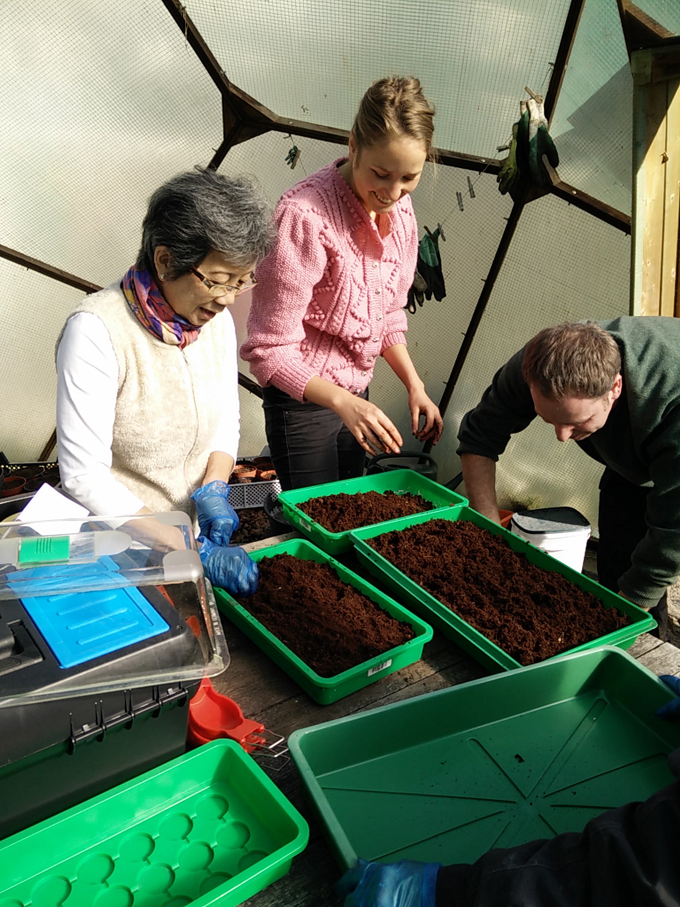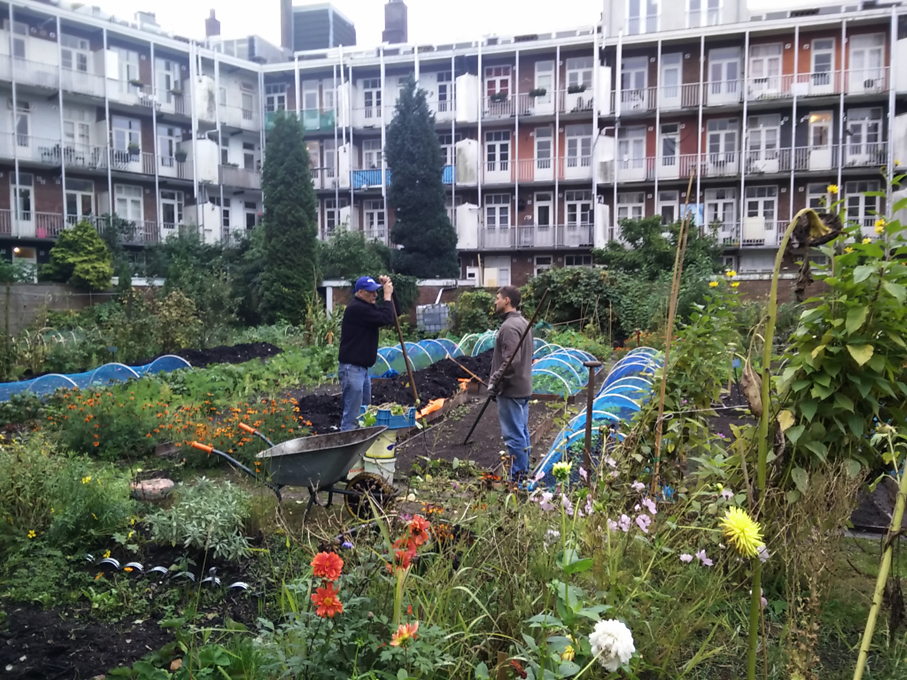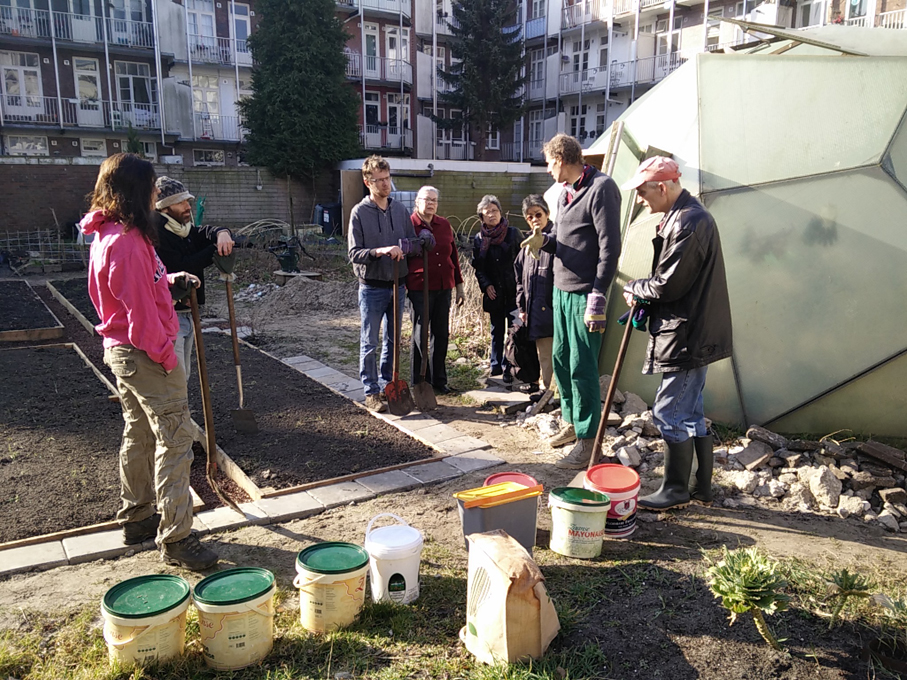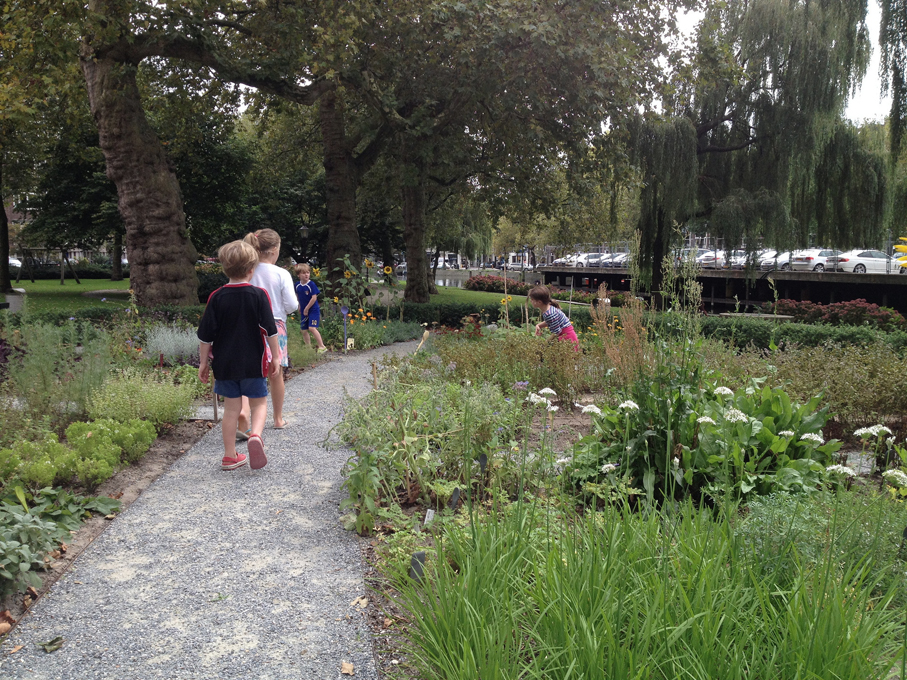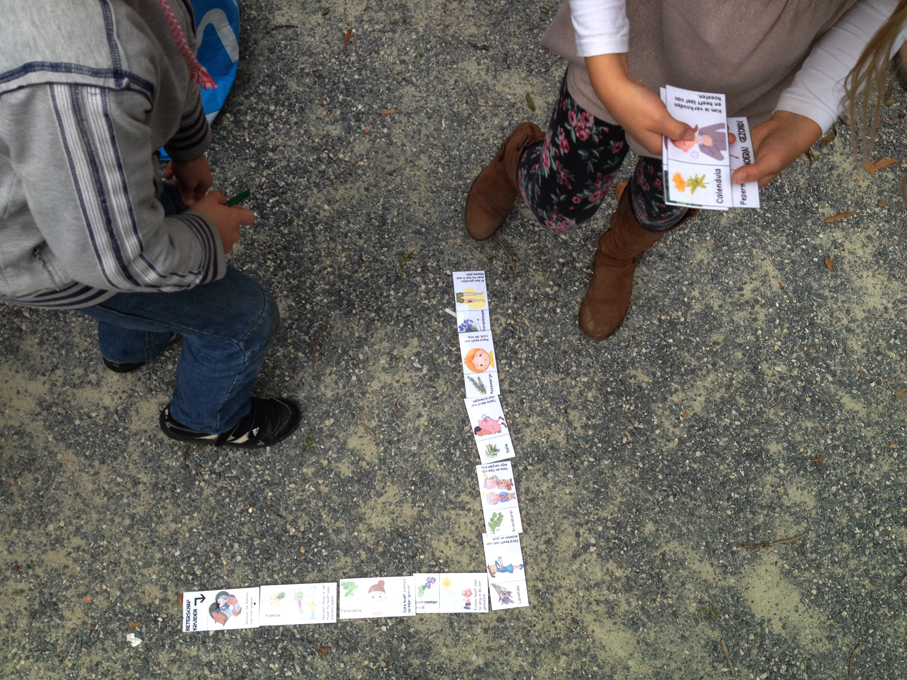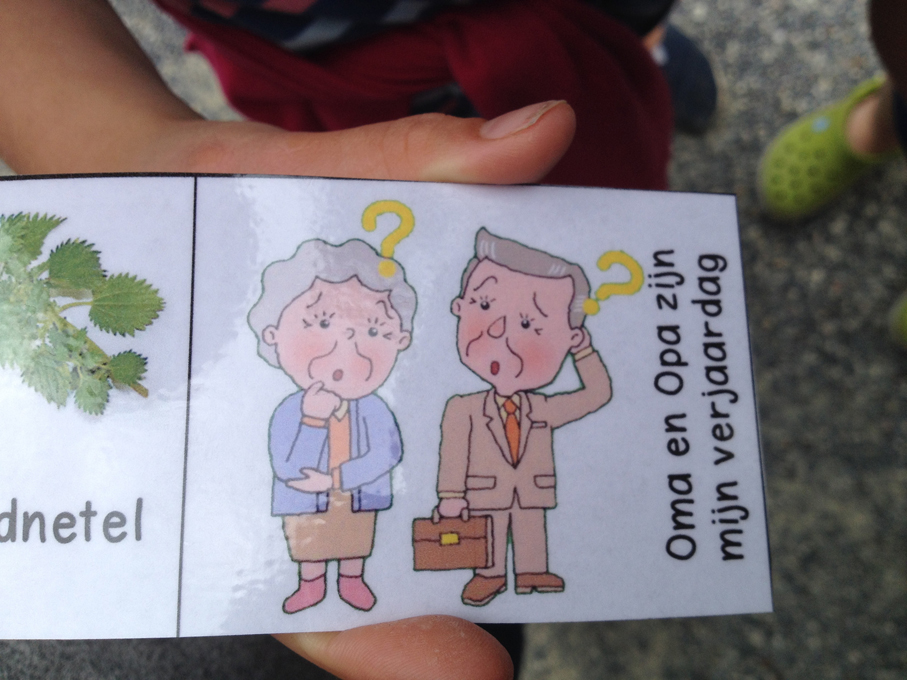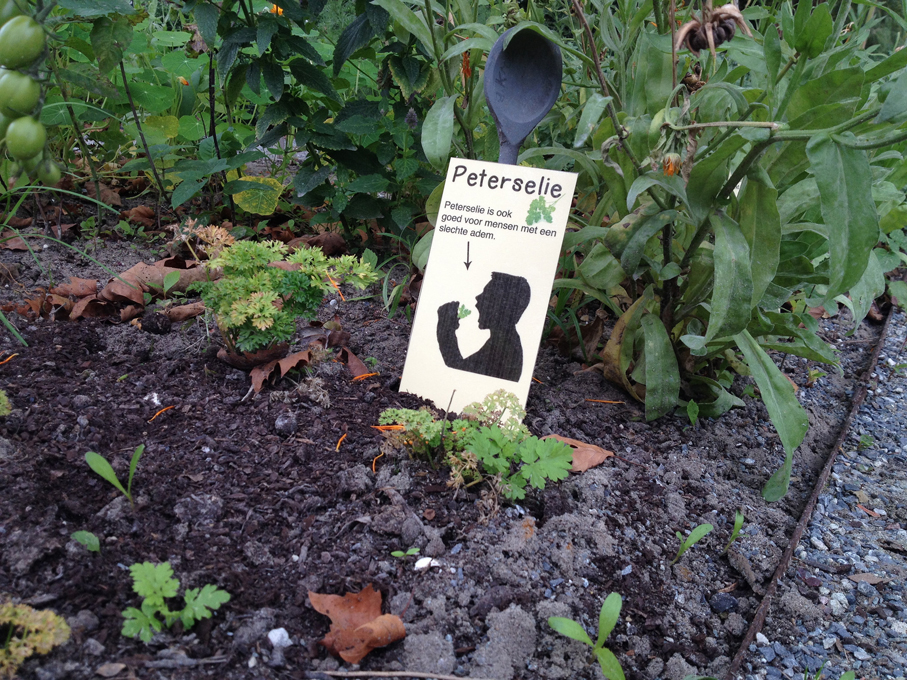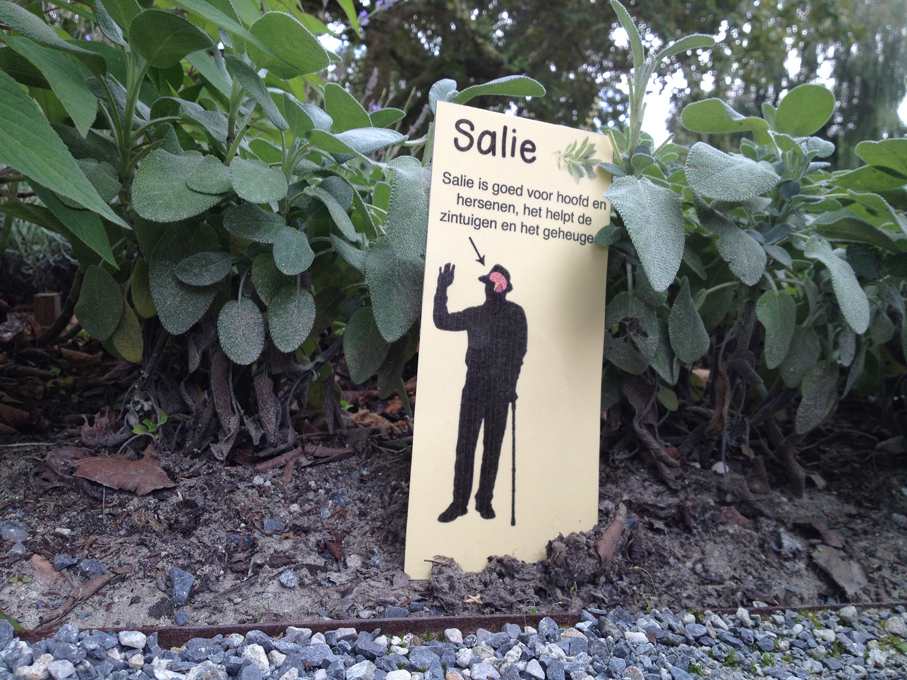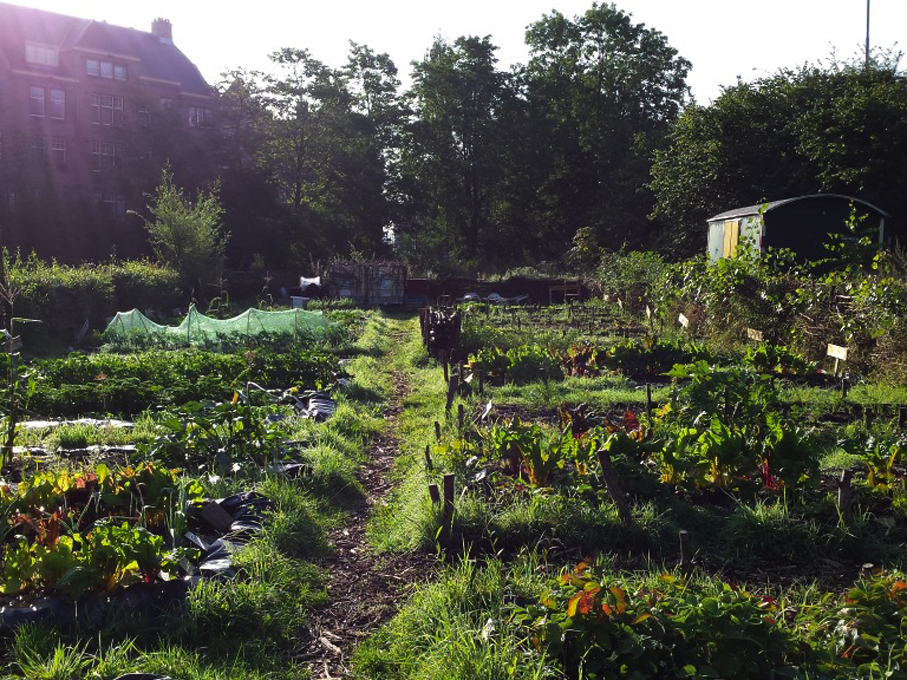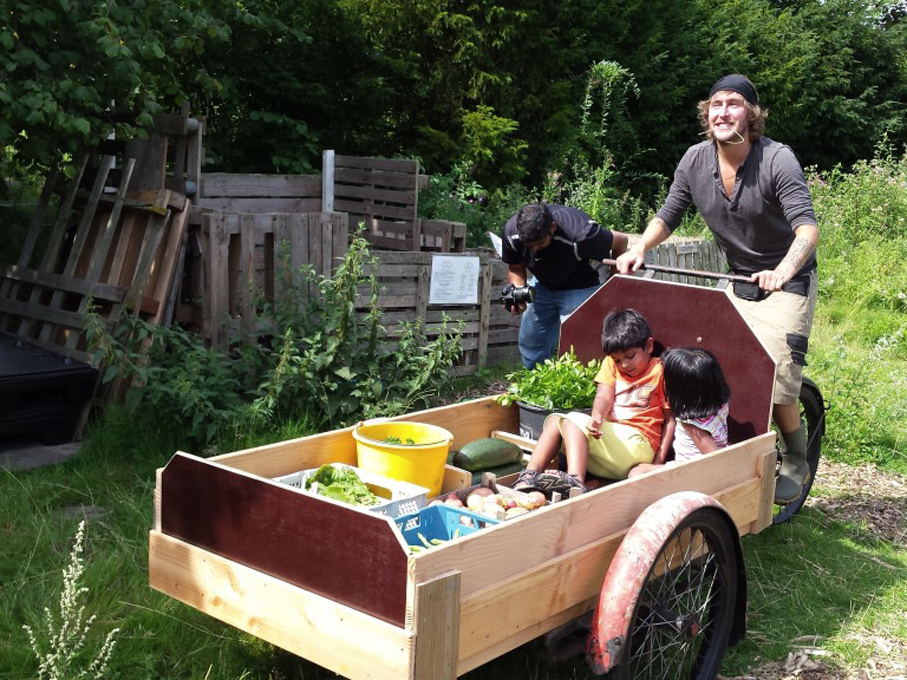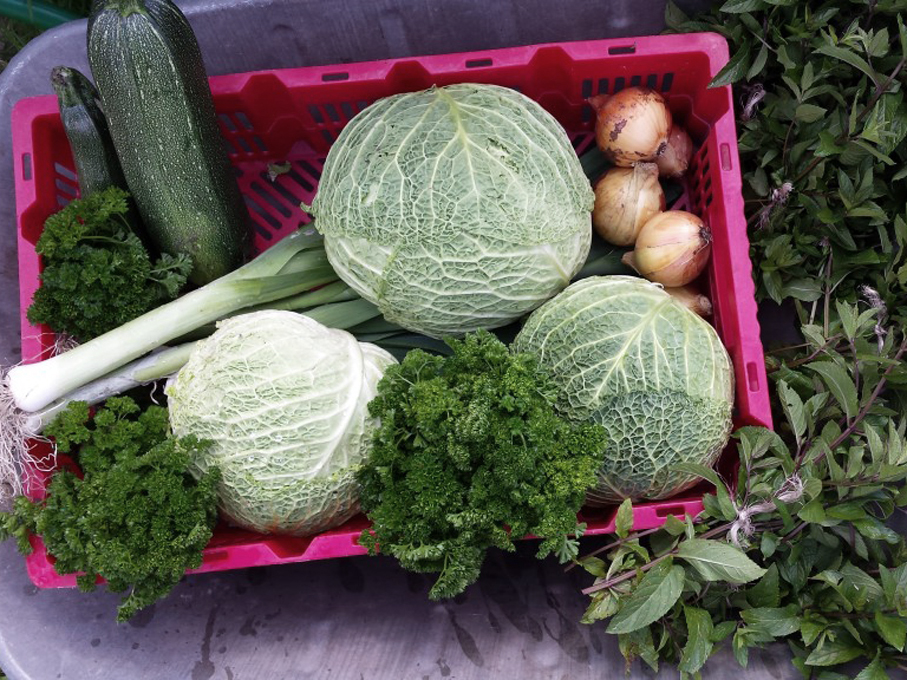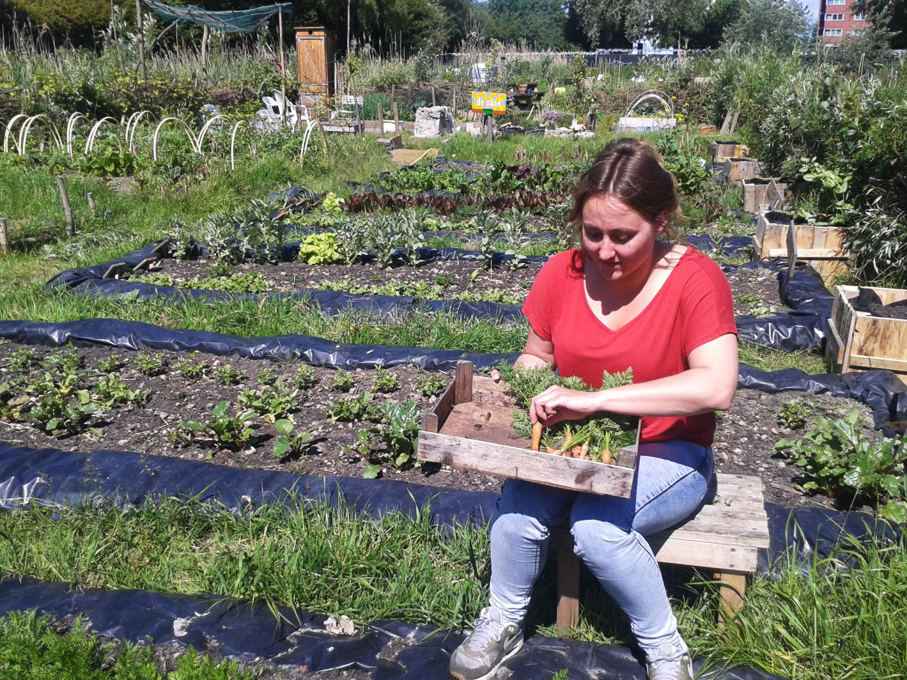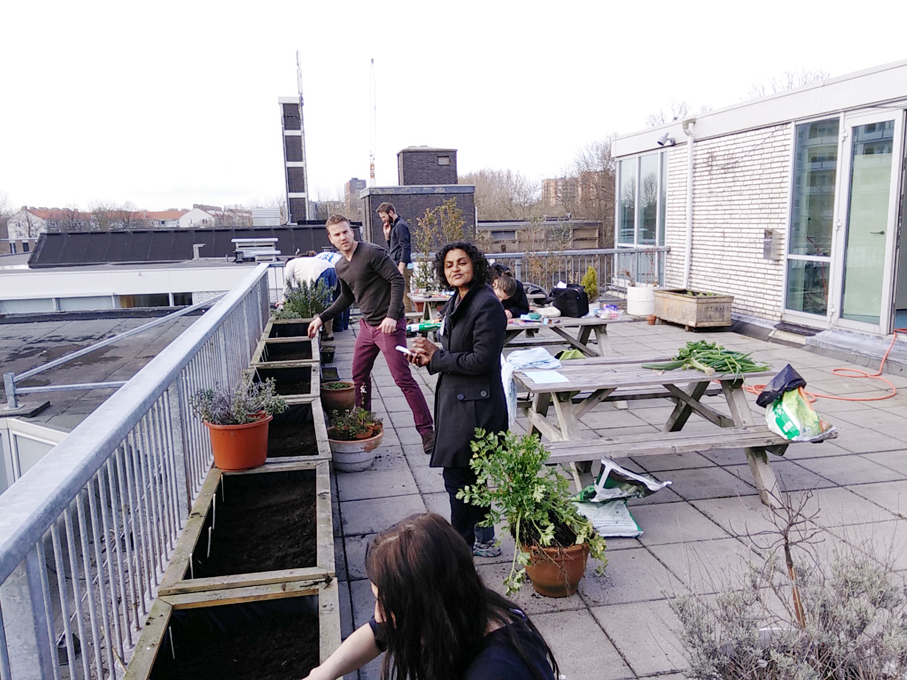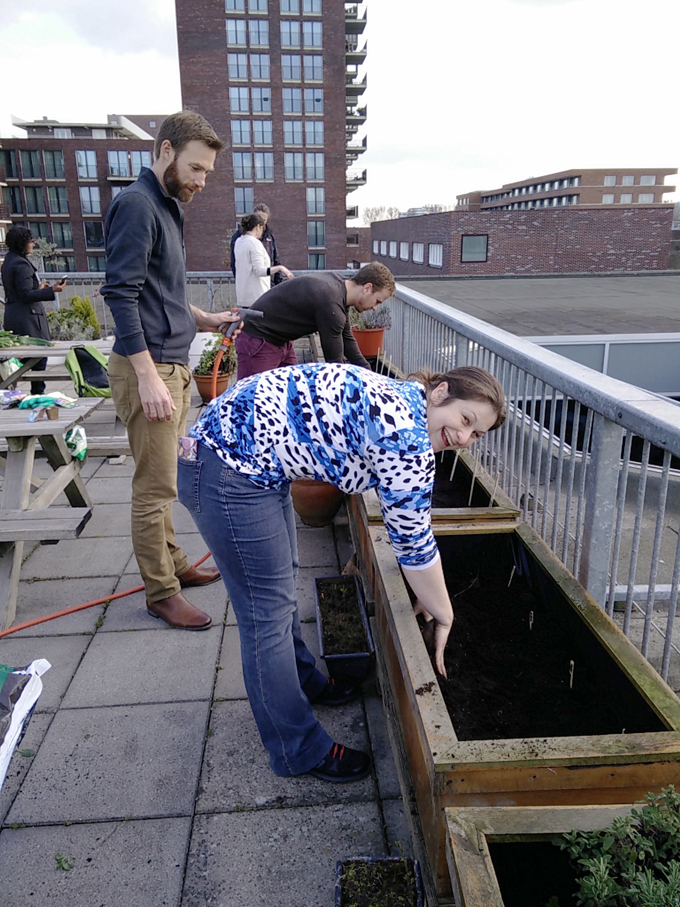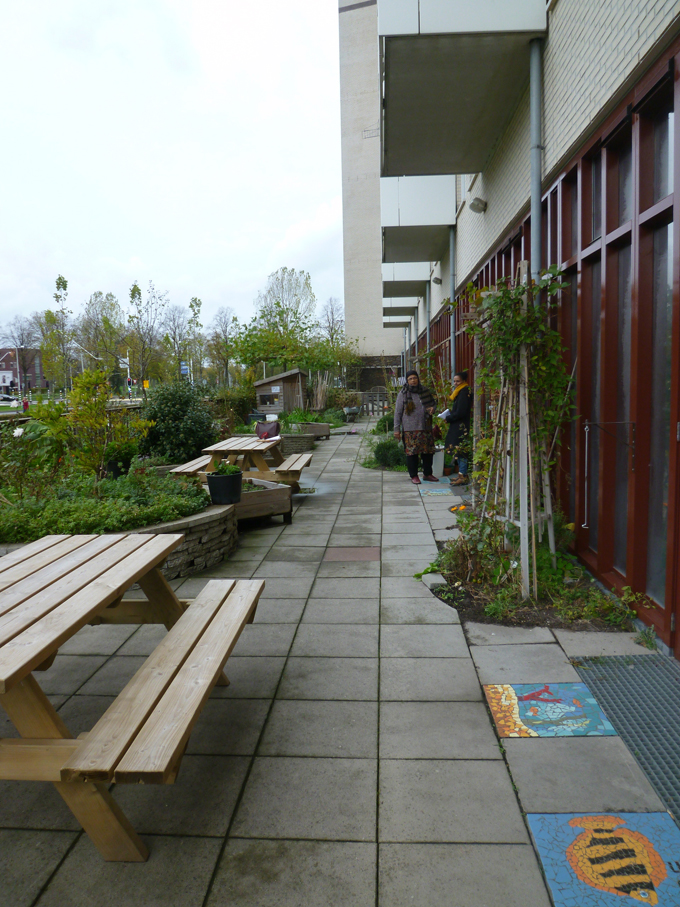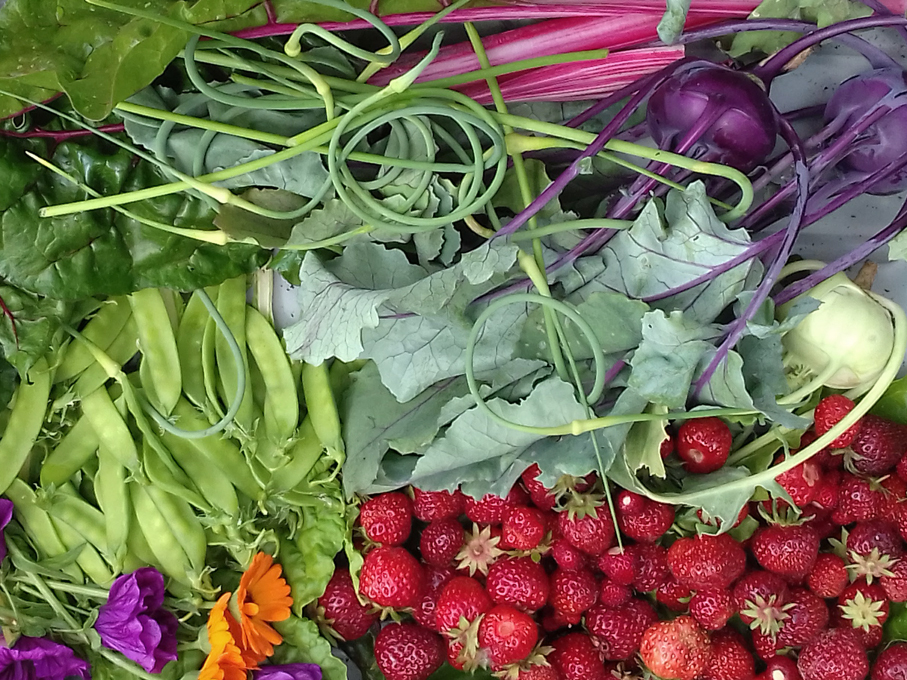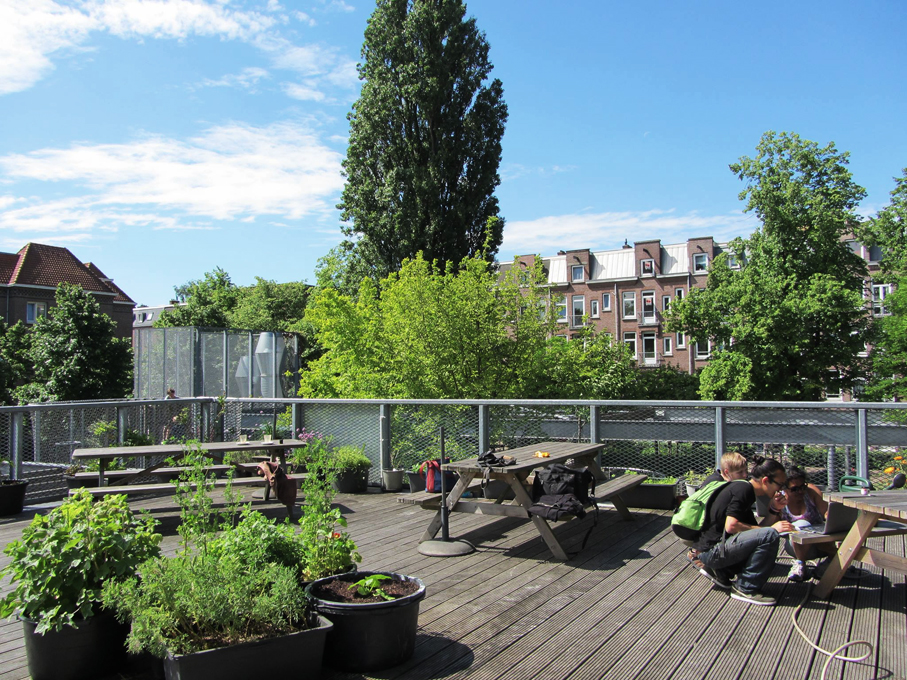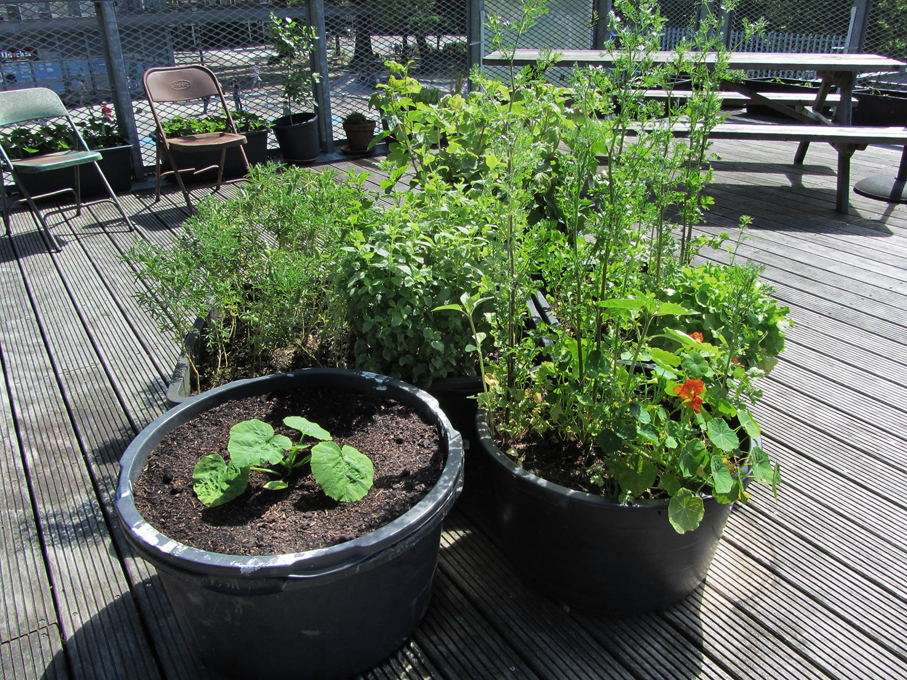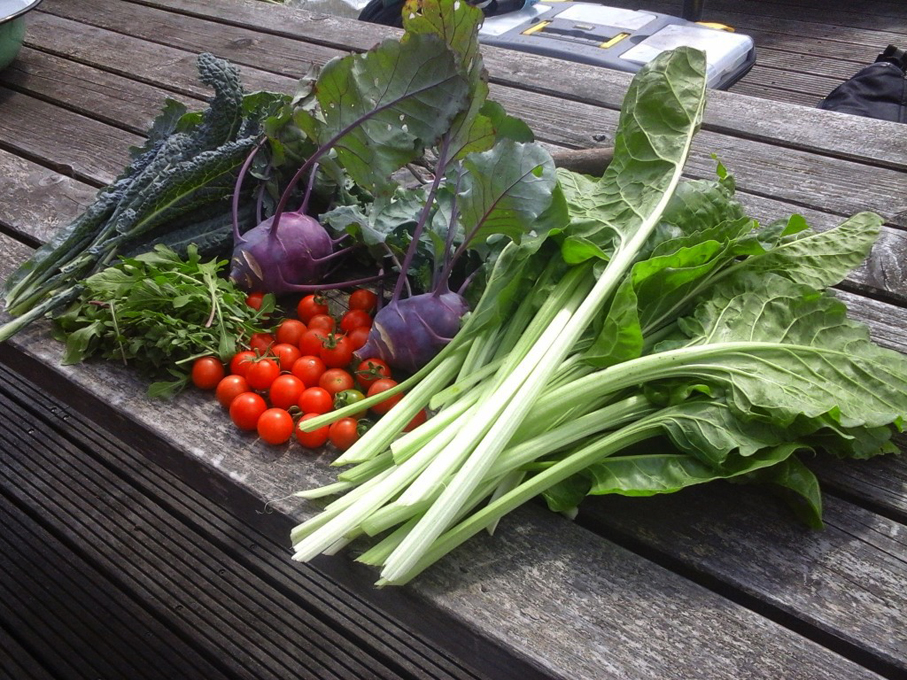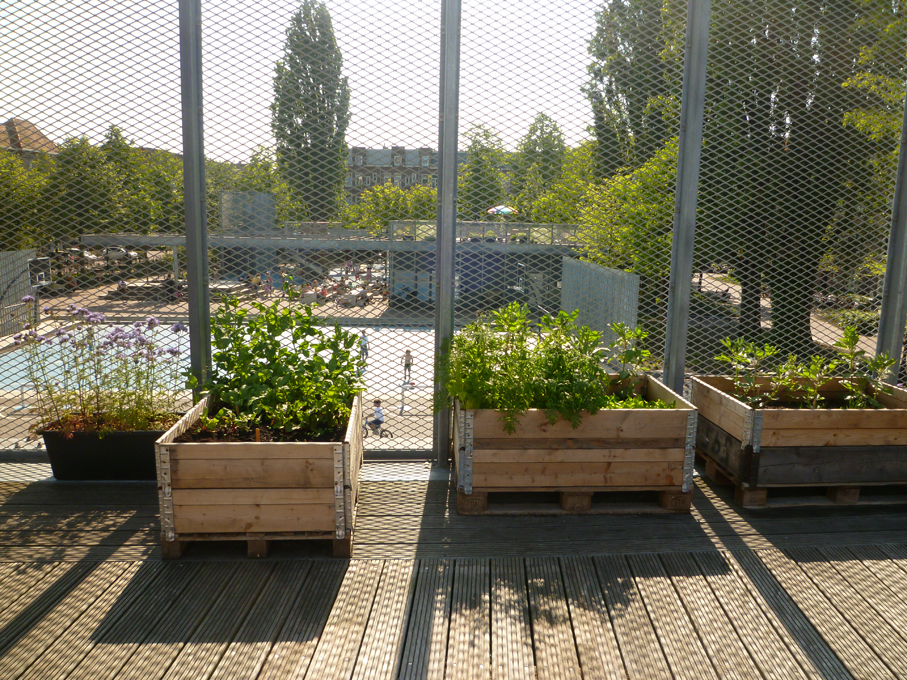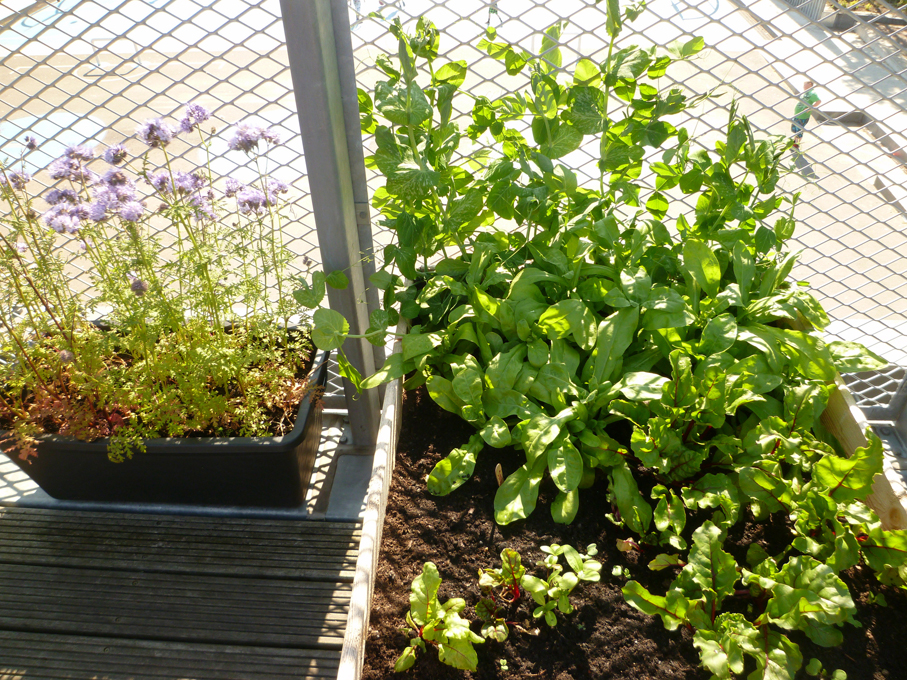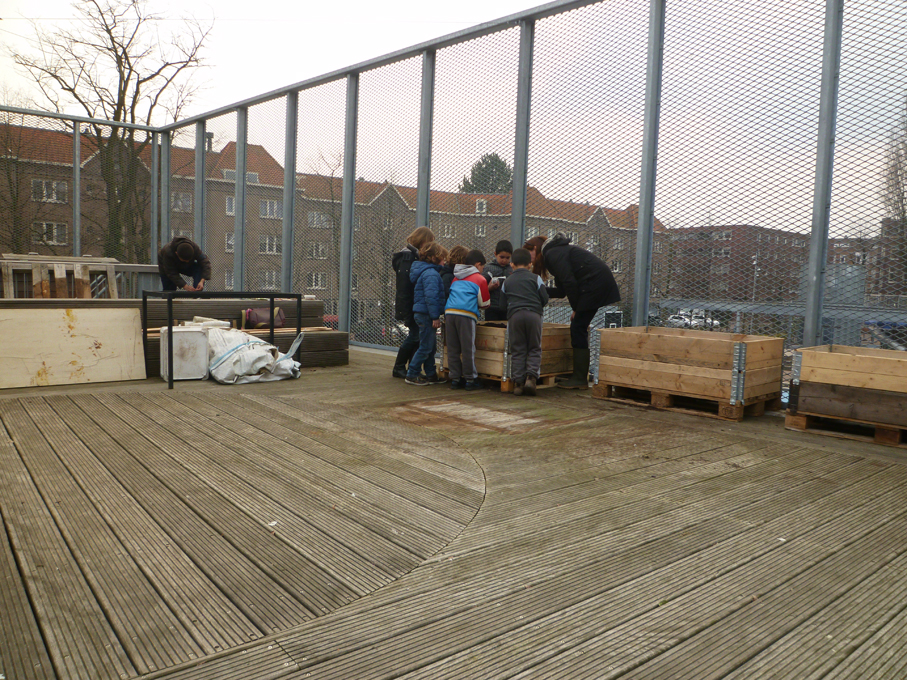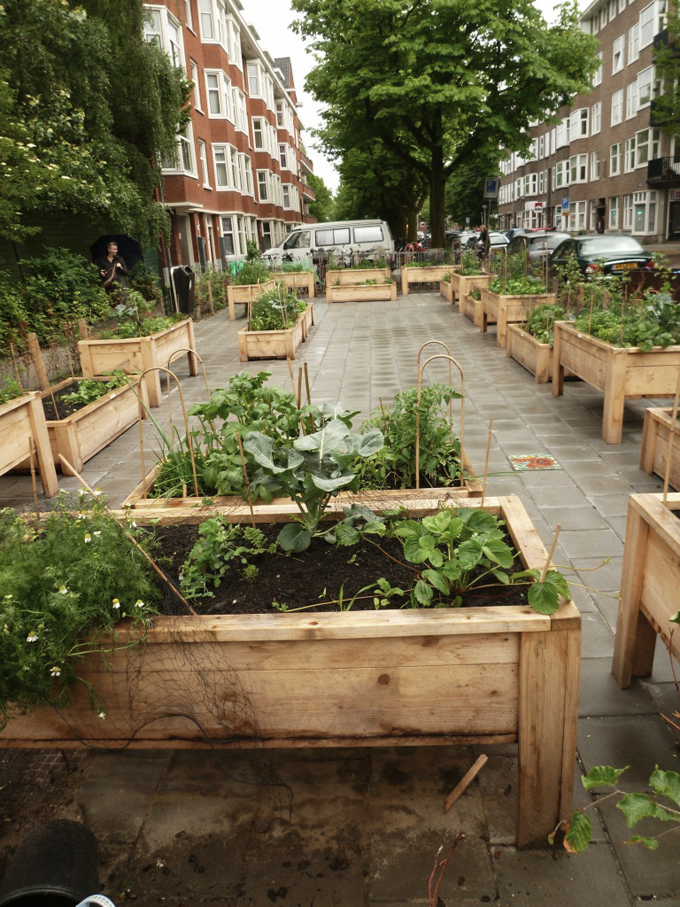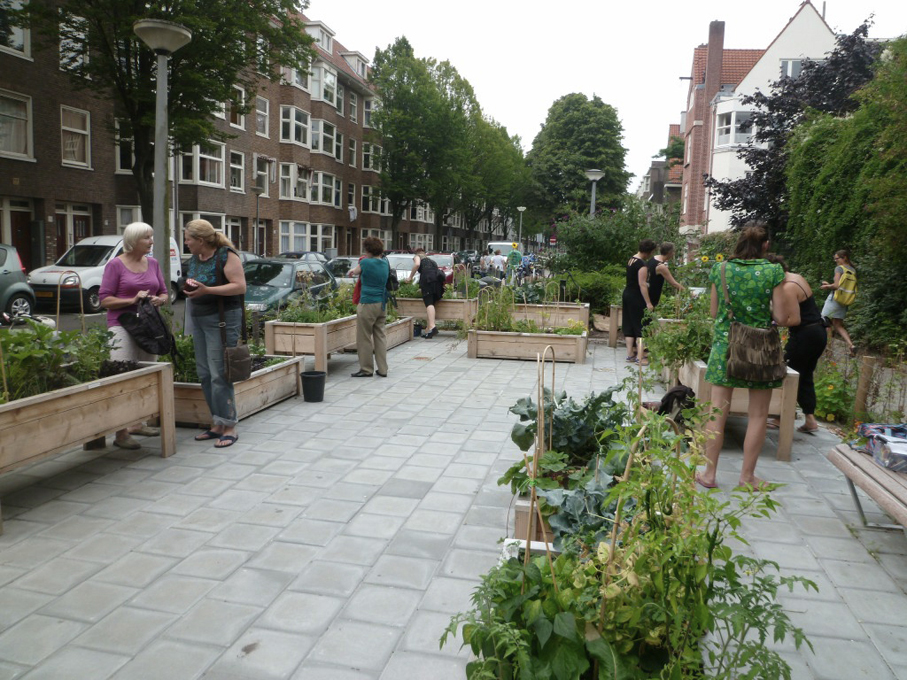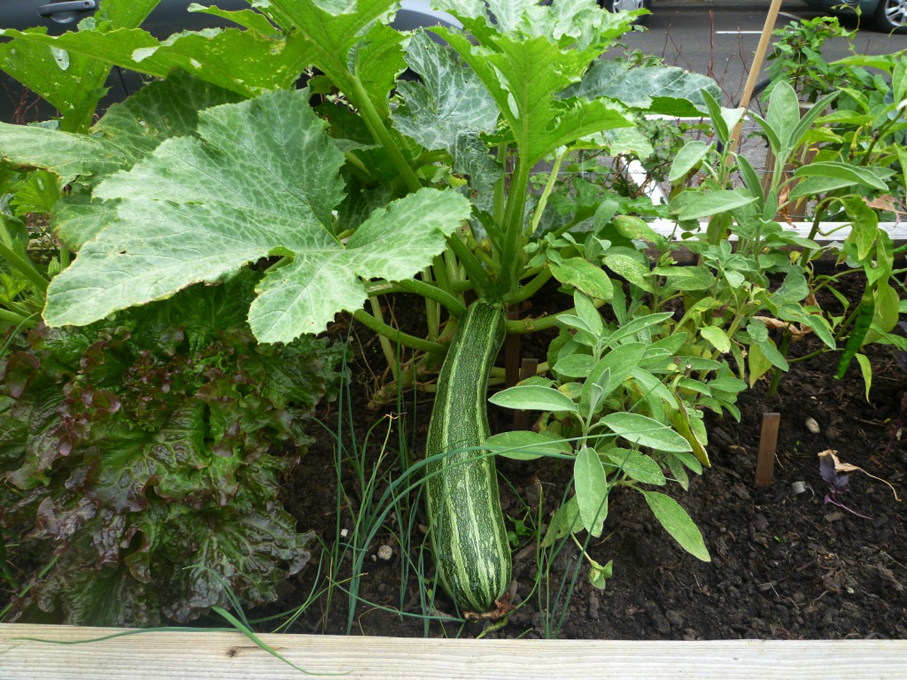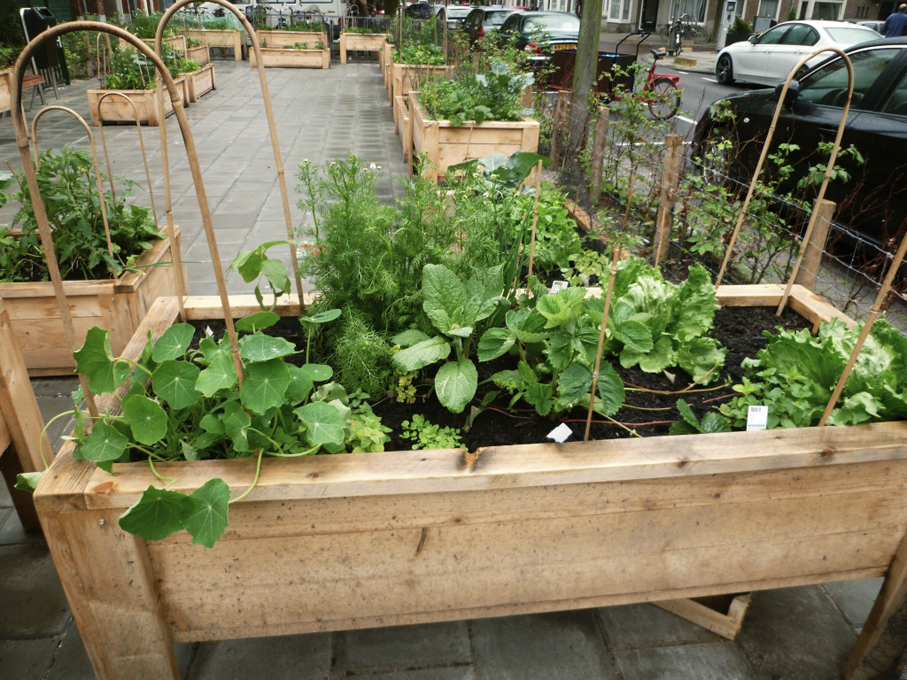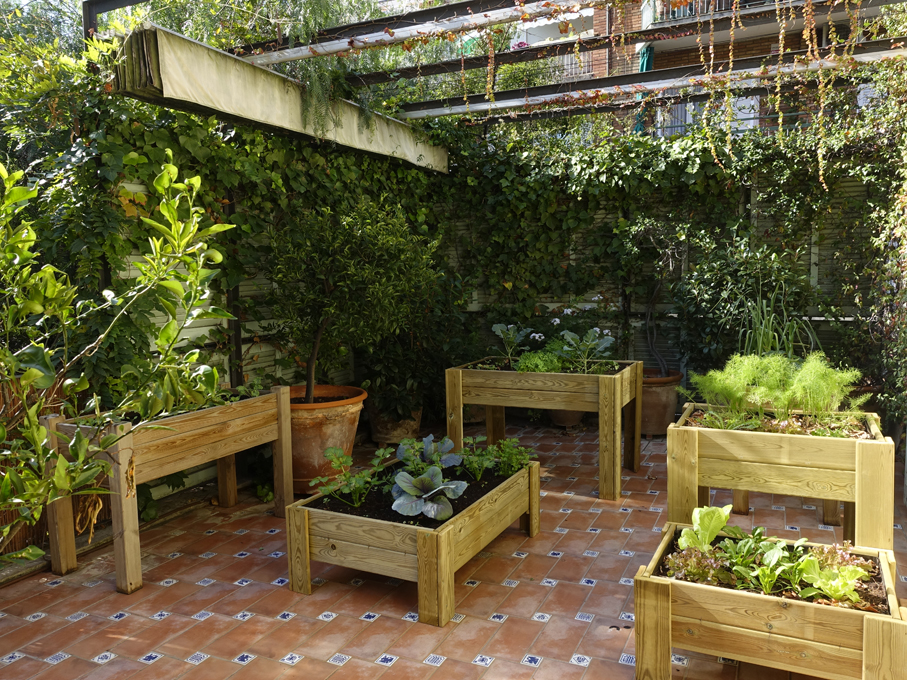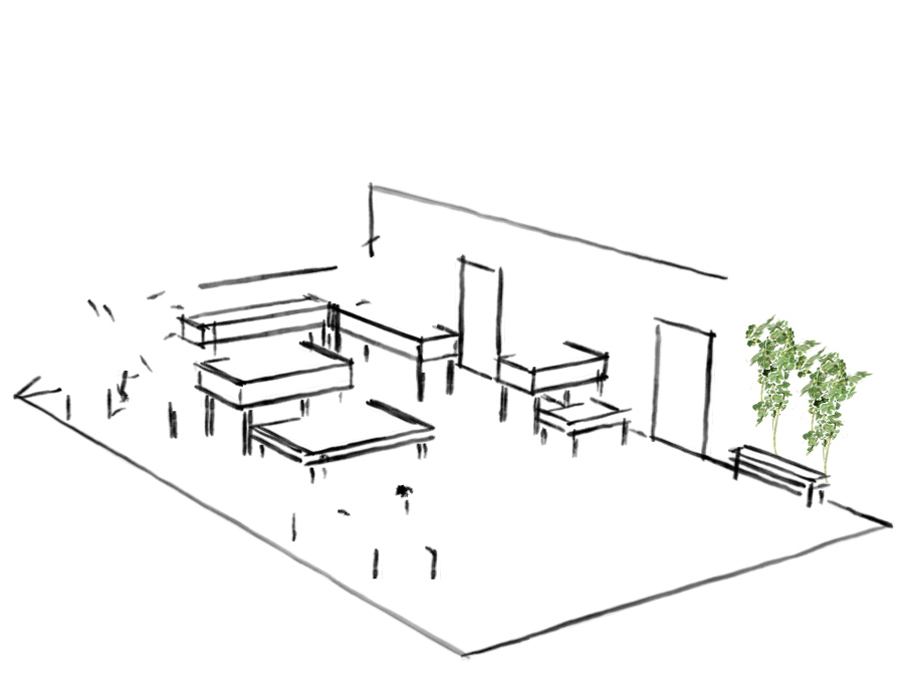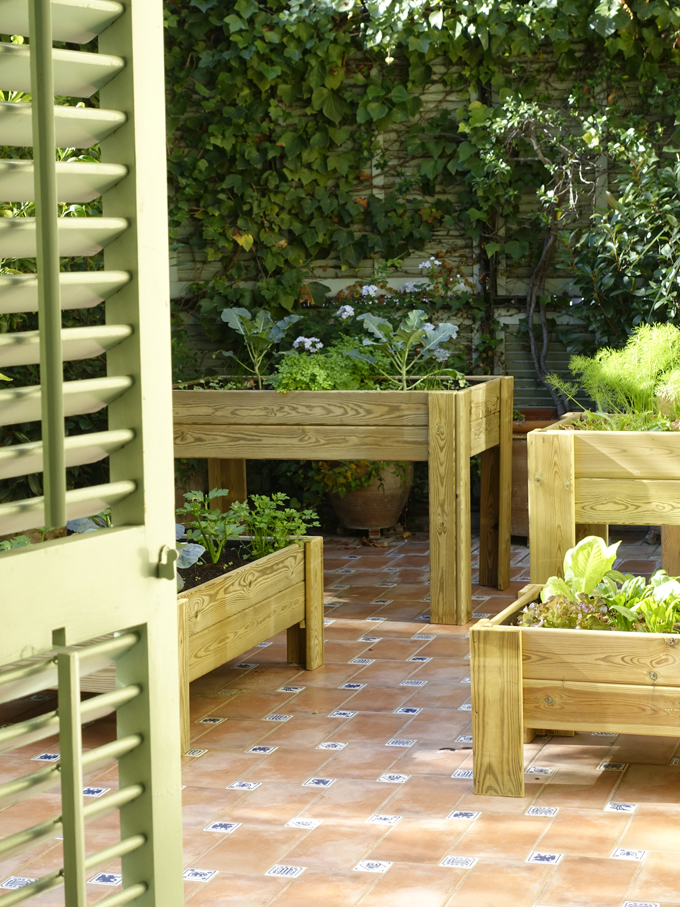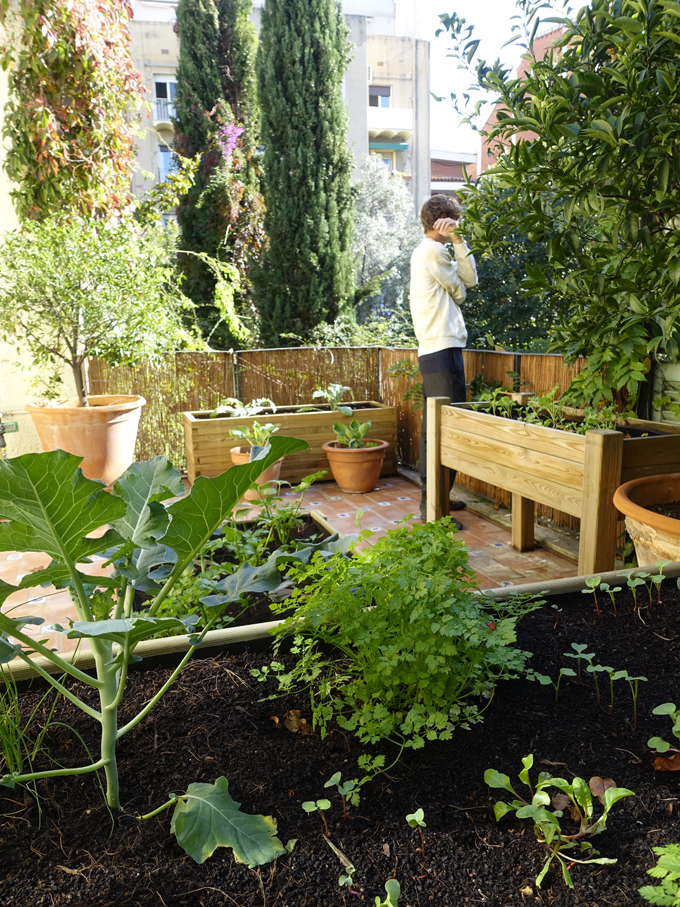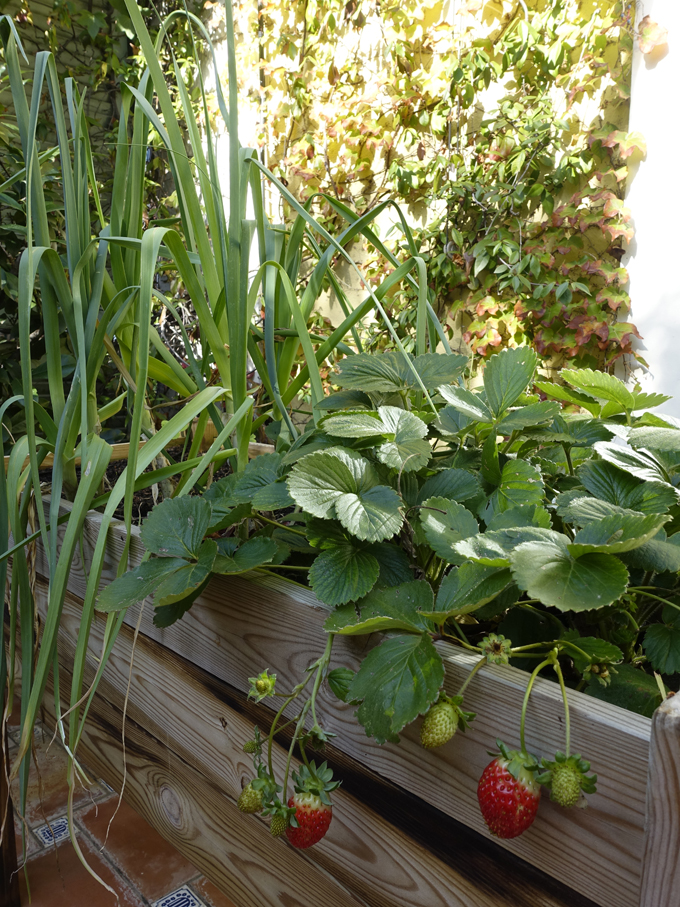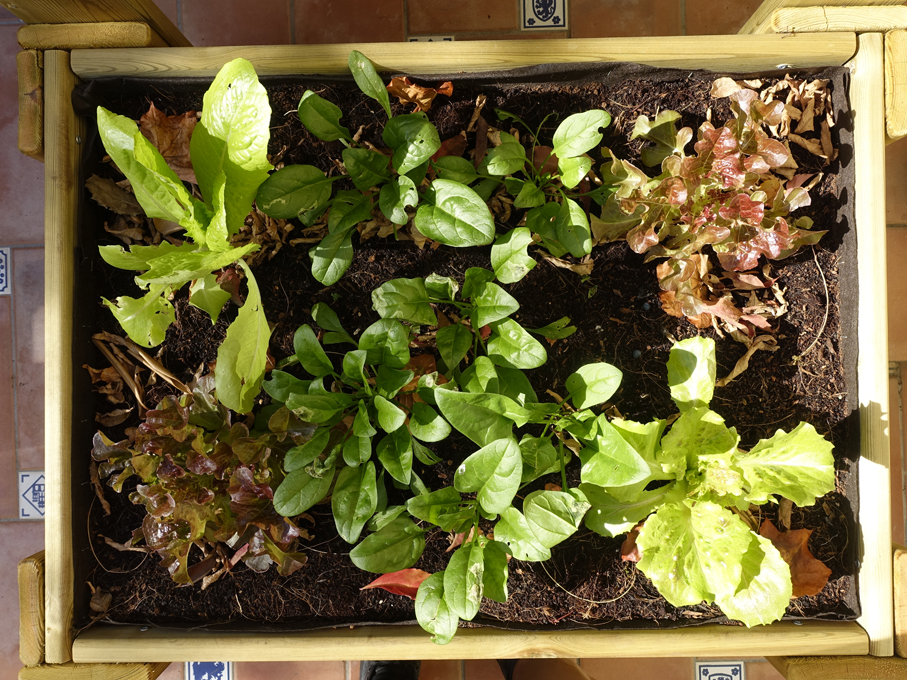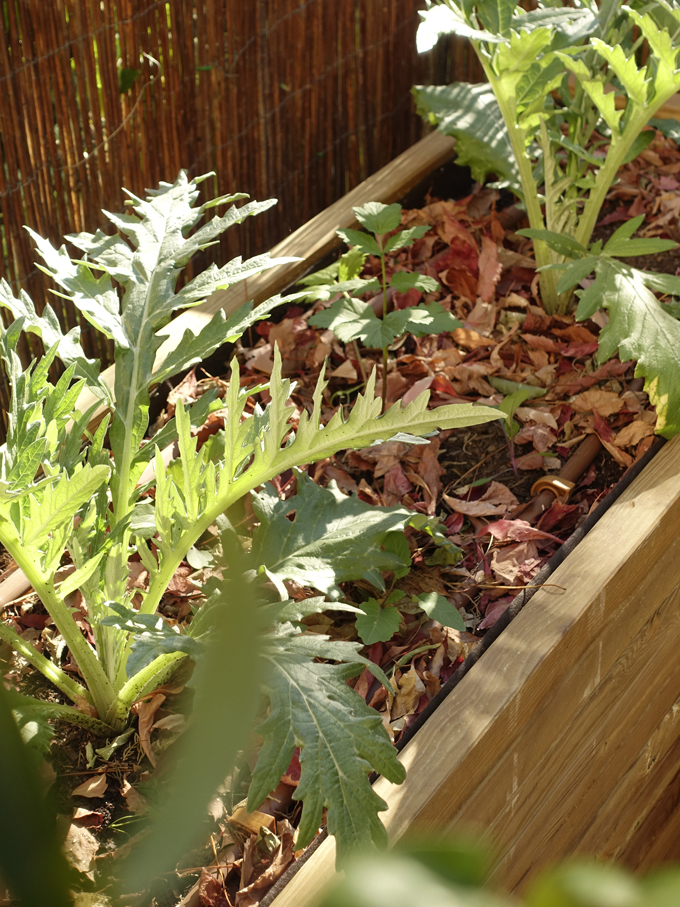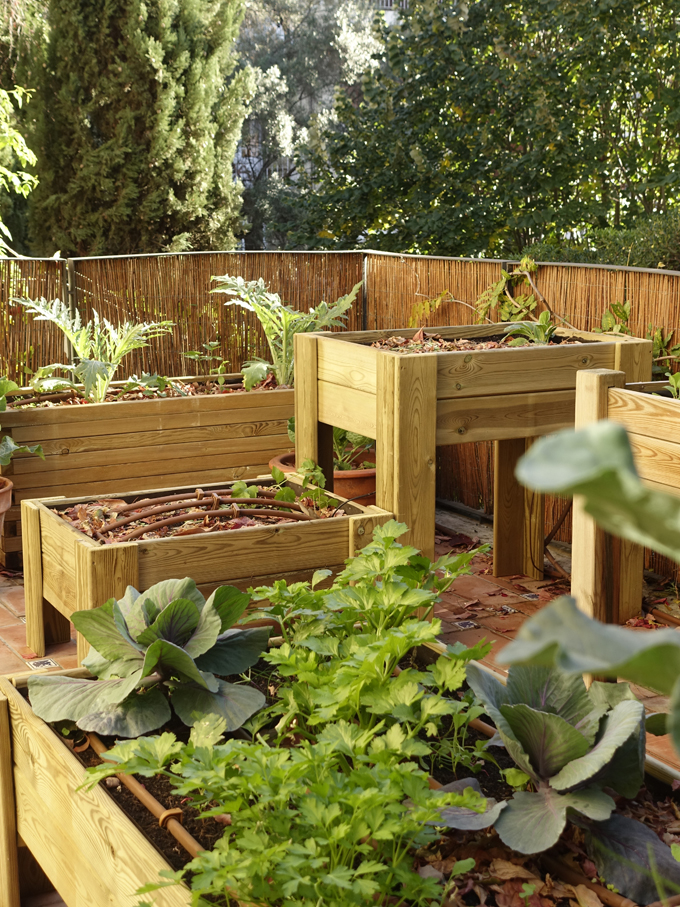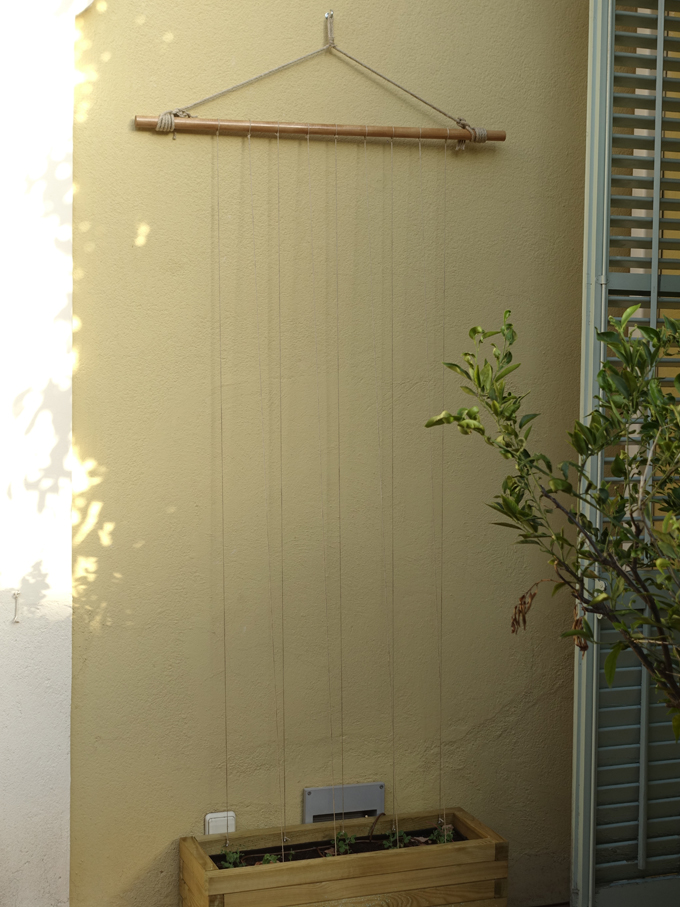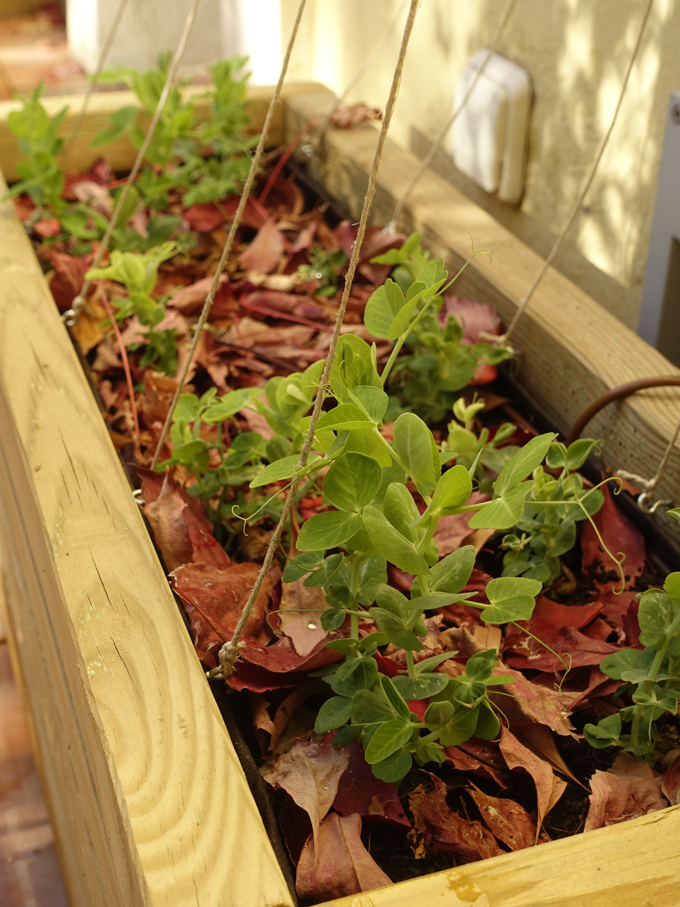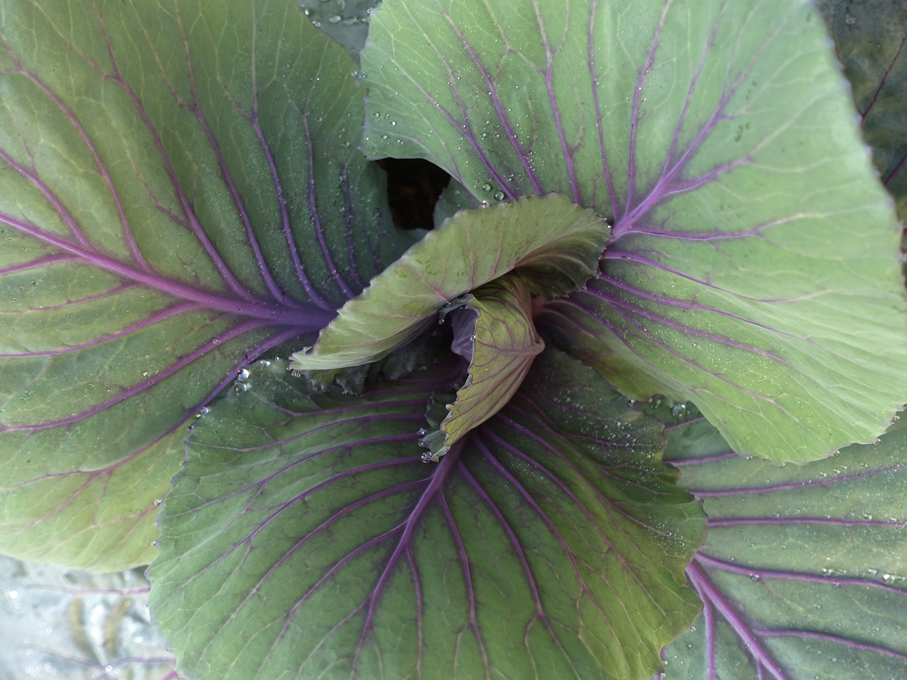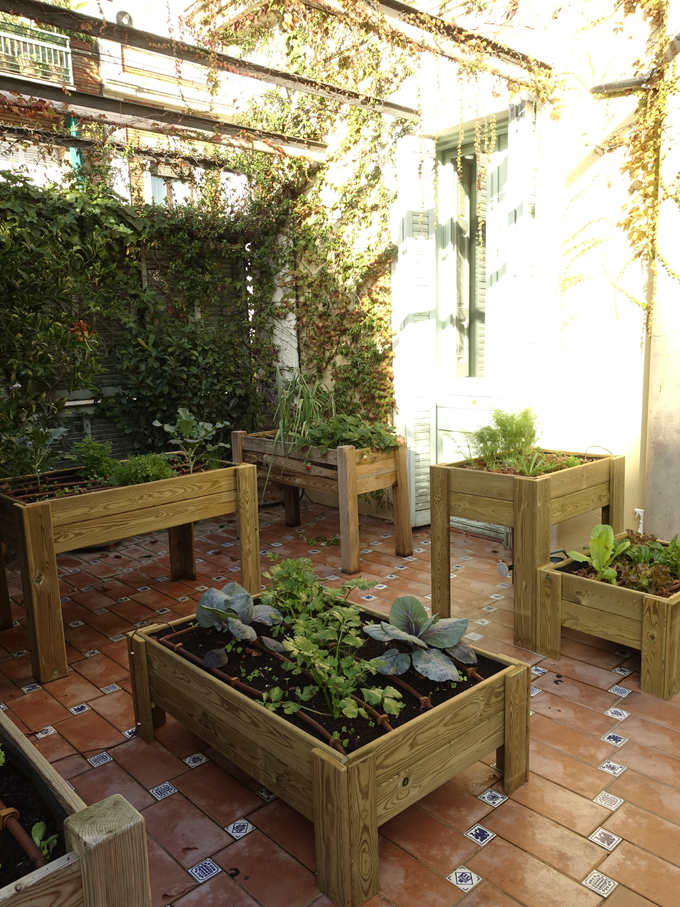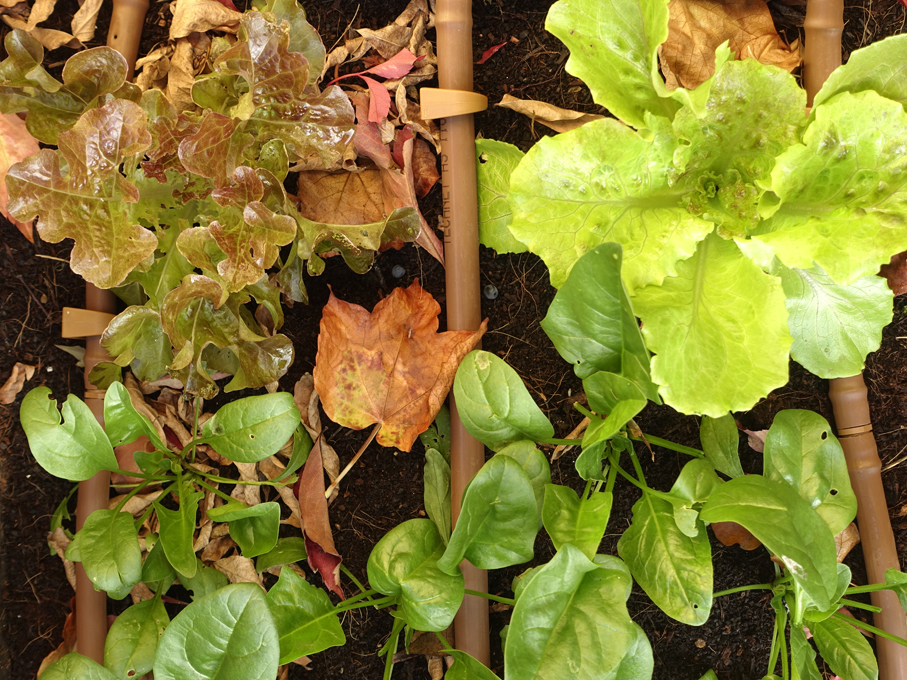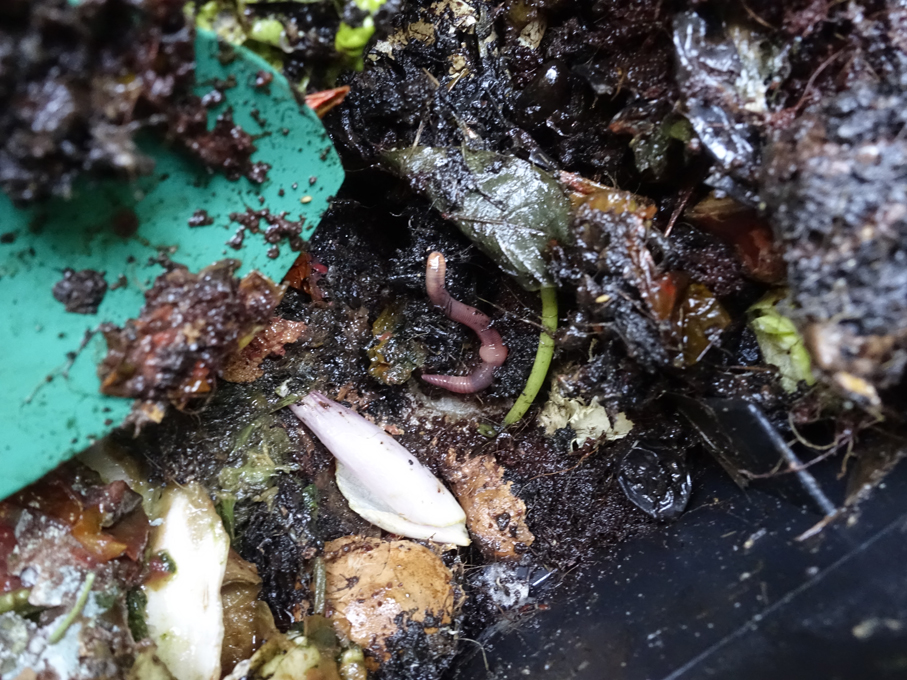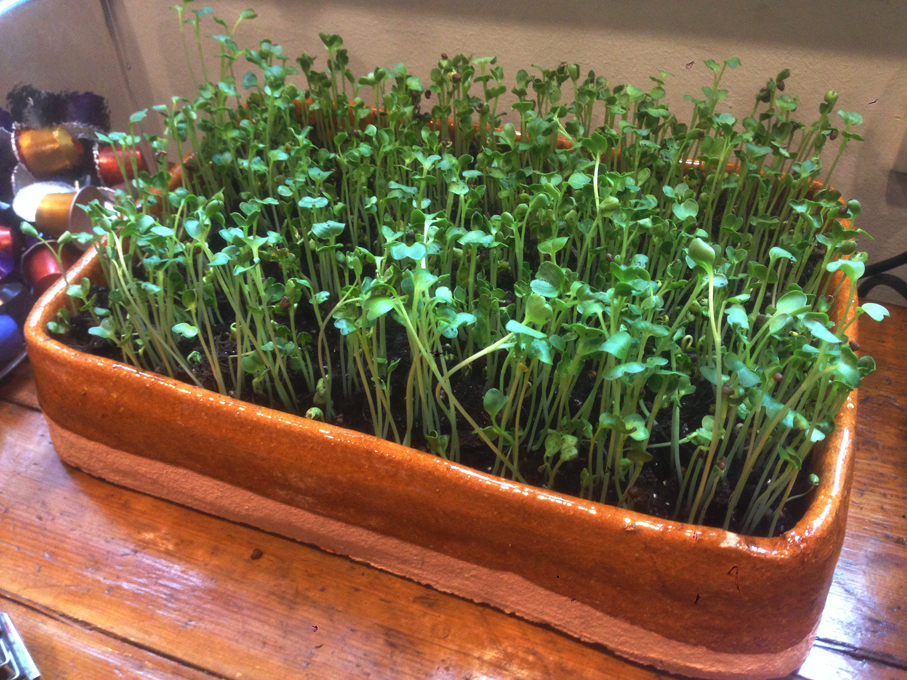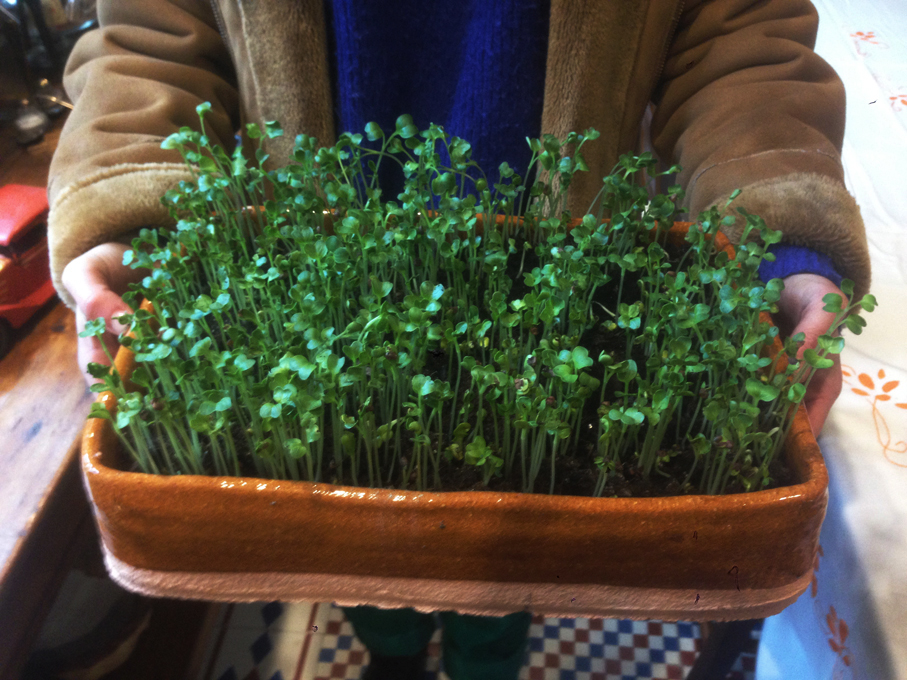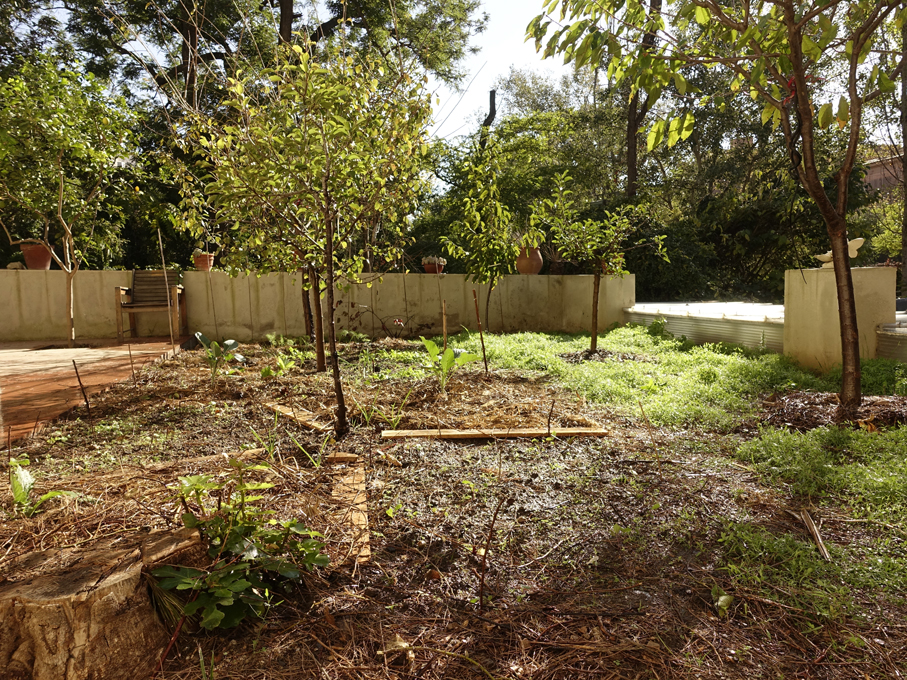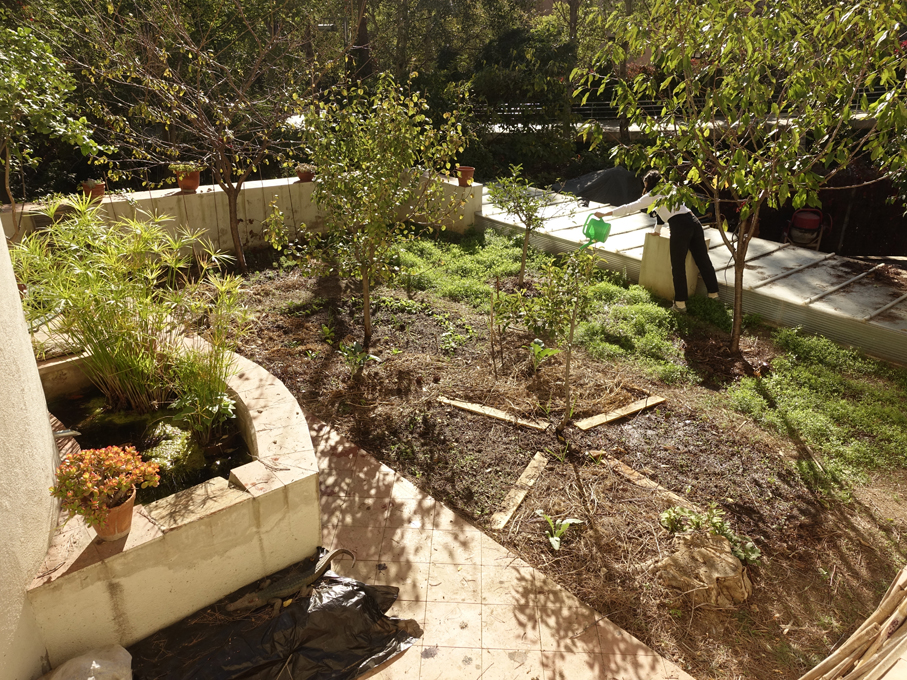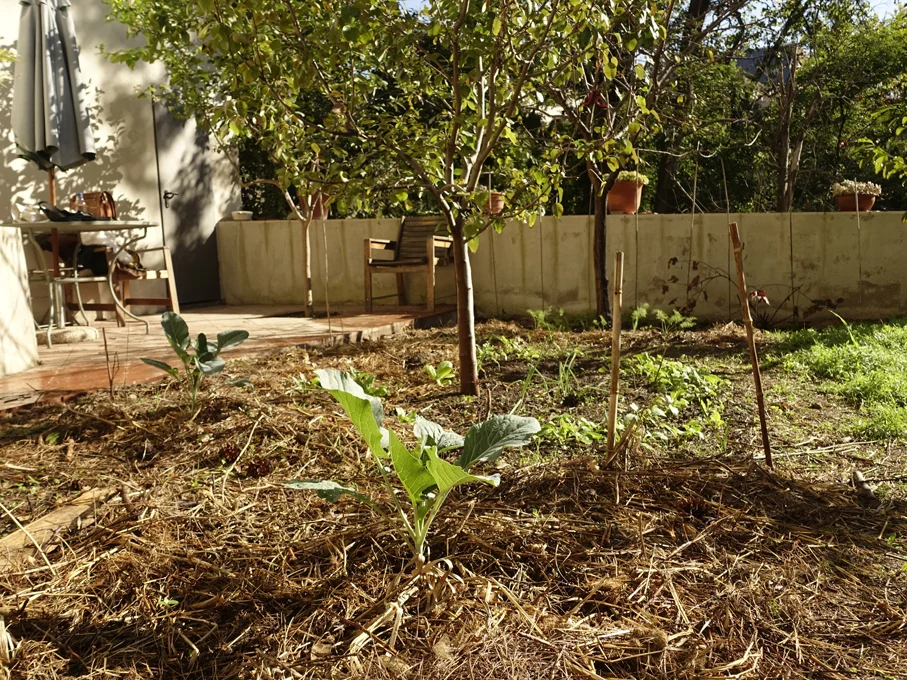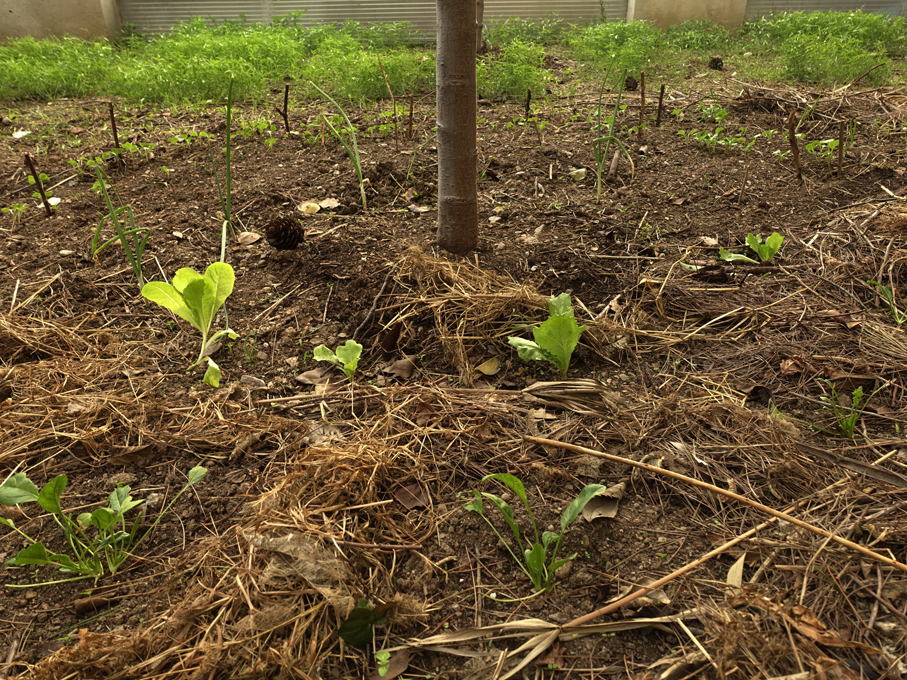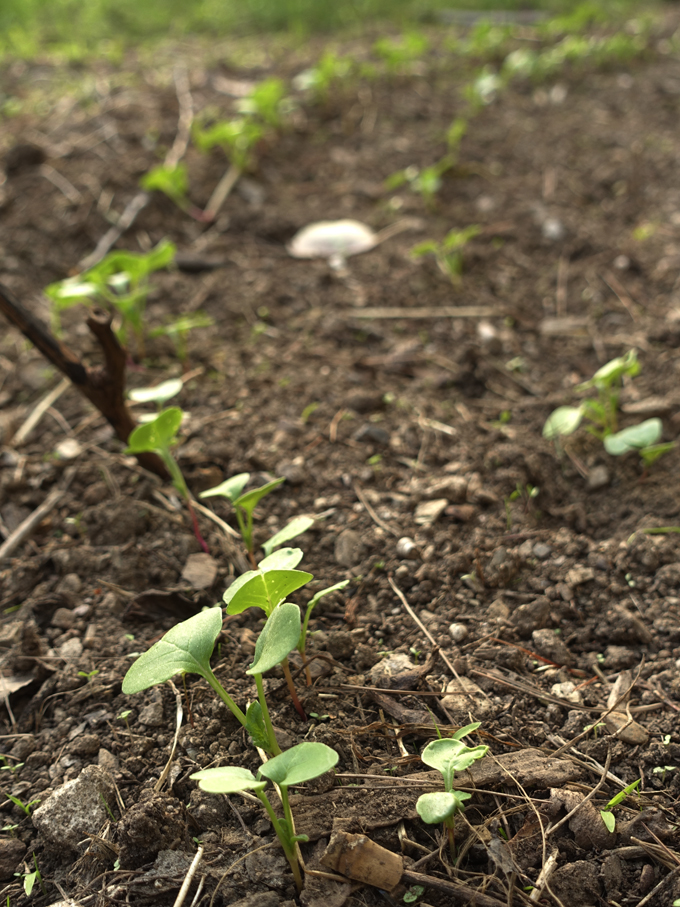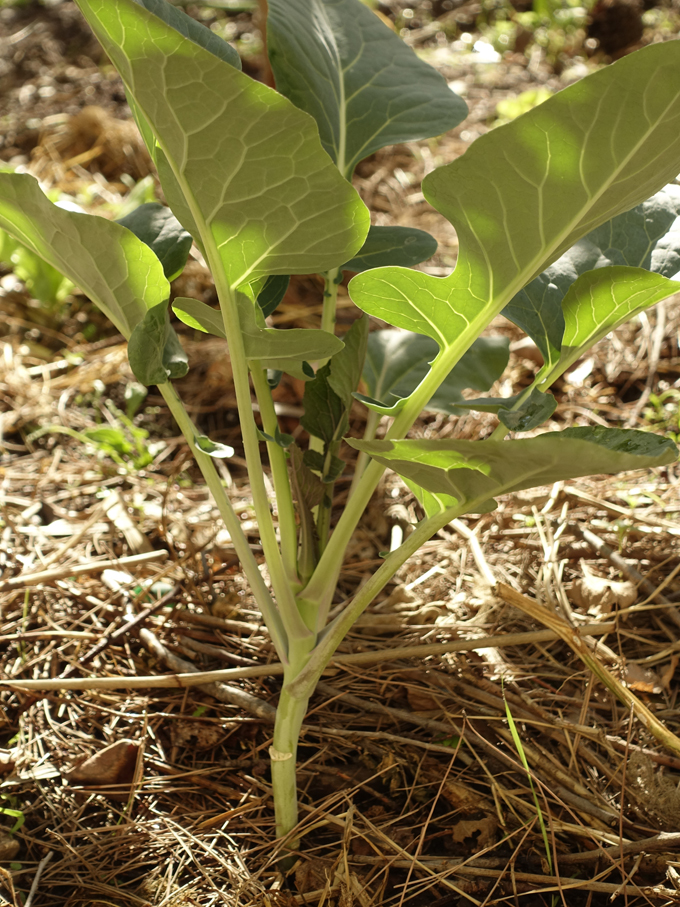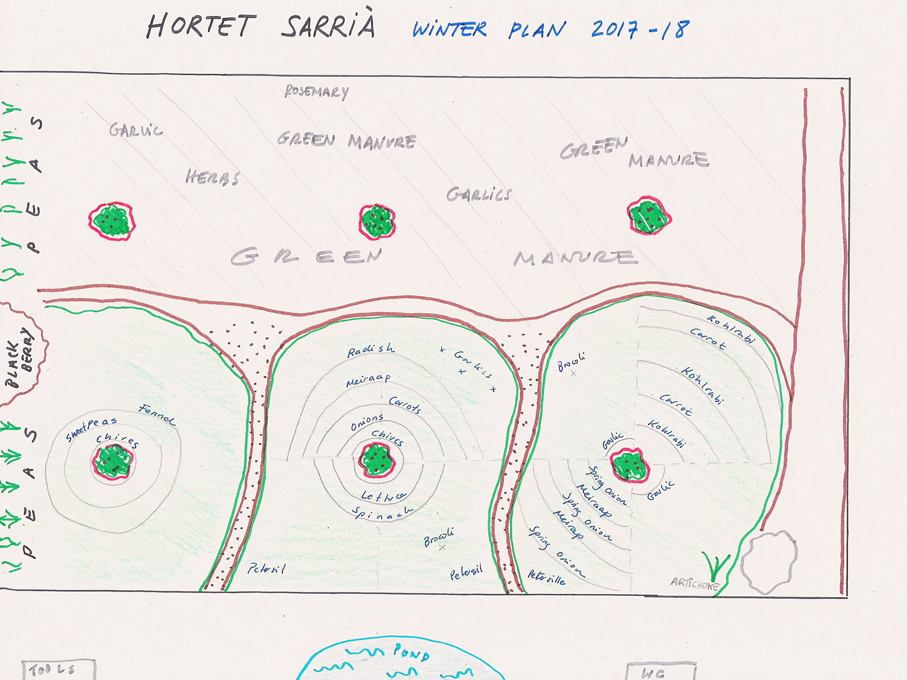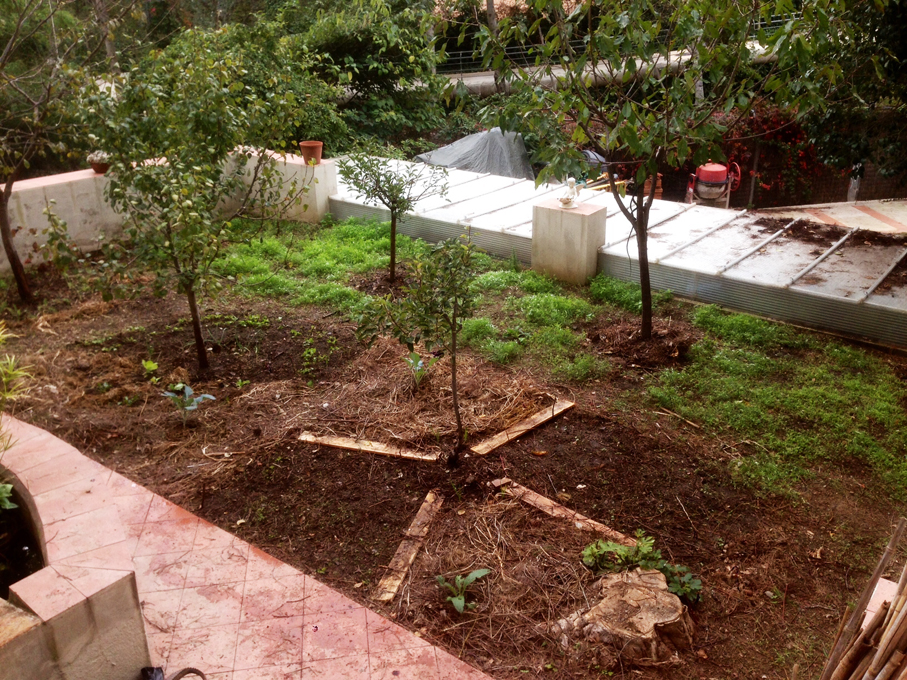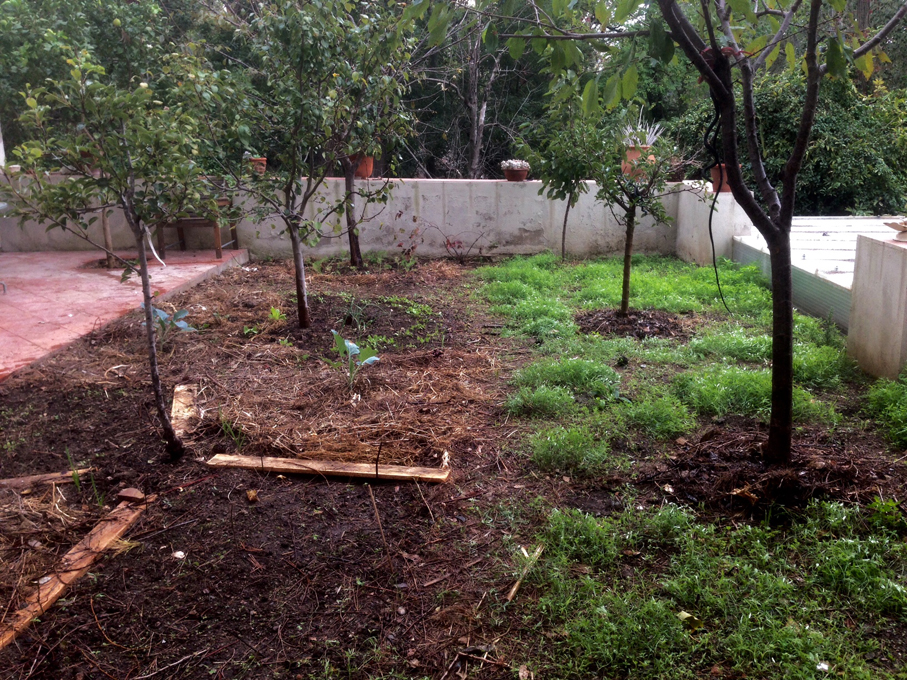Garden portfolio
“Inside the Flower” IGA Pavilion, Berlin. 2017
Botany, plant history and mythology meet architecture at the International Garden Exposition.
Both Cityplot and LAVA Architects joined forces with the Australian botanical artist Janet Laurence, creating a “Wunderkammer” pavilion for the ‘Internationale Garten Ausstellung’ (IGA), which took place in Berlin in 2017. The pavilion gradually changed shape as the year progressed, being taken over by vines, flowers and various shades of green. The interior displayed a lab-like setting, in which plants at home in the Berlin climate were displayed as an installation. The fine line between plant toxicity and medicinal plant qualities was central to the “Inside the Flower” theme.
Botanik, Geschichte und Mythologie der Pflanzen trifft auf Architektur in der internationalen Garten-Ausstellung.
Cityplot und LAVA Architekten arbeiteten zusammen mit dem australischen Botanikkünstler Janet Laurence an der Kreation eines "Wunderkammer"-Pavillons für die International Garten-Ausstellung (IGA), die 2017 in Berlin stattfand. Der Pavillon veränderte langsam seine Form im Laufe des Jahres, er wurde von Reben, Blumen und verschiedenen Grüntönen überwuchert. Das Innere sah aus wie ein Labor, in dem im Berliner Klima heimische Pflanzen in einer Ausstellung präsentiert wurden. Die feine Grenze zwischen giftigen Pflanzen und Heilpflanzen war der zentrale Punkt zum Thema "Im Innern der Blüte".
Agora, Berlin. 2015-2016
Initial Cityplot Berlin Workshop location
The Agora garden started with our gardening team building up the soil structure and experimenting with this cafe garden parallel to the launch of the workshop programme in 2015. Aside from workshop participants getting dirty, a tirelessly enthusiastic team met once a week to exchange and put permaculture knowledges into practice. Our gardening sessions blended into the Wednesday Agora programme (lunch, farmers market, food assembly, and pop-up dinner and food-related lecture series).
Ursprüngliche Standort der Cityplot Workshops.
Der Agora Garten begann mit unserem Gartenteam die Bodenbeschaffung zu verbessern und mit dem Garten des Cafes zu experimentieren, gleichzeitig mit der Einführung des Workshop Programms 2015. Die Workshop-Teilnehmer bekamen nicht nur schmutzige Hände, sondern ein unermüdlich begeistertes Team traf sich einmal wöchentlich, um Permakultur-Kenntnisse auszutauschen und praktisch umzusetzen. Unsere Gärtnertreffen passten gut zum Mittwoch-Agora-Programm (Mittagessen, Bauernmarkt, Lebensmittel-Zusammenstellung, Pop-up-Abendessen und Vortragsserien über Lebensmittel.
Stadsboerderij Osdorp, Amsterdam. 2019- 2020
A community garden at the Stadsboerderij Osdorp. We work twice a week with volunteers from the new west neighbourhood to grow a variety of vegetables to be used in the community kitchen, to sell at a market stall and for kids cooking workshops. The location hosts other integrated activities, such as raising animals, building adobe structures and catered events.
To become a volunteer at this garden please email suzanne@cityplot.org
Tugelahuis Kindertuin, Amsterdam. 2016- 2018
Co-coordination of Children's programme
The Tugelahuis Kindertuin is a special spiral garden for children from the Transvaal neighborhood in the east of Amsterdam. Over the past years we have joined garden founder and coordinator Eva DeCarlo in a successful series of workshops, both during and after school. From seed to harvest, the children tend a variety of organic vegetables, herbs, and edible flowers from which we make beautiful and healthy snacks together.
Curious Finch, Amsterdam. 2012-2016
Cityplot educational garden
The Curious Finch is an educational garden focused on learning and teaching about growing organic edibles – vegetables, herbs, flowers, mushrooms and fruit – in small spaces. The garden was set up in 2012 in order to address the issue that urban dwellers increasingly want to grow their own food but lack the necessary tools and training. Together with a group of volunteers, we created a garden focused on the most relevant sustainable urban farming crops and techniques. The educational garden was divided into small plots and areas that each demonstrate different aspects and techniques of urban growing: permaculture, biodynamic growing, seed saving, composting, herbs, wild plants, mushrooms, edible flowers, companion planting, berries, and heritage crops.
Regular hands-on workshops were organised in the Curious Finch on themes including composting, beekeeping and permaculture techniques. We also held regular children’s workshops with activities such as building fairy houses, treasure hunts through the garden, identifying insects and pollinators, collecting and planting seeds, and foraging and making snacks with wild plants.
A group of volunteers took up coordination of the project from 2017; we remain in close contact.
Open Coop Kantine, Amsterdam. 2013-2016
Growing and harvesting salads and herbs for the kitchen
Starting in 2013, Cityplot took care of the Kantine Garden at the Open Coop in the Tolhuistuin, a short ferry ride from behind central station to Amsterdam North. We grew herbs, salads, vegetables and edible flowers for the kitchen, which was renowned for serving delicious and healthy salads every weekday at lunchtime. We also set up a worm composting system at the Open Coop in order to recycle the kitchen’s vegetable waste into compost for the containers. In total we maintained around 30 food boxes. Unfortunately, the Open Coop Kantine closed in 2017.
The Green Living Lab, Amsterdam. 2015-2016
Teachers in Green Student Bootcamp Challenge
The Green Living Lab (Het Groene Leven Lab) is a unique natural lab in an urban environment in the South of Amsterdam where scientists, technical experts, artists and businesses meet to stimulate healthier urban living. Starting in 2015, Cityplot has provided edible gardening workshops, and helped to plan and coordinate work days in the garden. In 2016, Cityplot taught the gardening classes during the Green Student Garden Bootcamp Challenge: find out more here!
(http://greenlivinglab.org/our-programmes/green-student-bootcamp-challenge-2016/)
I Can Change the World With My Two Hands, Amsterdam. 2015-2016
Coordination of garden workdays
This organic inner garden is a paradise in the heart of Amsterdam West. The production garden grows food for the local food cooperative and neighborhood restaurants. In 2015 and 2016, Cityplot coordinated the regular work days there for volunteers in the garden.
Kruidenpluktuin, Amsterdam. 2014-2016
Children's workshops
Starting in 2014, Cityplot gave workshops for children at the Herb Garden at the Weteringplantsoen in central Amsterdam. The children had their own little garden, which we planted up with bee and butterfly-friendly plants. During the workshops we learned about the edible and medicinal properties of several herbs.
Activities at the workshops included making herbal teas, propagating herbs from cuttings, learning about pollinators and other useful garden insects, building an insect hotel, making catnip mice, rolling seed balls with bee-friendly flower seeds, tasting local honey, playing ‘insect bingo’, hunting for medicinal herbs, saving seeds from the garden, making pesto, and filling ‘dream pillows’ with herbs.
Soeptuin Bredius, Amsterdam. 2016
Get Down Get Dirty Workshop series for gardeners
This garden in the Spaarndammerbuurt of Amsterdam grows fresh vegetables and herbs for the local food bank. In addition to delivering fresh crops, the ‘soeptuin’ (soup garden) serves as a green meeting place for the neighbourhood. Soeptuin Bredius is organised entirely by volunteers.
In 2016, Cityplot gave a series of workshops to the gardeners on soil health and crop planning for a balanced garden.
Get in touch if you’d like to join in the garden team of this amazing project: soeptuinen@gmail.com.
Greenpeace International, Amsterdam. 2013-2016
Rooftop gardening workshops
Starting in 2013, Cityplot gave regular workshops for the staff at Greenpeace International in Amsterdam, helping them get their edible roof garden started. Our role included setting up a crop plan for the entire year together, and starting up a worm composting system. The staff enjoyed harvesting herbs and salads for their lunch!
Watch a video of one of our Greenpeace workshops.
Vrouw & Vaart, Amsterdam. 2014
Get Down Get Dirty Workshop series for gardeners
We were pleased to be invited to give a series of workshops in 2014 at the Vrouw & Vaart women’s empowerment center in Nieuw West. Here women from many different cultures and backgrounds grow and harvest food together, and prepare delicious meals in their communal kitchen. Cityplot set up a worm composting system with the women, and gave a series of practical and theoretical workshops including crop planning, plant identification, creating balance in the garden and seed saving.
Van Beuningenplein Cafe Pavilijoen, Amsterdam. 2014-2015
Growing and harvesting for the Cafe kitchen
Cityplot worked with the chef of this cosy Mediterranean cafe to create a rooftop garden full of herbs, flowers and ingredients for Shashouka, the kitchen’s specialty. We harvested regularly for the kitchen, and also taught our Get Down, Get Dirty gardening series on the rooftop for city dwellers keen on setting up their own gardens in the sky.
Curacaostraat, Amsterdam. From 2007
Get Down Get Dirty Workshop series for gardeners
As one of the very first Cityplot workshop locations around the corner in Corantijnstraat (2008), this project went through all the city regulation red-tape and social growing pains a new urban gardening project could entail. We are very proud of this group, that brought the neighbourhood outside and grew a beautifully productive sidewalk garden together, which now acts as a vibrant neighbourhood social hub. The participants are largely independent now, as it should be…
A great location to drop by if you’re near Surinameplein.
MAS YEBRA HOUSE, BARCELONA. 2017- present
From growing food to cycling nutrients
Our client wanted to have a terrace where she could grow vegetables and herbs for a family of two. We set up growing tables at the house's southwest-facing terrace that provide edible plants all year around.
We also installed a microgreens system in the kitchen and a worm compost system to recycle food scraps and obtain compost for the garden.
L'HORTET DE SARRIÀ, BARCELONA. 2017 - present
Bringing a garden back to life
When we took over this plot, the space lacked a design and its six fruit trees had been put in a secondary role and become sick.
Our idea for the new design has been highly influenced by our desire to restore the importance of the fruit trees.
We will first build good healthy soil, as we begin planning a perennial edible and medicinal garden around the trees in order to help increase biodiversity, bring them back to health, and provide food and medicinal plants for the client.
